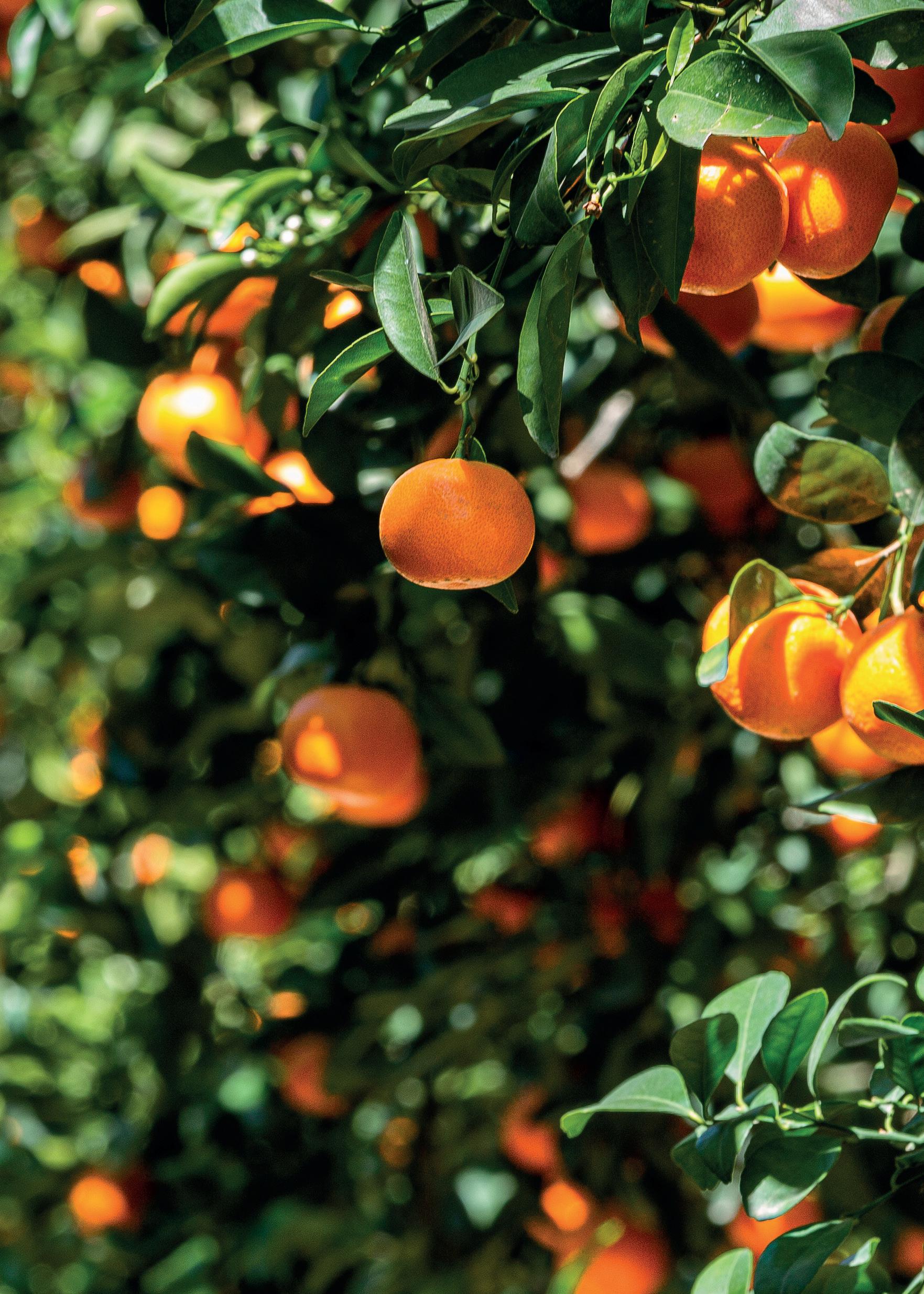SUSTAINABILITY
PUBLISHED BY


PUBLISHED BY


Efforts to protect the world’s most preciou natural resource have become a top priority in the world of fresh produce
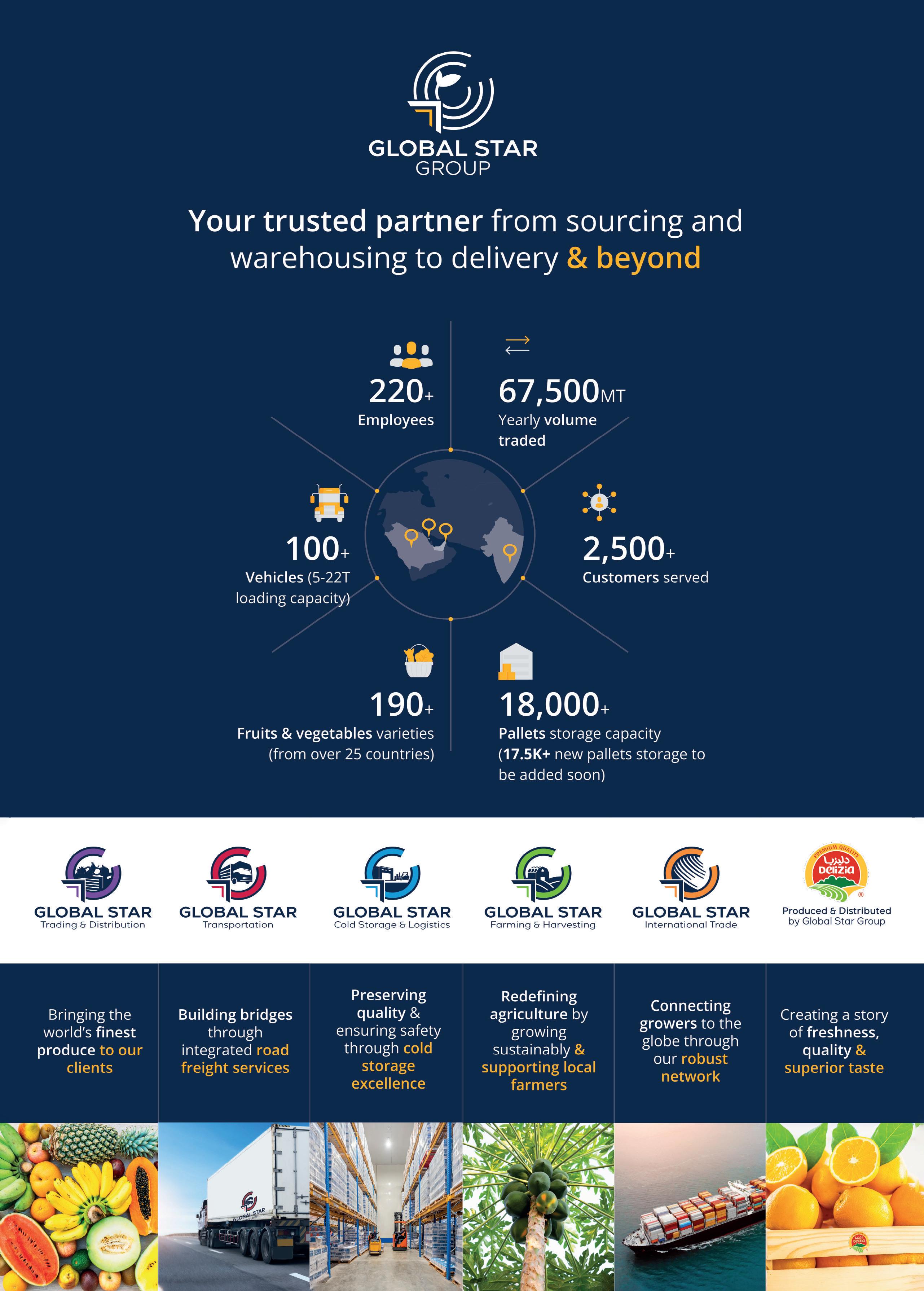

Every year or so, you can be sure to stumble upon some epiphanic comment piece proclaiming that water – that wet stuff the writer has wasted so casually until the previous week – is in fact “liquid gold”. Because water, like gold, is required by every single human being for their very survival… Or it’s rare and shiny, or something? Of course, it’s hardly news that fresh water is a valuable, finite resource. But the early effects of climate change appear certain to make water a central talking point in fresh produce for the foreseeable future. In Spain’s Andalusia region, a major production area for exports across Europe, the drought has lasted for six years and counting. Meanwhile, near Cordoba last year, growers reportedly received more rainfall on one spring day than during the whole of 2023. The trend is indeed worrying. In southern Europe, water costs have rocketed, while in the north many farmers struggle to even plant in the soaked ground. The solutions are manifold. Water storage must improve in many countries. Access to more reclaimed water and desalination projects are certain to play a greater role. Similarly, water-efficient irrigation technologies can help minimise wastage and optimise delivery. Soil conservation practices and rigorous water use monitoring are equally important. And all the while, AI technology promises to help growers understand exactly what plants need – whether that’s water, gold or any other vital resource.
 Tom Joyce Editor
Tom Joyce Editor

Group chief sustainability officer Johnathan Sutton explains how the company is making its avocados greener.
by Maura MaxwellAvocados get unfairly maligned in the media for their environmental footprint. What can be done to counter the bad press?
Johnathan Sutton: I am glad you said unfairly maligned, we completely agree with you. The reality is that fruits and vegetables have a much lower environmental impact than many other foods. To counter the negative press, we support industry bodies such as the World Avocado Organisation by giving them the tools to defend the sector, such as accurate data.
Within Westfalia we measure our carbon footprint at every level and account for every drop of water we use and where it comes from. Our aim is to use fewer resources to produce avocados in the future by developing the plant genetics to achieve this and
through the better application of technology and AI modelling for water use.
You talk about the importance of plant genetics –can you give us some examples of how this is helping to improve the quality and sustainability of your avocados?
JS: At Westfalia we have created an extensive network of partnerships with leading private and public entities to advance the avocado industry globally. The aim is to consider the problems facing growers today and what might be a challenge in the future. We have traditionally looked at pathogen defence, but more recently we’ve focused on climatic conditions like salinity and water stress.
For example, some production areas in Colombia receive a lot of rain and this creates problems with disease tolerance. By contrast, in Peru there is almost zero rainfall and conditions can be very hot and dry, so soil conditions are a bigger challenge than disease. Our job is to determine which rootstocks are better suited for hot, dry, wet, cold, saline conditions, as well as other variables.
More and more production regions are reporting
LEFT—Westfalia’s multi-pronged approach to sustainability is all about producing avocados with fewer resources
OPPOSITE—Avocado by-products are a key waste reduction strategy
extreme weather events and having the plant material on our own farms across the world allows us to capture its performance under many different conditions outside of normal trial requirements. This helps growers to produce more consistent fruit that can withstand the impact of climate change.
Water scarcity is becoming an increasingly acute challenge for the agricultural industry. How is this shaping the avocado production map?
JS: We are seeing new production areas emerge, both within existing producing countries and in new countries, as global demand for avocados is still high. The development of new plant genetics, increased use of clonal rootstocks and wider adoption of water saving technology all go towards supporting production that has a lower environmental impact and uses water wisely.
To what extent do you think sustainable farming technologies can solve the water challenge?
JS: Sustainable farming technologies offer promising solutions, but they alone cannot fully address the water challenge. Good internal water conservation policies and management practices are essential complements to technology.
On-farm, growers are investing in water-efficient irrigation technologies such as drip and micro-sprinklers to minimise wastage and optimise water delivery to the root zone. They are also reassessing irrigation
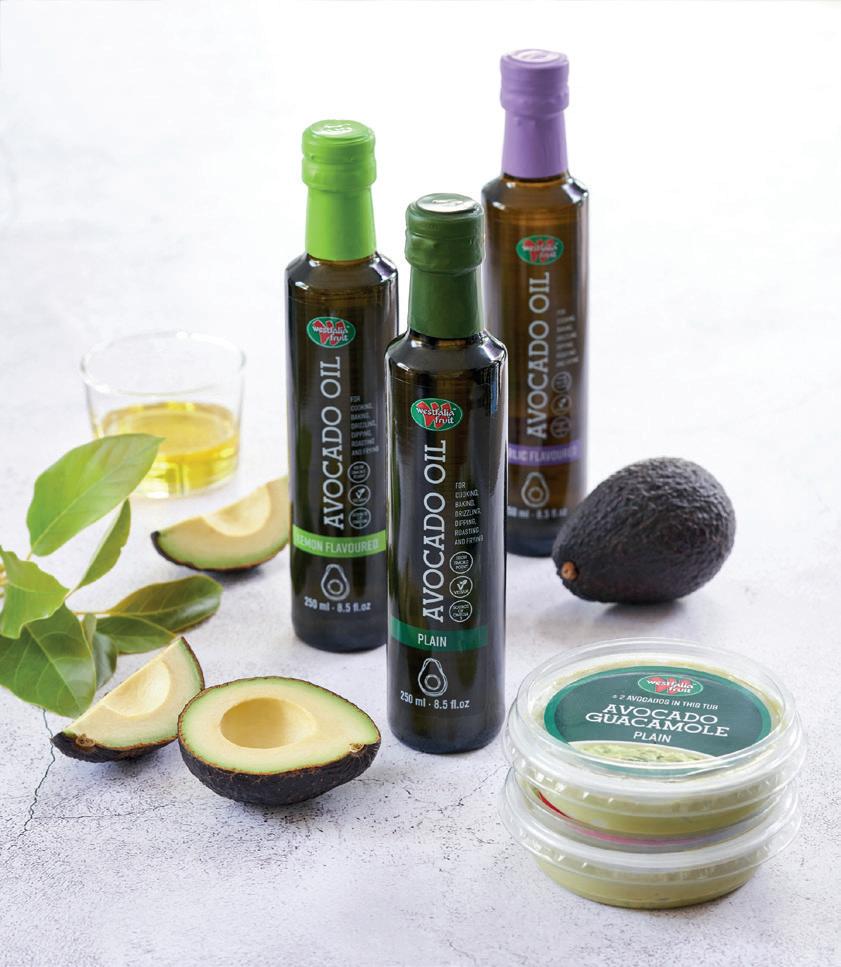
layouts for more precise blocklevel irrigation, adopting soil conservation practices like mulching, and implementing rigorous water use monitoring.
Colombia has become a key part of Westfalia’s avocado supply calendar. How do you ensure that your production footprint doesn’t disrupt the environment in such a biodiverse country?
JS: Colombia is a very important sourcing country, as it has a climate that suits long seasons and good tree health. Within Westfalia we
have pursued a strong certification approach through both Rainforest Alliance and Leaf – our farms were among the first to achieve Leaf accreditation in avocados in South America.
We also recognise the value of nature-based solutions to reduce our carbon footprint. We plan to plant up to 20,000 native trees per year to reforest areas that are not suitable for fruit trees and had been cleared by previous land users. We have converted one of our plant nurseries to native tree production.
Much is written about the environmental impact of avocado production, but less so about its social impact and the benefits it brings to rural communities. Yet this has been an integral part of Westfalia’s story since its founding, hasn’t it?
JS: This is part of our DNA. The communities in which we work are vital to us and we work hand in hand with them, through job creation, providing clinics for everyday medical needs, transportation, water and power and nursery places for 1-5 year olds. On our South Africa farms, we gave the community access to plant ground nuts, so they could grow a crop and sell the surplus to other communities.
We employ around 8,000 people globally and many are from the communities that surround the farms and packing operations. We have many charities we support throughout the globe and all of these are

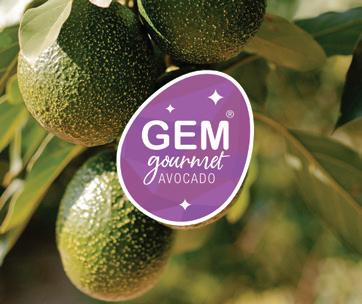
dedicated to the local communities and benefiting local needs.
Finding new uses for avocado by-products is one of the best ways of eliminating waste by using the whole harvest. Tell us about some of the key projects you are working on in this area.
JS: Waste is a key pillar of our sustainability strategy. We need to reduce waste at all stages of the supply chain. One way we’re doing this is by developing nondestructive testing, so we don’t cut any avocados to sample. In the meantime, our UK cut sample avocados are now sent to our guacamole factory for processing. Fruit that is too small or has skin defects is also processed into guacamole or avocado oil.
And we have developed beauty products to use the stones as an exfoliator to replace microplastics, which is an amazing innovation. Our ambition is to increase the saleable percentage of fruit from farms, by using our global agronomy expertise and R&D teams to develop crop programmes that support a higher grade 1 pack-out and generate increased income for growers and greater efficiency throughout our operations.




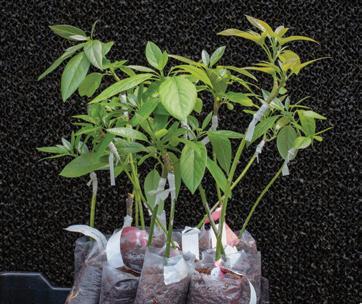
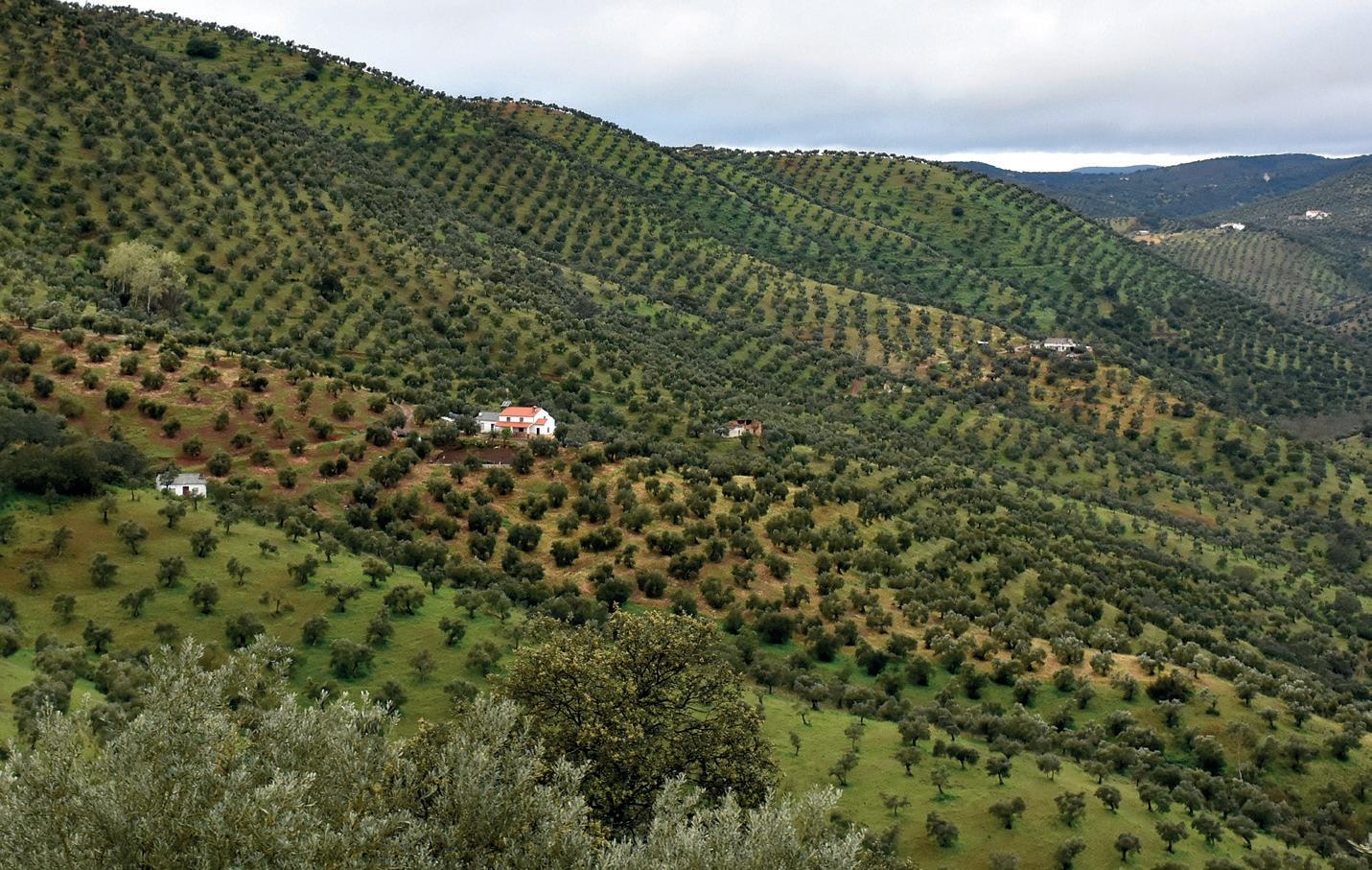
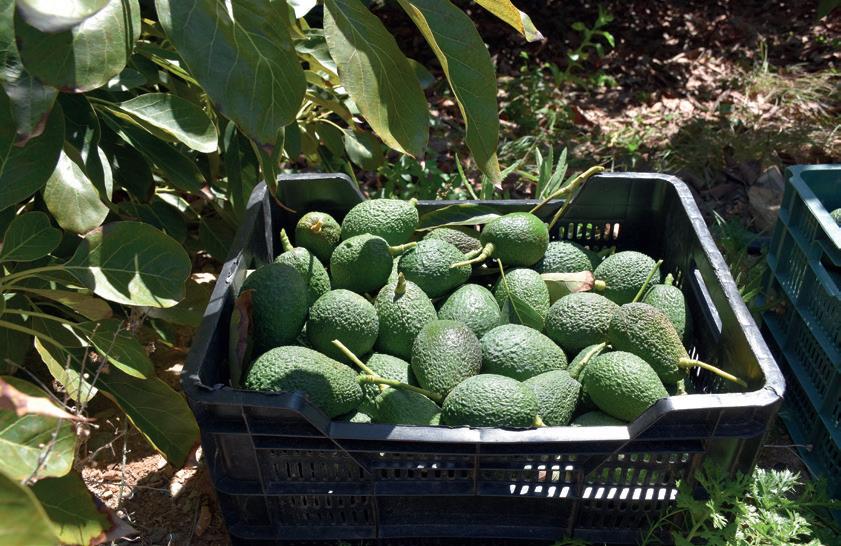
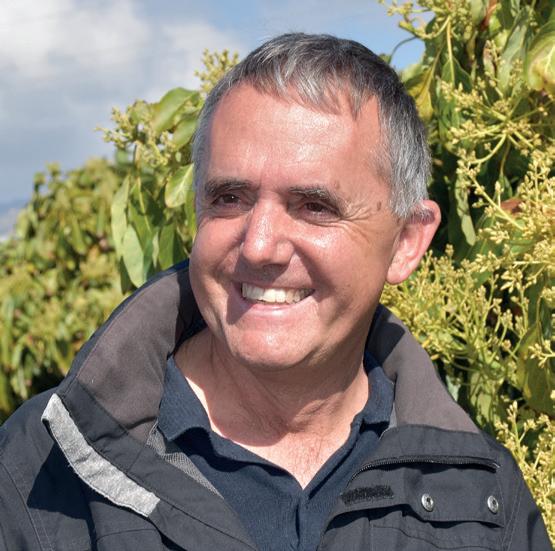
As an extended period of drought hampers production in Spain, avocado growers are concerned for the future.
by Chris McCulloughEven though there were a few periods of rain during the spring of 2024, fruit growers in Spain remain very concerned about the future of their production.
During the previous 12 months, rainfall in some areas was virtually non-existent. This has played havoc, reducing crop yields and increasing prices.
Olive farmers, in particular, were hit hard by the drought as they were unable to irrigate the mountainous terrain famed for growing the crop in southern regions of Spain.
Near Cordoba, there was more rainfall in one day during the spring than in the entire 12 months of 2023, according to some farmers.
The Andalucía region, meanwhile, which grows a wide variety of fruits for export markets, has battled drought for six years. Reservoirs there were recorded with only 20 per cent capacity at the beginning of 2024.
The effects of climate change are very much a problem for Spain, because it jeopardises its role as a key food producer for global markets. Urgent action is needed. The south-eastern province of Alicante faced its driest autumn for 50 years in 2023. Co-operatives were unable to supply around 25 per cent of produce for supermarket orders.
Some major fruit companies are now actively looking at purchasing new farms in other areas of Spain where water is not a problem, or indeed outside
LEFT—Fruit trees in Algorrobo, Malaga
BELOW LEFT—The region has around 10,000ha of avocado production
BELOW RIGHT—Inaki Hormaza is an expert in subtropical fruit crops
Spain, in Portugal or Dominican Republic.
Inaki Hormaza is professor of subtropical fruit crops at the IHSM La Mayora research centre in Algarrobo, Malaga. He says growers need to think outside the box to solve drought issues.
“In this region there are around 10,000ha of avocado, 5,000ha of mango, and 3,000ha of cherimoya. These fruits need a lot of water depending on their yields. Avocados, for example, need about 700 to 800 litres of water per kilogramme, just like apples.”
Some think global warming could encourage crop production, for example for sub-tropical fruits. But Hormaza says this is not the case.
“It has raised the minimum temperature in the winter time and peak temperatures in the summer and crops do not like that,” he says. “I have worked here for 23 years and have witnessed advances in the avocado flowering season of around three to four weeks. Growers are worried about longer droughts in the future.”
The main goals, he continues, are to increase productivity while reducing the water footprint. That involves improved irrigation systems and access to a wider range of water sources.
“Until now, 100 per cent of water came from rain, storage and wells, but we need to look at accessing more reclaimed water, and from sanitation plants,” he adds.
“At the research station we are carrying out basic research into avocado genes to help the fruit handle droughts. It’s a long-term project, though, as it takes time to cross and select genes.”
Fruit and veg producers ignore the various climate challenges associated with water at their peril, says Richard Bonn, co-founder of Aethr Associates
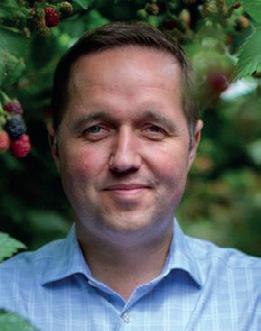
ARICHARD BONN
Aethr Associates Co-founder
mid a deluge of alarming weather news, it’s hard to ignore the extremes: recordbreaking rainfall in northern Europe, and unprecedented drought in the south.
We may be mistaken for thinking an El Niño cycle, which affects crop production globally, is the cause of these extremes. Fingers crossed that explains it in the short term.
But the climate forecast models indicate that its occurrence will become more regular as global temperatures rise.
Moderate global temperature forecasts predict that, at current rates of warming, we should expect around a 1.5°C increase by 2050. That’s on top of a 1°C increase since the 1980s.
Why does this matter? Some might say one degree is nothing. Well, according to thermodynamic science, the Clausius-Clapeyron equation predicts that for every 1°C increase, we will experience a 7 per cent increase in the atmosphere’s water vapour capacity.
Not only does this lead to heavier rainfall, it also disrupts the planet’s weather patterns, creates more energy in the atmosphere, and makes the whole system more volatile.
To compound this, water vapour is also a greenhouse gas. So it creates a positive feedback loop which actually then amplifies global temperatures.
For all farm-based, weather-watching, primary producers, this should be a call to action.
It is now widely recognised that the biggest challenge agribusiness will face in future is to reduce its impact on the planet, while at the same time protecting themselves from the planet’s impact on their business models.
BELOW—Scientists say a one-degree temperature rise means 7 per cent more water vapour

This concept is now known as double materiality. An age of adaptation is now upon us. But how should we respond?
Prioritisation is key. A crucial first step is to recognise the scale of specific risks to your business. And prioritising the subsequent response is critical to building resilience.
Water is vital to all farm systems. So, whether you are grappling with excess water, too little water, or poor-quality water, the negative repercussions in terms of yield and cost are substantial.
In southern Europe, water costs are soaring. In northern Europe, meanwhile, it has become more and more difficult for farmers to get on the land to plant crops.
“Excess water, too little water, poorquality water. The repercussions in terms of yield and cost are substantial”
In the short term, we must deal with what’s in front of us. But hopefully it acts as a wake up call for businesses to start taking their future resilience seriously, and evaluate how climate change will affect their businesses’ sustainability.
To download a copy of The Aethr Sustainability Trends in Food and Agribusiness Report 2024, please visit www.aethr.co.uk.
British apple supplier Adrian Scripps joins trial to evaluate special ‘listening’ technology, which could interpret stress signals in plants and help growers produce more sustainably.
by Mike KnowlesUK company Adrian Scripps believes listening to what fruit trees ‘say’ holds the key to producing fruit more sustainably and minimising the use of finite resources including water and fertilisers.
The group, which is one of the UK’s largest growers of fresh apples including Pink Lady, Jazz and Bramley, is involved in a trial project run by Swiss company Vivent Biosignals which will assess how technology can interpret signals emitted by fruit and vegetable crops.
In April, Vivent said it was ready to advance the system’s development and roll out new colloborative trials after it was awarded by an Anglo-Swiss consortium that includes the Swiss agency Innosuisse and Innovate UK, part of UK Research and Innovation.
“We are excited to learn more about how our plants respond to stresses, and to improve our operations”
Together with various technical and academic groups, Vivent and Scripps have created a joint venture called Arboricrop to investigate the technology and its potential application. “Receiving alerts to crop stress prior to visual symptoms should enable farmers to take action when, and only when needed,” commented James Simpson, Adrian Scripps’ managing director. “We are excited about the possibilities to learn more about how our plants respond to stresses, and to improve our operations.”
Vivent’s devices employ AI technology that apparently allows growers to understand what plants need. It does this by intercepting and deciphering the various signals that those plants emit under different conditions – for example water stress, high temperature, or a lack of nutrients
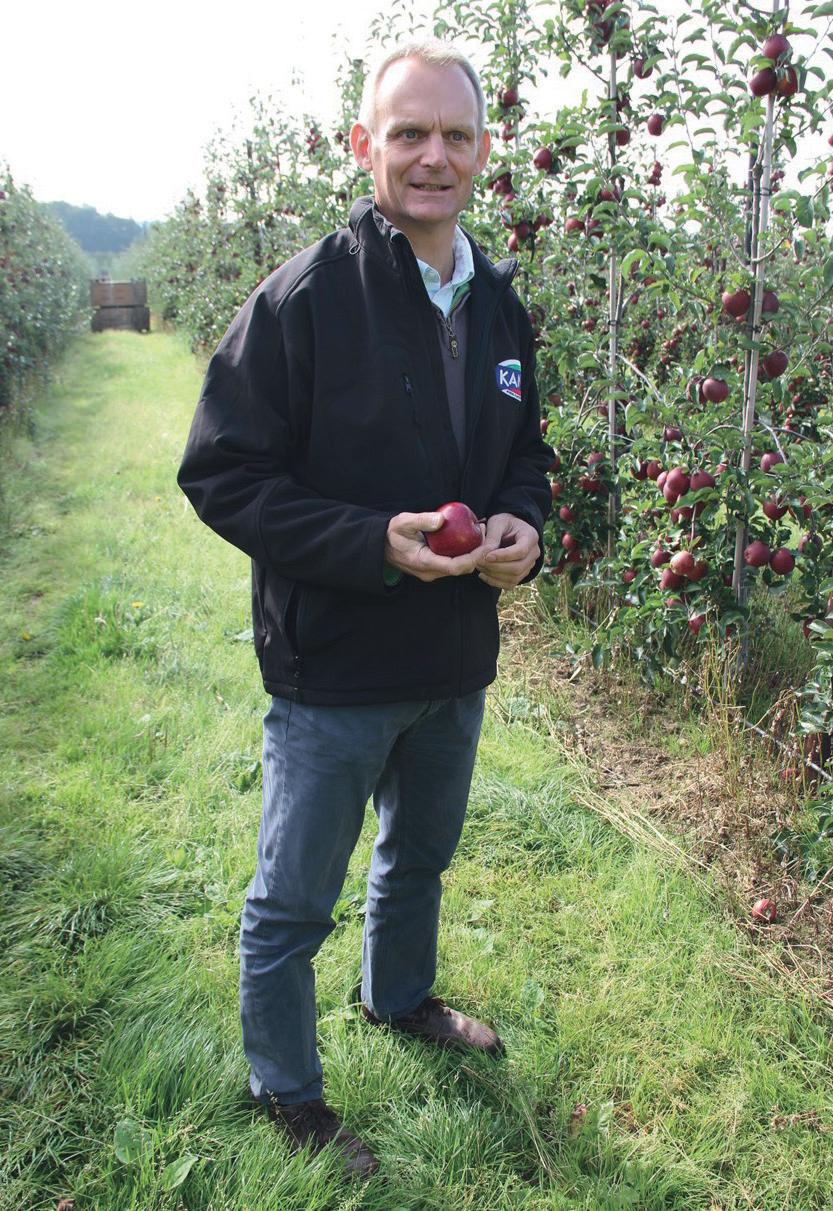
“We are thrilled to receive this substantial grant that will drive our efforts to pioneer a new era in agriculture,” said Carrol Plummer, Vivent’s CEO. “Our vision is to empower farmers with real-time insights from the very plants they cultivate, fostering a symbiotic relationship between agriculture and technology.”
The project’s next stage will involve farmers, technology providers, crop advisory companies, and research institutes.
According to Vivent, their shared goal is to achieve a new level of sophistication and efficiency in horticulture, and to improve the conservation of finite resources such as water and fertilisers.
By harnessing the natural abilities of plants to communicate their nutritional requirements, farmers will make better-informed decisions, optimise yields, and contribute to a more sustainable and environmentally friendly approach to farming, the group added.
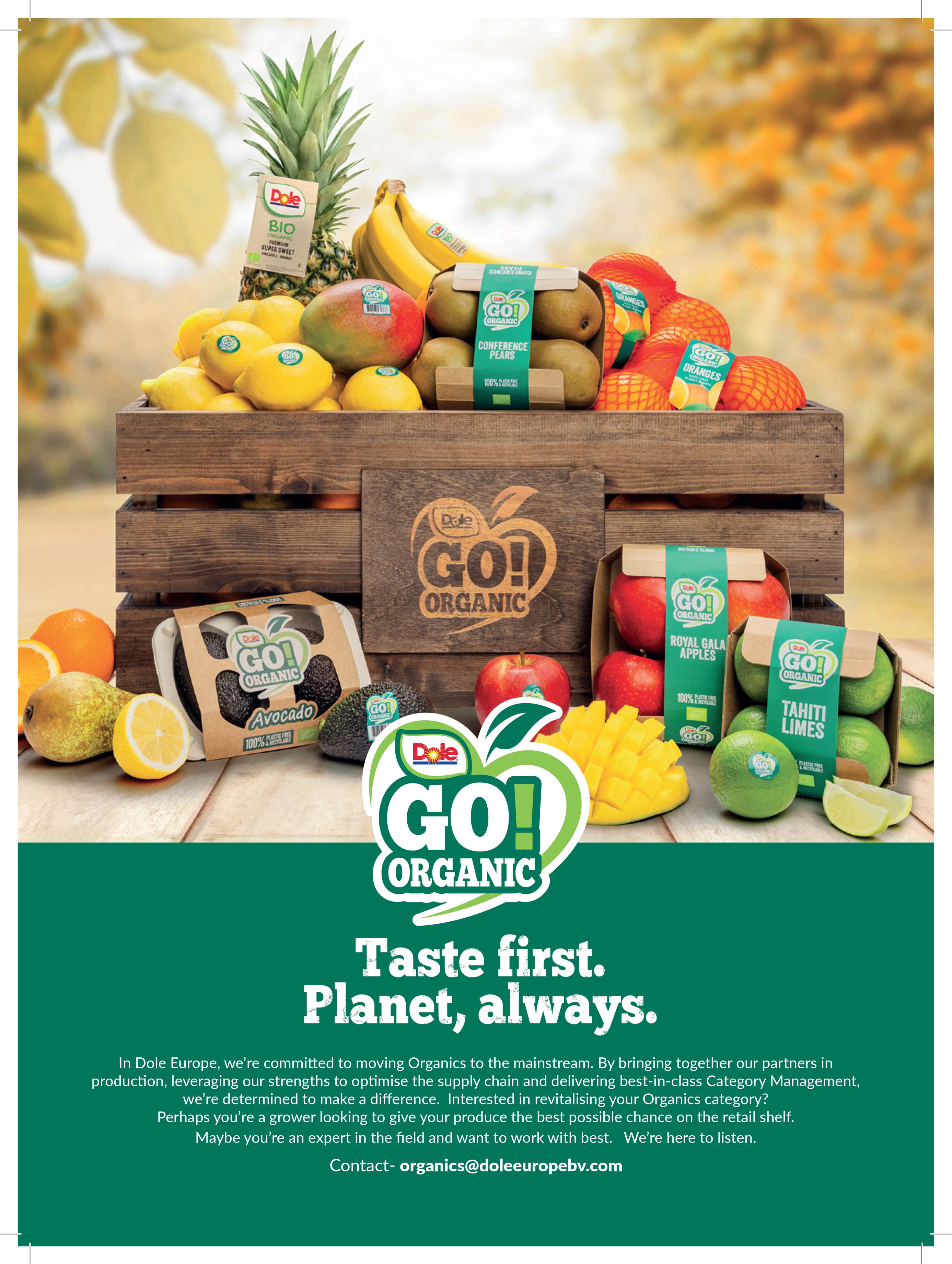
Water For All, a project run by Continental Fresh, offers customers the chance to demonstrate corporate responsibility when it comes to preserving natural resources.
by Mike Knowles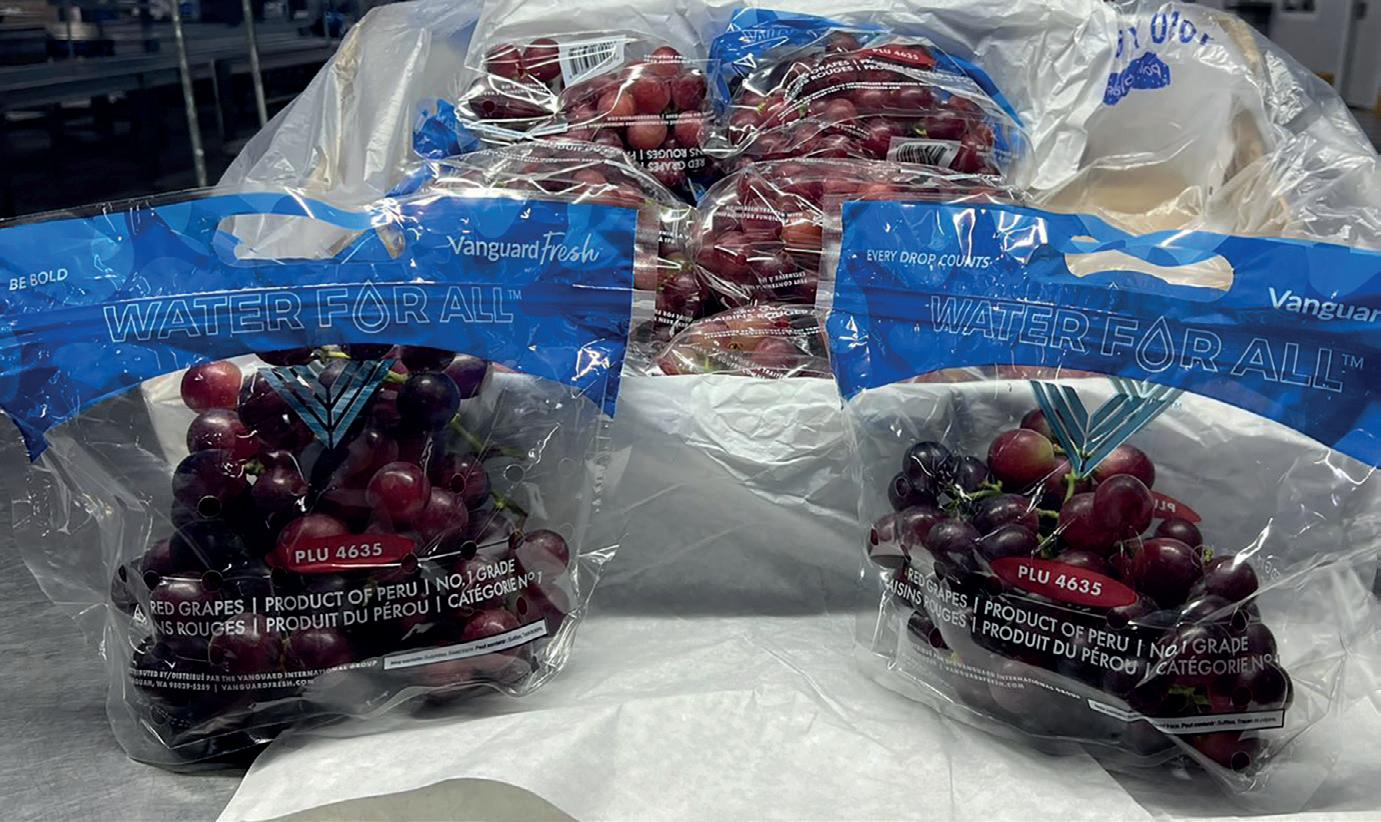
Fresh table grapes supplied by Vanguard Group International are the focus of a new pilot project in the US that aims to raise awareness of water conservation efforts in Latin America.
Announced in late February, the trial will build awareness of corporate social responsibility initiatives run by producerimporter Continental Fresh’s licensed brand Water For All. Soon after, Vanguard received the first containers of grapes that carry the Water For All label. These were distributed to retail and wholesale customers across the US during the spring.
“Producers are continuously faced with water issues,” said Dirk Winkelmann, Vanguard’s chief commercial officer. “Through the Water For All branded programme, we are providing our customers, especially retailers, an avenue to
connect with their consumers on multiple levels, including demonstrating their support of CSR initiatives.”
Winkelmann said the Water For All project would have a “broad-reaching positive impact” for Vanguard’s and Continental Fresh’s customers, consumers, and the communities from where they source the fruit.
“The programme delivers a tangible CSR solution to retailers and wholesaler customers with a strong social conscience and desire to participate in initiatives that support the conservation and sustainable use of water resources.”
ABOVE—The Water for All label promotes water conservation efforts
RIGHT—Vanguard’s chief commercial officer Dirk Winkelmann (left) and Albert Perez (right), founder and CEO of Continental Fresh.
Albert Perez, founder and CEO of Continental Fresh and creator of Water For All, said it had long been his dream to communicate the programme’s joy and benefits through partnerships with like-minded companies and customers.
“This partnership with Vanguard Group International is a clear message to buyers and consumers that we are companies that are in business to make a difference,” he said. “Profit and purpose can be equal drivers of success.”
Recently, Continental Fresh launched a new campaign called PLU with Purpose that spotlights the benefits of its Water For All mangoes. For every box of mangoes sold under the label, one per cent of the proceeds is donated to Blue Missions, a nonprofit organisation that connects families in Latin America to clean, fresh water through clean water and sanitation projects.
Now, every Water For All-branded box of Vanguard grapes also makes the same percentage contribution.
“Our long-term objective is to grow this into a multi-product offering to a broad group of US retail and wholesale customers who have an interest in supporting this type of initiative, helping to fund efforts which have a very concrete and measurable impact on a local level in water challenged communities,” Winkelmann revealed.


EFFICIENT CARTON PACKAGING
THE USE OF CARDBOARD LID ON TRAY BRINGS UP TO 15% COST SAVINGS .
WRAP-TRAY
Adaptable to sizes FLAT®-TRAY Free fillable
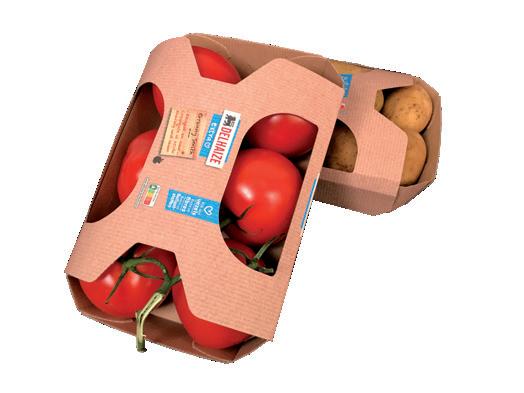
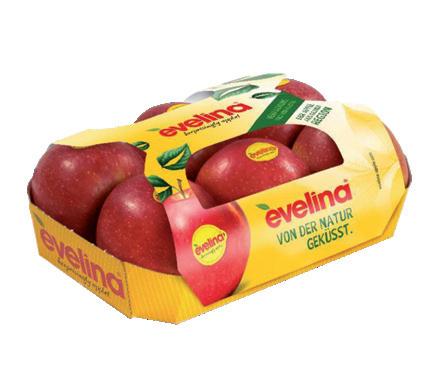
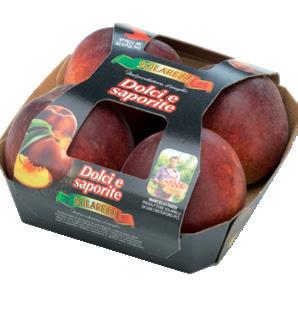


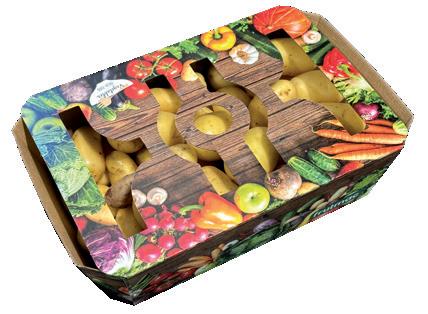
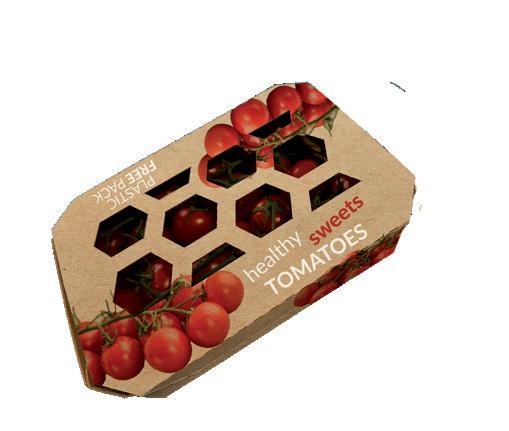

THE SOLUTION:
EFFICIENT CARTON PACKAGING LINE
NEW: JOLLYPACK HS BLITZMATIC PRO
HIGHSPEED & REDESIGN SPEED UP TO 60 P/MIN & FLAT-LID-OPTION
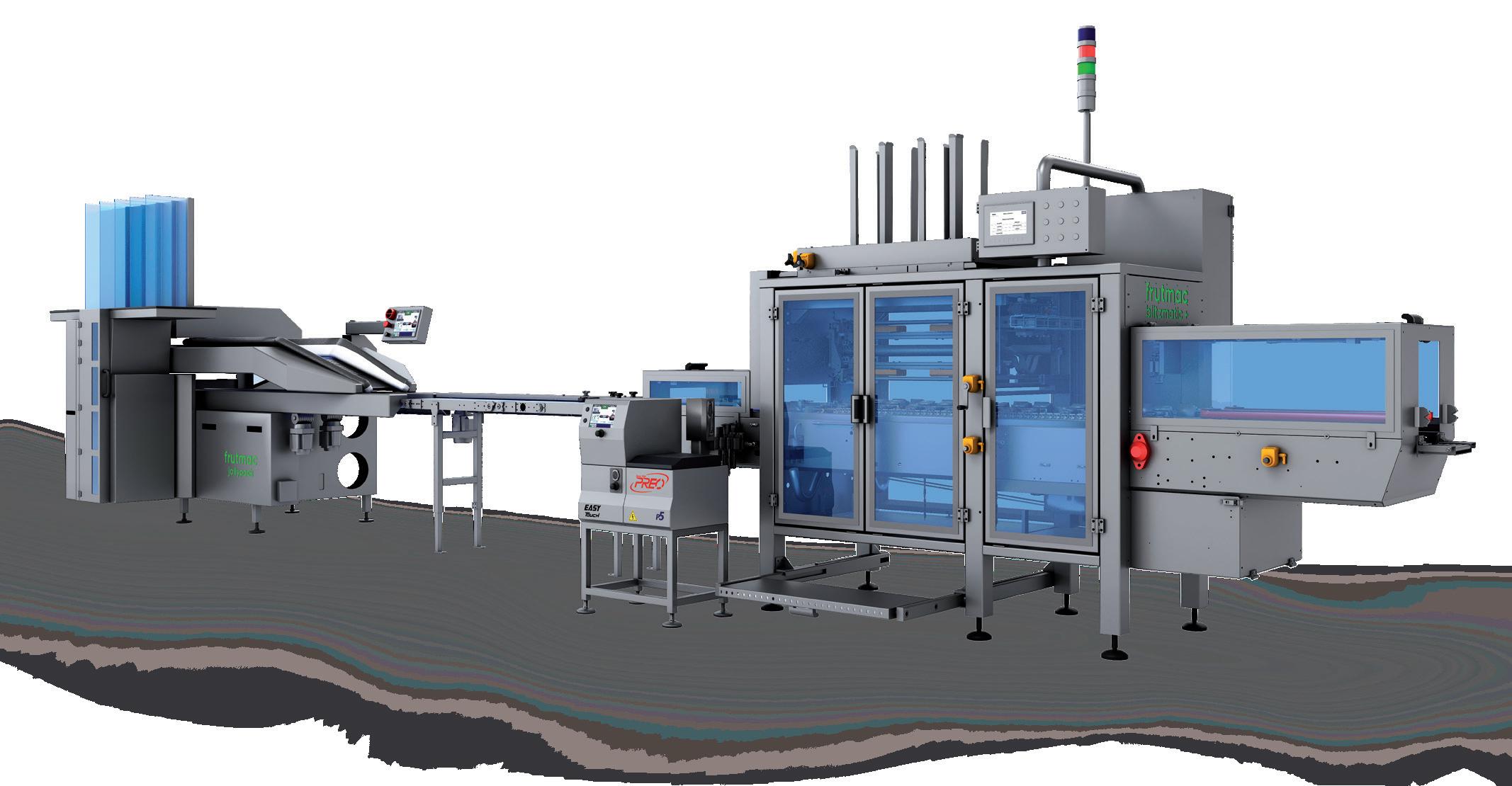
Agricultural entrepreneur Peter Blezard warns that short-term rationing will not solve the water crisis.
by Carl CollenAfter Spain grappled with drought in February and with UK farmers also fearing another tough year, a veteran agritech entrepreneur has questioned the short-term approach of continually rationing water and says new agricultural solutions are urgently needed to ensure we can continue to feed a hungry population.
Agriculture is the biggest consumer of water on earth and is, therefore, under constant scrutiny. However, Peter Blezard of Engage Crop Solutions is challenging decision makers in Spain and around the world to focus on finding available solutions now that allow us to utilise more land for growing crops without using more water, rather than focus on imposing more stringent restrictions that will impact food production and raise food prices even more.
The world must produce 56 per cent more food by 2050 to match population growth and Blezard says stakeholders, investors and growers must look to new technology, data and AI, improved irrigation systems, new drought resistant crops and smarter crop input technologies to overcome the challenge.
Blezard has worked for more than 25 years in agriculture across the globe but has been working to find a solution to the agricultural water crisis for the past decade. He warns water is becoming a critical issue not just in southern Europe and the Middle East, where water is dubbed the new ‘Blue Gold’, but in the UK and northern Europe too.
“The water situation in Catalonia and across Spain is critical but this crisis has been growing for years,” he explains. “It’s an issue that is being seen not just in arid regions of the world, but in every country, as record temperatures challenge everyone to look at water use. Water impacts us all, both socially and economically.
“Spanish growers already face restrictions on how much water they can draw, but the new proposed restrictions are going to severely impact their ability to produce food,” Blezard continues. “This is a short-

“There isn’t a simple fix, but we must adopt a range of new technologies to make efficient use of water in agriculture”
term solution that will impact food prices across the country and around the world. Obviously, we have to increase and maintain agricultural production to feed the growing population, but that will come at a heavy cost to our water reserves, even if extraction of water is allowed. Many countries are already predicted to run out of fresh water and Spain is also watching its reserves drain away.
“Too much of what we see is focused on the problem, but we must now turn our attention to finding solutions,” he outlines. “There isn’t one simple fix, but we must adopt a range of new
technologies to make much more efficient use of water in agriculture. Growers must produce more food and that means they need to unlock more land for agriculture. However, the key to doing that is making sure they don’t use any more water.”
Engage Crop Solutions produces a key water-saving technology called Aqualatus that allows growers to cut their water use by half while still maintaining crop quality, and this is already being used by a number of growers in Spain and around the world.
Aqualatus has been used for several years in Almeria and
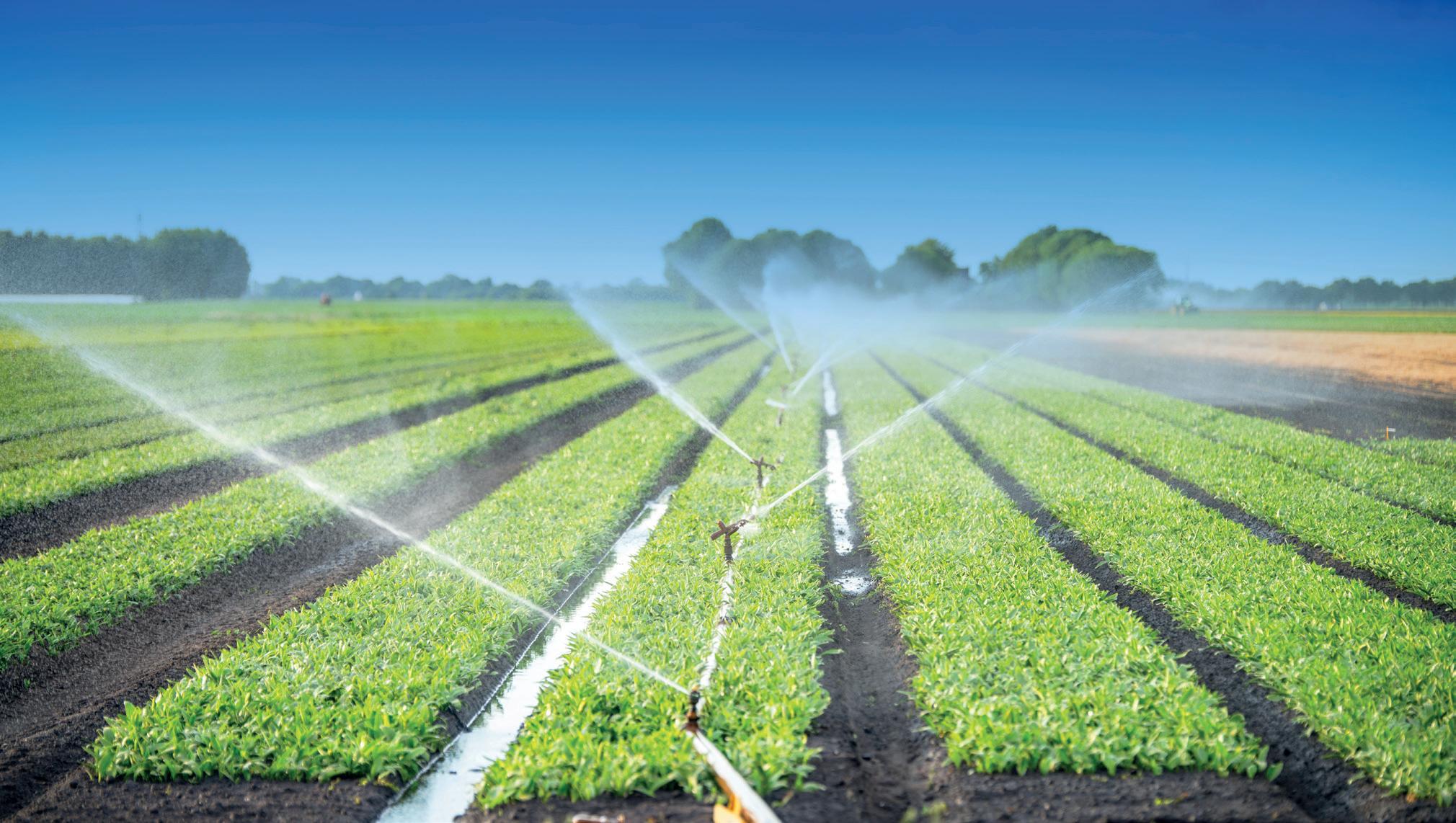
Engage say it is proven, sustainable, environmentally friendly and is ensuring growers can remain productive and profitable during the water storage crisis.
Alfredo Garcia is a director and technical manager of Agroliner Agricultura Avanzada and supplies CASI, the largest tomato growing group in Europe, with Aqualatus. He says the technology is transforming production in hot climates.
“In these conditions, Aqualatus is saving up to 30-50 per cent of water, electricity and fertilisers, which means that, because we have a monthly water expense per hectare of between US$2,750 and US$3,045, if we save up 30-50 per cent, the farmer can save up to US$990 and US$1,650 in water per hectare a month,” says Garcia.
With Aqualatus, some growers are reporting up to 65 per cent savings in water use while still seeing yield increases, and a trial with the Municipality of Dubai proved the city could save as much as US$152m (560m dirham) a year when they used Aqualatus in irrigation systems for landscaped areas.
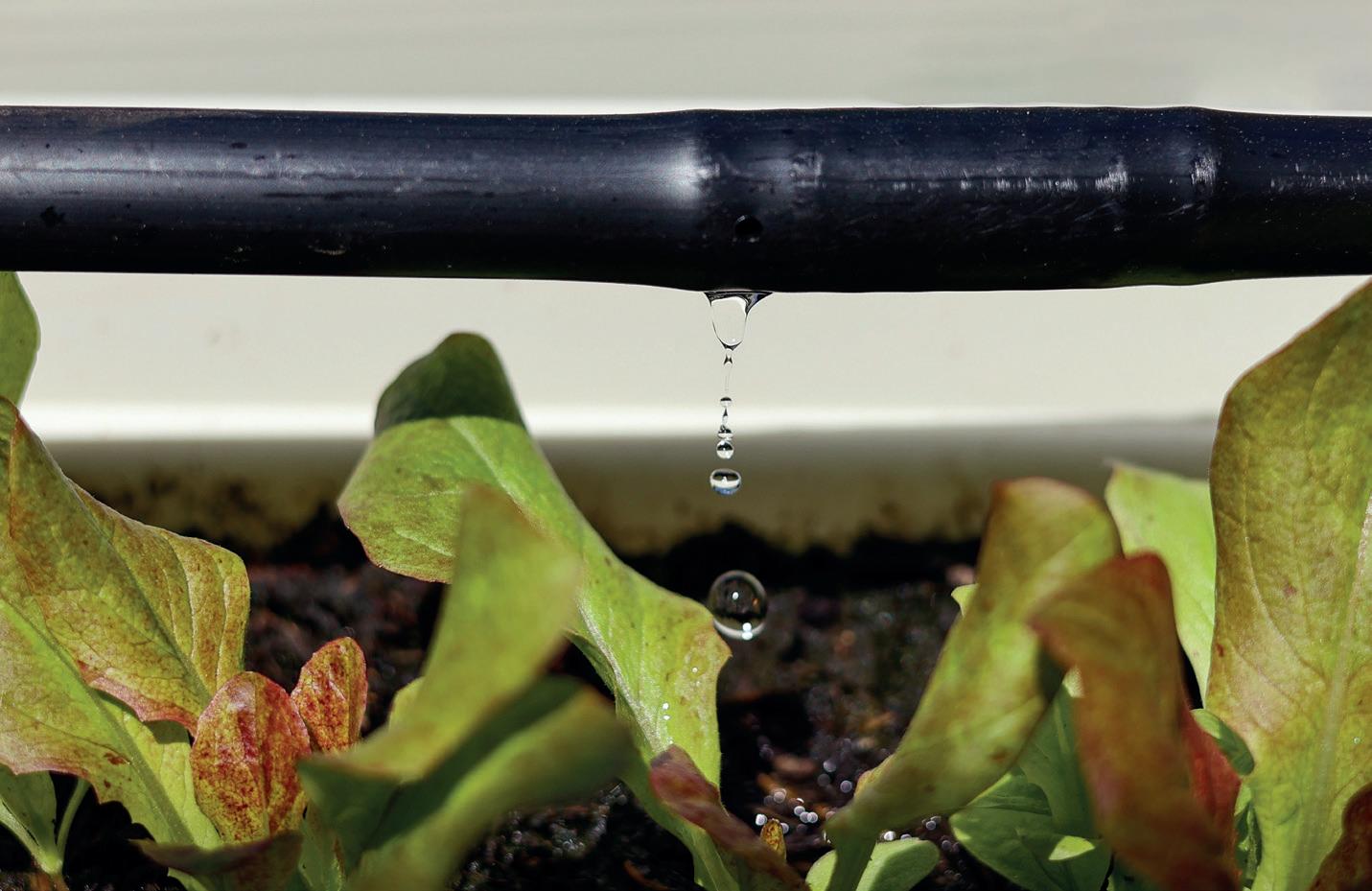
According to Engage, the technology is easily applied to existing irrigation systems and is a blend of liquid polymers which contain billions of microscopic structures (micelles). These adhere to soil particles and slow the gravitational movement of water while promoting lateral movement, thereby increasing the moisture-holding capacity of the soil and improving soil quality.
Surface runoff and evaporation are almost completely eradicated and gravitational movement is dramatically slowed, Engage adds. Reducing this natural water loss allows for irrigation volumes to be much lower and timings to be shorter as the soil is more retentive, giving growers a “great return on investment”.
OPPOSITE— Peter Blezard
TOP—Growers must strike a balance, producing more without increasing their water use
ABOVE—A drip irrigation system
Company said the move reflects its ongoing commitment to environmental sustainability.
by Maura MaxwellValencia-based post-harvest company Citrosol has received the “CalculoReduzco” seal for the second consecutive year after having registered its carbon footprint in the Carbon Footprint Registry.
The seal is awarded to organisations that calculate and record their carbon footprint for a minimum of four years, have a GHG emissions reduction plan and make this reduction commitment effective with the validation of the Ministry for the Ecological Transition.
CEO Jorge Bretó said the company was “incredibly proud” of the achievement, which it said “recognises our firm commitment to sustainability and the reduction of our environmental footprint”.
The voluntary seal not only allows companies to show their commitment to the fight against climate change, but also to promote the evaluation and reduction of the carbon footprint, as well as to support projects aimed at improving the carbon absorption capacity in Spain.
“At Citrosol we firmly believe that companies have the responsibility to protect and preserve our planet for future generations. That is why we have implemented rigorous sustainable policies and practices throughout our operations, from production to distribution,” Bretó said.
In the three years to 2022, Citrosol has managed to reduce
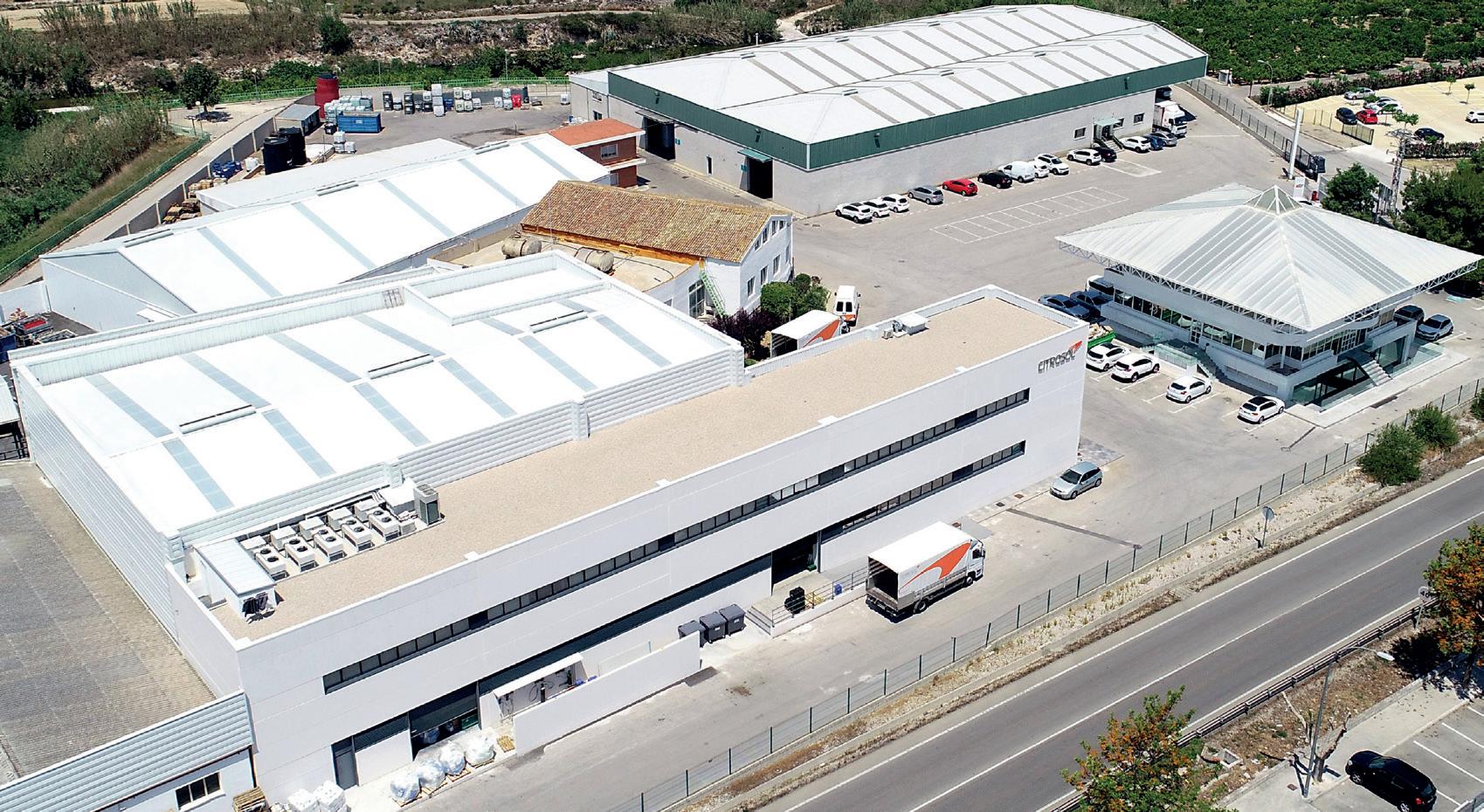
the average emission intensity for Scope 1 + 2 by 24.6 per cent. Compared to 2018, when the company produced 84.09kg of CO2 per tonne of production, the same indicator for 2022 shows a 57.1 per cent reduction in Scope 1 and 2 emissions.
“This validation seal not only ratifies our past efforts, but also inspires us to continue forward on our journey toward sustainability. We will continue to look for new ways to reduce our carbon footprint, adopting innovative technologies, optimising our processes and collaborating closely with our partners and suppliers to promote sustainable practices throughout our supply chain,” Bretó said.
He pointed out that Citrosol’s environmental improvement plan not only benefits the environment, but also boosts the company’s competitiveness and strengthens its relationship with its customers
ABOVE—Citrosol works closely with partners and suppliers to promote more sustainable practices throughout the supply chain
and the community in general.
“We are committed to leading the change towards a more sustainable future and hope to inspire other companies to join us on this important journey,” he said.
Among the measures implemented are the hiring of electricity suppliers with a guarantee of renewable origin, the installation of a photovoltaic plant to reduce dependence on the conventional electrical grid and the optimisation of manufacturing processes to reduce the consumption of fossil fuels.
Future plans include new, more efficient production equipment, the optimisation of distribution routes and warehouse management to reduce off-route trips, as well as replacing the company’s vehicle fleet with more efficient and less polluting models.
“These initiatives reinforce Citrosol’s ongoing commitment to mitigating climate change and promoting sustainable business practices. Obtaining this seal further reinforces our commitment to continue being leaders in sustainability in the post-harvest sector,” Bretó said.

Chiquita’s long-term Yelloway collaboration seeks to develop bananas with resistance to both diseases and environmental threats, as well as reducing emissions through spraying.
by Tom JoyceBanana giant Chiquita last year entered a strategic, long-term collaboration with KeyGene, MusaRadix and Wageningen University and Research (WUR) to launch the Yelloway initiative. The goal of the initiative is to produce
bananas that are resistant to both pathogenic diseases and environmental threats, with a primary focus on Tropical Race 4 (TR4) and Black Sigatoka, while also reducing carbon emissions.
“Having been in the produce industry for over 150 years,
Chiquita has witnessed the direct effects of climate change and its imminent environmental threats,” said Peter Stedman, Chiquita’s director of sustainability.
“The Yelloway initiative allows us to make a difference for the greater good, especially when it comes to food security and nutrition globally. This process will provide a long-term, sustainable solution for the banana export industry, increase banana varieties and reduce carbon emissions – we are incredibly proud of the work we’ve done.”
The Yelloway initiative follows four pathways, according to the company, beginning with genome mapping, followed by plant breeding, laboratory testing and, lastly, field trials, which are already underway in the Philippines.
“Each year, Black Sigatoka, TR4 and other diseases cost the banana industry several hundred million dollars in crop protection,” Chiquita stated. “The current practice to prevent Black Sigatoka is through aerial spraying, which directly emits carbon emissions. By creating resistant varieties through Yelloway, Chiquita will help safeguard banana production, resulting in less planes in the air spraying protectant, directly decreasing carbon emissions.”

GREENFOG-AS, “zero residue” broad spectrum fungicide and disinfectant smoke treatment for fruit and vegetable produce.
GREENFOG-AS is a dual solution with high disinfectant efficacy and that can be used for the treatment of fruit in cold /degreening rooms and containers. Its active ingredient is a green chemistry compound (approved for post-harvest treatment of citrus fruits) and a GRAS substance for the American FDA, and a "minimal risk" fungicide for the American EPA.
Initiative will promote environmental, social and corporate governance criteria among its partners and workers.
by Maura Maxwell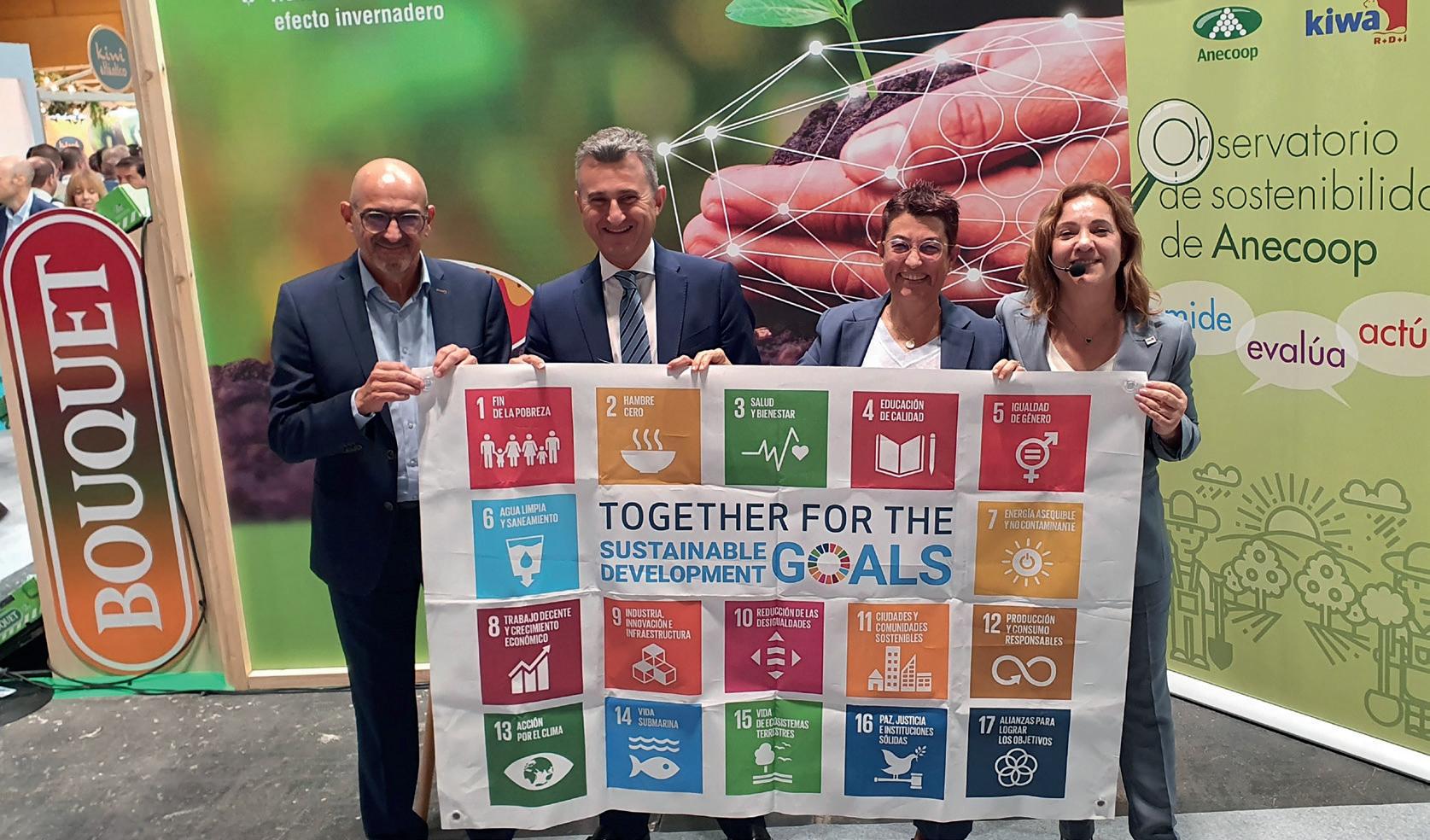
Anecoop has launched a new initiative to promote environmental, social and corporate governance criteria among its cooperative members and workforce.
Campus Anecoop will provide specialised training sessions for its cooperative partners and employees on how to integrate sustainability in their organisations under the framework of the Sustainable Development Goals (SDG) and the European Green Deal.
President Alejandro Monzón said the move aims to promote “business practices aligned with international sustainability standards”.
The training programme will cover key points to promote sustainable development in the agri-food sector, such as
decarbonisation strategies, circular economy, life cycle, food waste and environmental footprint.
The formation of Campus Anecoop also leaves room for the management and governance of the sustainable cooperative. Thus, participants will be provided with practical tools and specialised knowledge to face current and future challenges in terms of environmental and social responsibility.
The perceived value of ESG criteria sometimes leads to greenwashing – companies trying to achieve recognition without this being supported by real actions.
Aware of this reality, Campus Anecoop will make sustainability verification processes available to students, as well as key performance indicators and evaluation systems that allow them to accurately measure the social, economic and environmental impact of their cooperatives.
“The measurement of actions and projects linked to sustainability is the best guarantee that any organisation has to put on the table its real commitment to the community and dispel the
LEFT—The new campus is part of Anecoop’s Sustainability Observatory, launched at last October’s Fruit Attraction
suspicion of greenwashing,” said Mari Carmen Morales, director of quality and sustainability at Anecoop.
The move forms part of Anecoop’s Sustainability Observatory. Launched last October from the alliance between Anecoop and Kiwa R&D, it aims to generate the necessary knowledge and innovations that drive the agri-food sector towards greater efficiency, competitiveness and resilience in the face of climate change in Spain.
To do this, it works with social and economic indicators to investigate how to promote the sustainable development of agricultural cooperatives, improve their competitiveness and increase their economic growth, while acting positively on the environment.
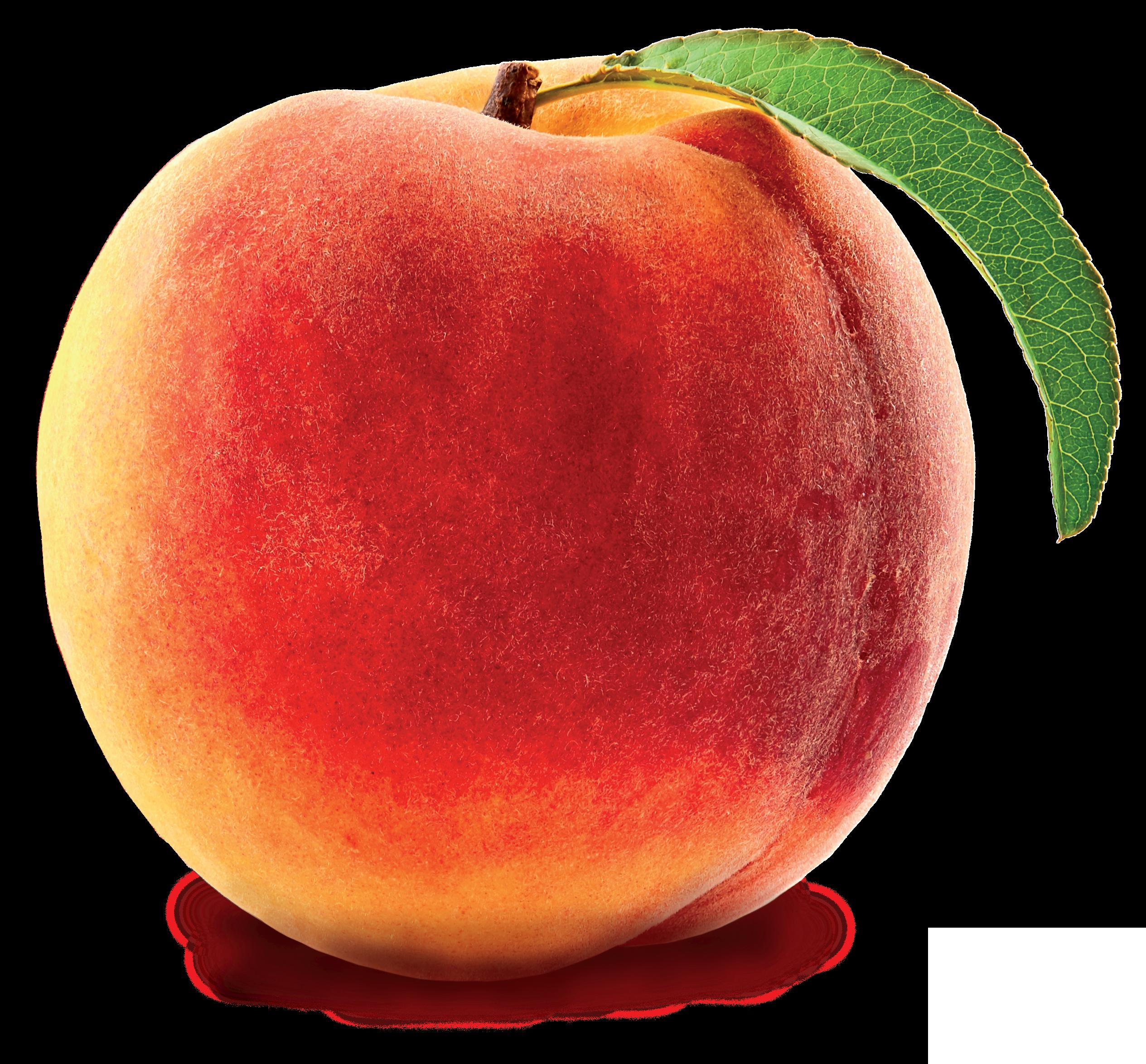


The
Italian apple marketer says it wants to make environmental, social and governance projects central to its future commercial development.
by Mike Knowles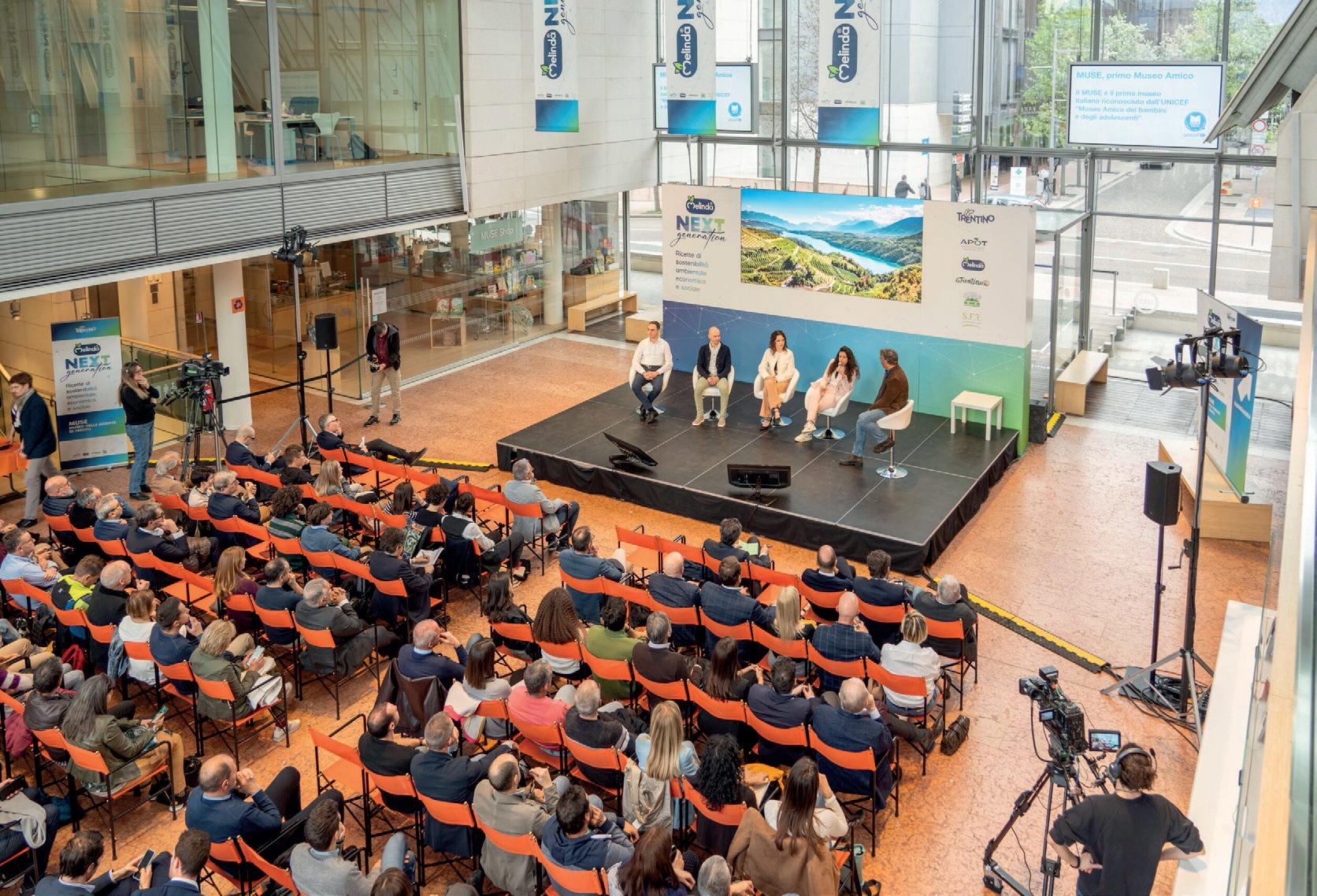
Energy saving, efficient management of water resources, regenerative agriculture, environmental and social responsibility. Those are the major themes of Italian apple supplier Melinda’s first ever sustainability report, which was published in March 2024.
The report, which was drawn up in compliance with Global Reporting Initiative standards, is seen as an important way to publicise work that has already been done through Trentino Frutticolo Sostenibile, a project supported by Apot, the association that brings together producers of Melinda’s fruit.
“For years, Melinda has been committed to promoting its corporate social and environmental responsibility, and developing increasingly sustainable solutions for products and processes. But now it is necessary to take a further step forward: putting our face to it, so to speak,” explains Luca Zaglio, Melinda’s general director. “We must move from knowledge to awareness, that is, taking note of the role of sustainability as a strategic value in business development.”
Melinda and Apot certainly have a lot of initiatives to report on. These include projects that reduce chemical sprays in orchards, lower carbon emissions, restore soil fertility, and conserve water. For a while, the organisations have used only renewable energy from hydroelectric and photovoltaic sources. And Melinda’s much-publicised underground coldstorage cells deep inside a mountain have further reduced their energy requirements.
Melinda’s plan for a new logistics system that will transport pallets of fruit using cable cars in Italy’s Dolomites is set to reduce its reliance on road transport.
Each cabin on the 1,300m cableway will carry three stackable bins of apples from Melinda’s Predaia packhouse in Trentino’s Non Valley and into its unique storage centre, which occupies space in a disused area of the Rio Maggiore mine, deep inside a mountain.
The system will reportedly transport 460 containers, or 150 tonnes of apples, per hour at a speed of 5 metres per second.
At present, the transfer of harvested apples into storage during the autumn requires ten trucks to make a total of 80 trips per day, each carrying 36 bins. Then, over the following nine months, 15 trips per day are needed to retrieve fruit that has been sold.
With plans already in place to expand the storage capacity inside the mountain to 40,000 tonnes, those journeys are expected to increase by 30 per cent, which makes the cable-car project so important..
Apot, meanwhile, has helped the nearby Alta Anaunia Bioenergy farmers’ cooperative to establish a biodigester that produces energy from zootechnical effluent. Fruit growers in Val di Non can use the resulting compost-like material.
And with an eye on further future improvements, Melinda has also established Melinda Next Generation, a working group of young people who will develop new sustainability strategies in key areas of the business.
PICTURED—Melinda’s recent Next Generation meeting focused on the group’s future sustainability plans


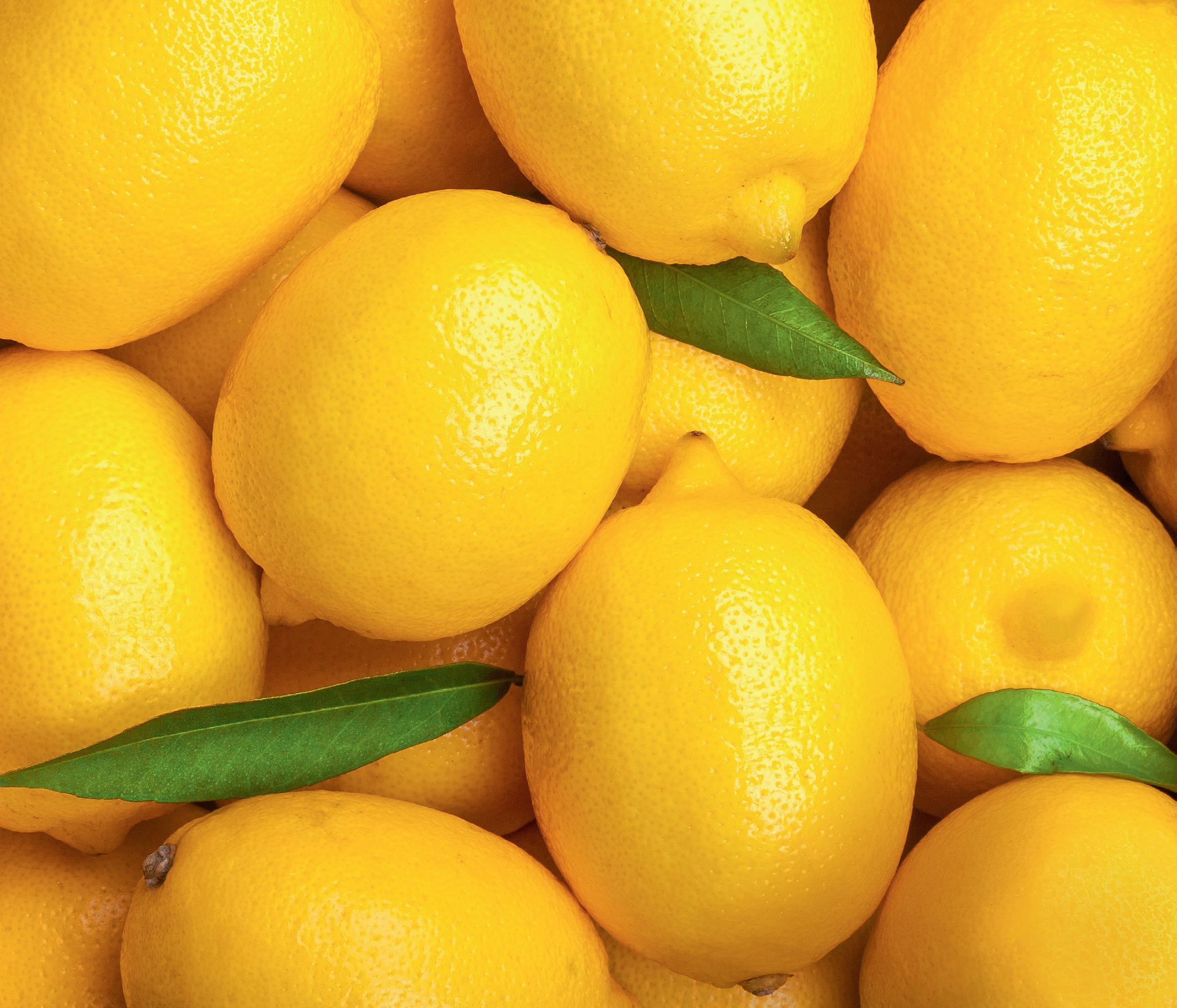


A new R1.2m agreement in South Africa will support the commercialisation prospects of black citrus producers in the Eastern Cape.
by Carl CollenIn South Africa, a R1.2m agreement signed by the Citrus Growers AssociationGrower Development Company (CGA-GDC) and the Eastern Cape Development Corporation (ECDC) is set to bolster the commercialisation prospects of black citrus producers in the Eastern Cape.
The 18-month agreement is designed to support the commercialisation activities of black citrus producers while breaking down the barriers to entry to the export market. The agreement will initially support ten of the 37 black citrus producers in the Eastern Cape.
The 37 black farmers are drawn from the citrus growing regions of Patensie (5), Sundays River Valley (13) under the Sarah Baartman District Municipality, and in the Kat River Valley known as the Eastern Cape Midlands (19) in the Raymond Mhlaba Local Municipality, where black citrus producers are mainly concentrated.
“The programme will support black citrus producers with compliance with Global Good Agricultural Practices (GlobalGAP),” said Akho Skenjana, ECDC senior manager for manufacturing and agroprocessing.
“The costly Global Good Agricultural Practices certification is a prerequisite for entering the export market,” he continued.
“An additional requirement is compliance with Sustainable Initiative of South Africa’s (SIZA) ethical trade requirements. Farmers need to be certified on both standards to access export markets open to the citrus industry.
“The agreement will also result in the development of a feasibility study for the establishment of post-harvest facilities such as a packhouse and a juicing plant for participation in the value chain and also appreciate additional revenue streams for black farmers and sector.”
Skenjana said the agreement would be critical in ensuring that black citrus producers fully realised their export potential by ensuring that they were compliant with GlobalGAP and SIZA standards.
“The agreement will ensure that black citrus producers have this certification,” he confirmed. “The GlobalGAP ensures compliance with the safe use of chemicals during production and farming practices in the farms. The SIZA certification is an ethical trade requirement which enforces good relationships with farmworkers, adherence to labour laws of the country as well as promoting good living conditions on farms.”
Lukhanyo Nkombisa, general manager for the Tshwaneheadquartered CGA Grower Development Company, said the agreement was part of its goal of
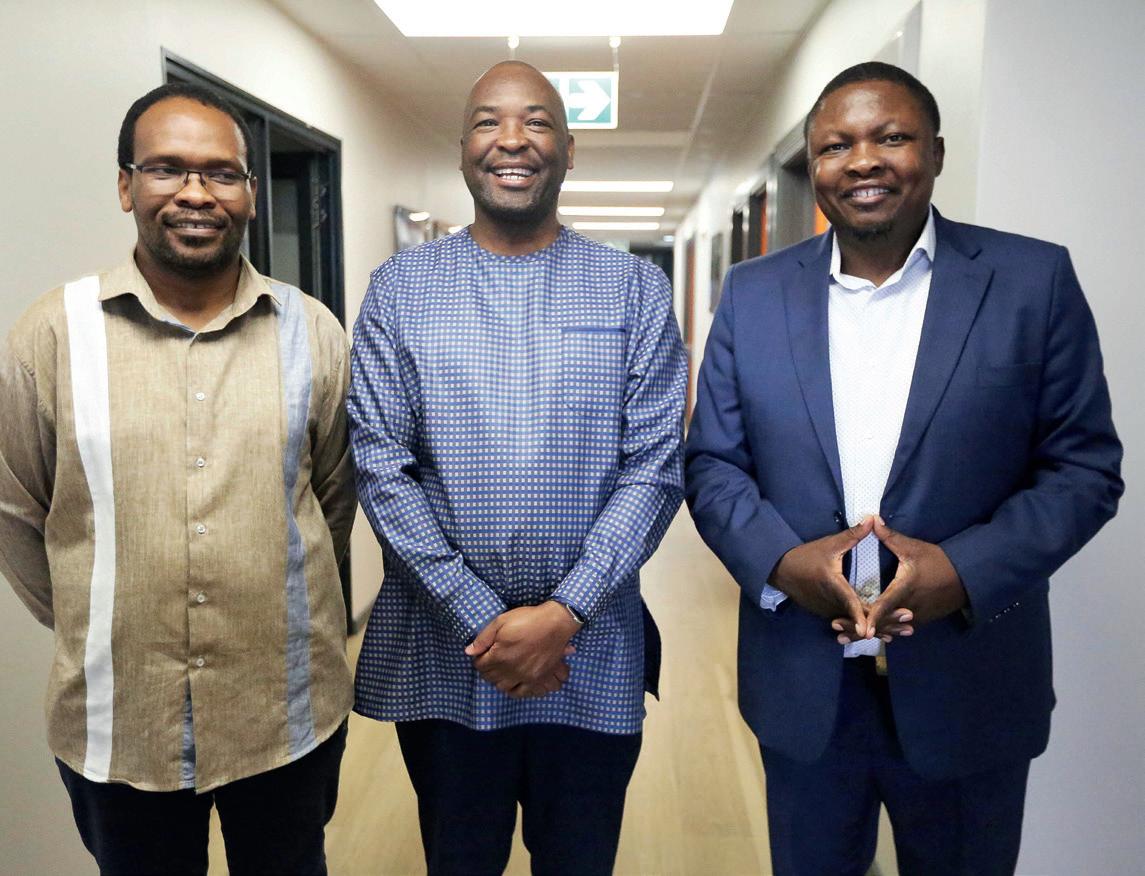

driving the development of the citrus industry while contributing to its transformation agenda.
Nkombisa noted that in terms of the agreement, the capital injection would be used for compliance and feasibility studies which would go a long way towards building up black citrus producers in the province. The compliance work will include assessments of the farming operations, support and the certification of black citrus producers.
ABOVE—The agreement will initially support ten black citrus growers in the Eastern Cape
Shaping the future of farming together with agriculture experts from across the value chain.
10–12 September 2024 Warsaw, Poland







Shaping the future of farming together
Scan to learn more







Digital tools and platforms can significantly streamline the compliance process by automating and simplifying various tasks.
 TGAETANO SCIAROTTA
TGAETANO SCIAROTTA
Sustainability Platform Advisor Agriplace
he European Union’s Corporate Sustainability Due Diligence Directive (CSDDD) marks a significant transformation for businesses, especially wholesalers and retailers. This directive sets requirements to integrate environmental and human rights considerations into the global supply chain. It is not only a regulatory requirement but also necessary for aligning with evolving standards of corporate sustainability and ethics. Staying ahead of these changes is crucial for wholesalers and retailers to maintain compliance, uphold reputations, and foster responsible business growth in an increasingly conscious marketplace.
Initially, the CSDDD was broad, targeting a wide spectrum of companies. However, as Euractiv reports, recent amendments have drastically narrowed its reach, reducing the number of companies affected to about 5,400 — a 70 per cent decrease from the original plan. This significant revision reshapes the responsibilities and roles of wholesalers and retailers, aligning them more closely with the directive’s requirements.
A significant amendment within the CSDDD is the elimination of employee count thresholds for specific industries, notably in agriculture. As reported by Foodnavigator.com, this adjustment signifies a commitment by the EU to enforce diligent sustainability and human rights standards, especially in sectors traditionally at higher risk of violations.
This removal of employee thresholds means that more businesses within these high-risk industries –regardless of their size – are now accountable under the directive. It underscores a shift towards a more inclusive and thorough approach to corporate responsibility, where the size of a company does not exempt it from
upholding rigorous ethical standards.
For industries like agriculture, known for complex supply chains and heightened sustainability concerns, this change leads to broader scrutiny and a more uniform application of sustainable practices. It compels all players within these sectors, irrespective of their scale, to rigorously assess and reform their operational practices, ensuring they meet the elevated benchmarks set by the CSDDD.
For wholesalers and retailers, a critical step in complying with the CSDDD involves establishing detailed documentation and reporting systems. These systems serve as the backbone for tracking and demonstrating compliance with the directive. Central to this process is the meticulous maintenance of records encompassing various aspects of the supply chain. This includes:
• Supply Chain Audits: Comprehensive records of audits conducted throughout the supply chain are vital. These audits should detail the findings on environmental and human rights practices of suppliers, showcasing thorough scrutiny and vigilance.
• Risk Assessments: Detailed documentation of risk assessments is another key element. These assessments identify potential areas within the supply chain where the business might fall short of the CSDDD’s standards. By keeping thorough records of these assessments, businesses can show proactive efforts in identifying and mitigating risks.
• Corrective Actions: Any corrective measures taken in response to audit findings or risk assessments must be meticulously recorded. This demonstrates not only compliance but also a commitment to rectifying issues and continuously improving supply chain practices.
To achieve this, thorough training for all employees is crucial. This training should be focused and
direct, detailing the specific requirements of the CSDDD and how they apply to various roles within the organisation, particularly those involved in procurement and supply chain management. Employees should understand how their decisions and actions contribute to meeting the directive’s standards. Sustainability and ethical considerations must be core elements in procurement and quality control processes. This means evaluating suppliers not only on cost and quality but also on their environmental and human rights practices. Such evaluations should be systematic, documented, and a regular part of procurement protocols.
The journey doesn’t end with training and process integration; continuous monitoring and evaluation of supply chain practices are necessary. This ensures that the company remains aligned with the CSDDD and adapts to any evolving standards. Regular reviews and updates of procurement and quality processes help maintain this alignment and demonstrate an ongoing
commitment to sustainable business practices.
In today’s digital age, leveraging technology can significantly streamline the compliance process. Digital tools and platforms can automate and simplify various aspects of compliance, from documentation to supply chain monitoring. These technological solutions can provide real-time insights, improve accuracy in reporting, and make it easier to communicate and collaborate with suppliers.
Tools like Agriplace significantly streamline various facets of the compliance process for wholesalers and retailers. For example, they offer a centralised data management capability.
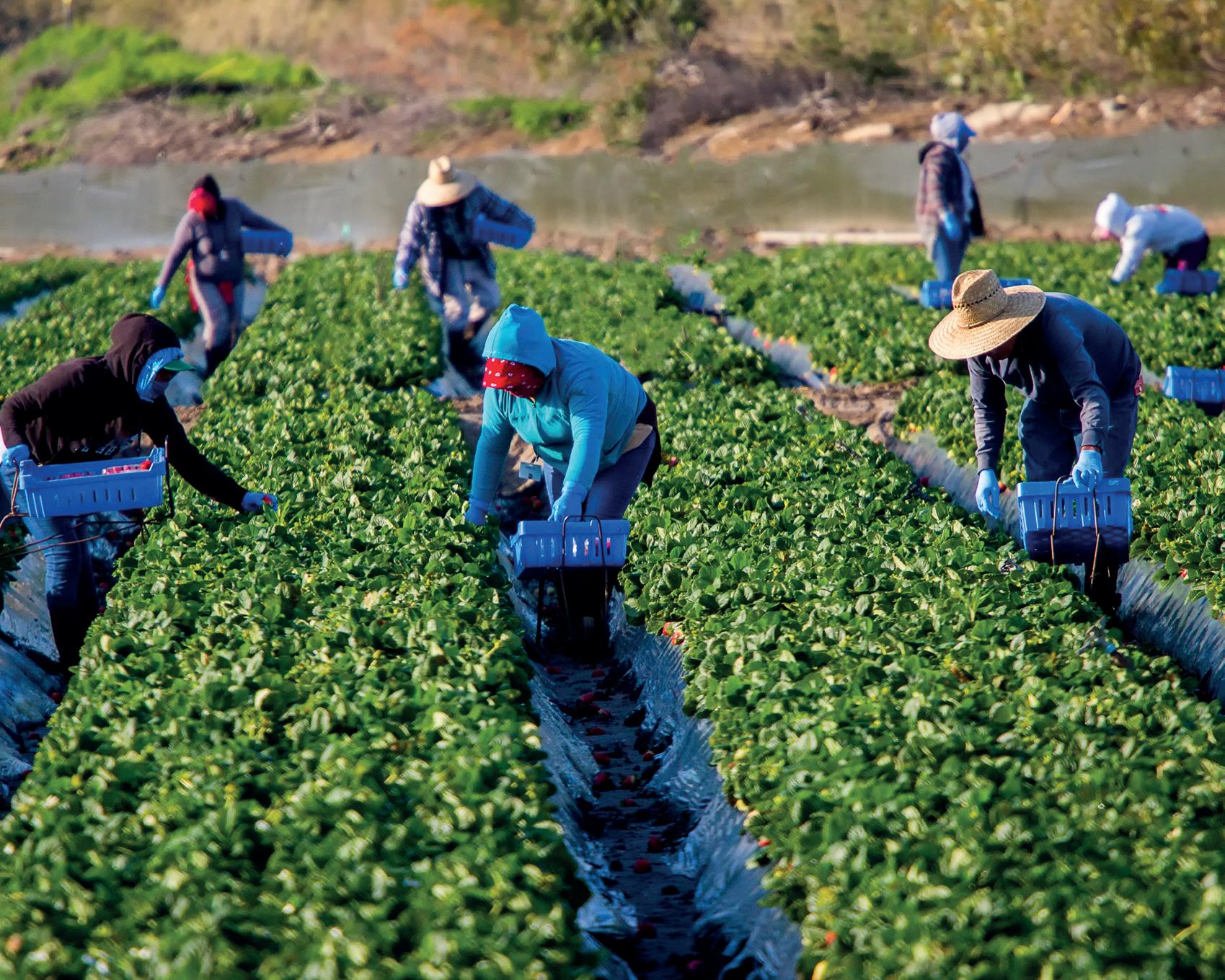
This feature allows businesses to consolidate all their compliancerelated information in one place. It simplifies tracking and managing various aspects of the CSDDD, from supplier information to audit reports and risk assessments. Centralised data management ensures that important information is easily accessible and manageable, enhancing the efficiency of compliance processes.
Another key advantage of using platforms like Agriplace is the streamlined communication they facilitate with suppliers. This aspect is critical in ensuring that suppliers are aware of and adhere to your requirements and your CSDDD standards.
Through Agriplace, businesses can share guidelines, request information and run risk assessments, exchanging feedback with suppliers in a more coordinated and efficient manner. This enhanced communication aids in building stronger, more transparent relationships with suppliers, ensuring a more cohesive approach to sustainability and ethical practices in the supply chain.
By integrating digital platforms like Agriplace in their procurement and quality management, wholesalers and retailers can manage their CSDDD compliance more efficiently and effectively. The automation and organisation provided by these tools allow businesses to focus on their core operations, confident that their compliance needs are being systematically addressed.
LEFT—Industries like agriculture, with its complex supply chains, will be suject to greater scrutiny
New research suggests at least 18m livelihoods in developing countries are supported by airfreighted fresh produce.
by Maura MaxwellAround 18m people in developing countries benefit from fresh produce exported to European markets by airfreight, according to a new study from Fairmiles. The research, involving producers from 21 countries spanning Africa and Latin America, builds on a 2023 study conducted mainly in East Africa, which found that at least 5m Africans rely on airfreighted horticulture.
The full findings of the research were presented during a recent roundtable meeting at the Press Club Brussels Europe of representatives of fresh produce
exporters, retailers, industry associations, logistics companies, NGOs and government. The question of whether it is fair to ban airfreighted fresh produce to achieve Net Zero emissions was also discussed at the meeting.
Fairmiles is made up a of organisations representing fresh produce businesses, academia and the international development sector. Its aim is to establish a just and equitable strategy, consistent with the principles of Climate Justice to ensure we achieve Net Zero without stopping vital market access for developing world producers.
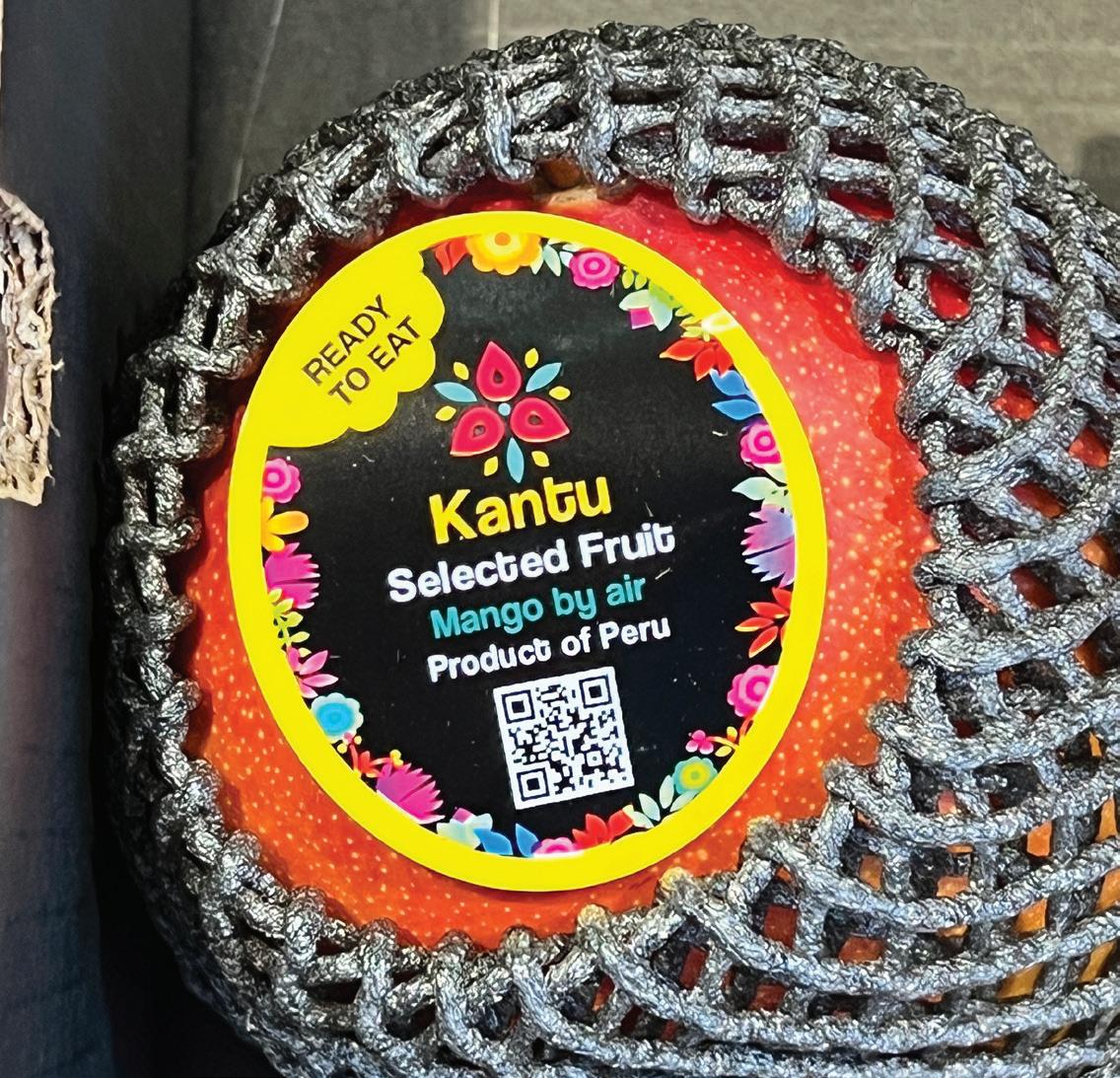
Certis Belchim’s G4TF project shows positive results in citrus
Certis Belchim has presented the results of a multi-year project to improve sustainability and food security in citrus production. Growing For The Future (G4TF)’s main objective was to compare a programme using conventional treatments (synthetic chemicals) against both the Certis Belchim Zero residue programme (CBR0) and Organic programme (CBE).
Assessment was based on five key performance indicators: good control of pests and diseases in crops; reduction of number of active ingredients of chemical products used; reduction of chemical residues in fruit; minimisation of the coefficient of environmental impact, and support of farmer’s profitability.
“Given ongoing European supermarket requirements to reduce chemical residues in produce, G4TF was developed as a strategic project committed to improving sustainability and food security,” explains Elías Mas, business development project manager a Certis Belchim.
To achieve the objectives with the five KPIs, chemical products were combined with Certis Belchim´s organic products for the CBR0 programme and organic products used in the CBE programme.
According to the company, the results of the study, which ran for four years, showed improvements across all five KPIs. Both CBE and CBR0 presented the same efficacy against pests and diseases as the conventional programme, along with a reduction of active ingredients of between 38 per cent and 70 per cent, and fruit output with zero chemical residues. Moreover they showed an environmental impact coefficient reduction of between 21 per cent and 99 per cent and increased profitability through improved yield – in some cases by up to 14 per cent.
Simon Derick, head of sustainability at the fruit manufacturer Blue Skies and a founding member of the Fairmiles consortium, said: “This latest research further underscores the important impact that air freighted fresh produce has in developing countries.
“It also highlights how we have a crucial responsibility to ensure a proper, balanced debate on this issue to ensure we can achieve Net Zero without having unintended consequences on vulnerable communities”.
LEFT—Fairmiles wants to see a more just and equitable approach to airfreighted produce
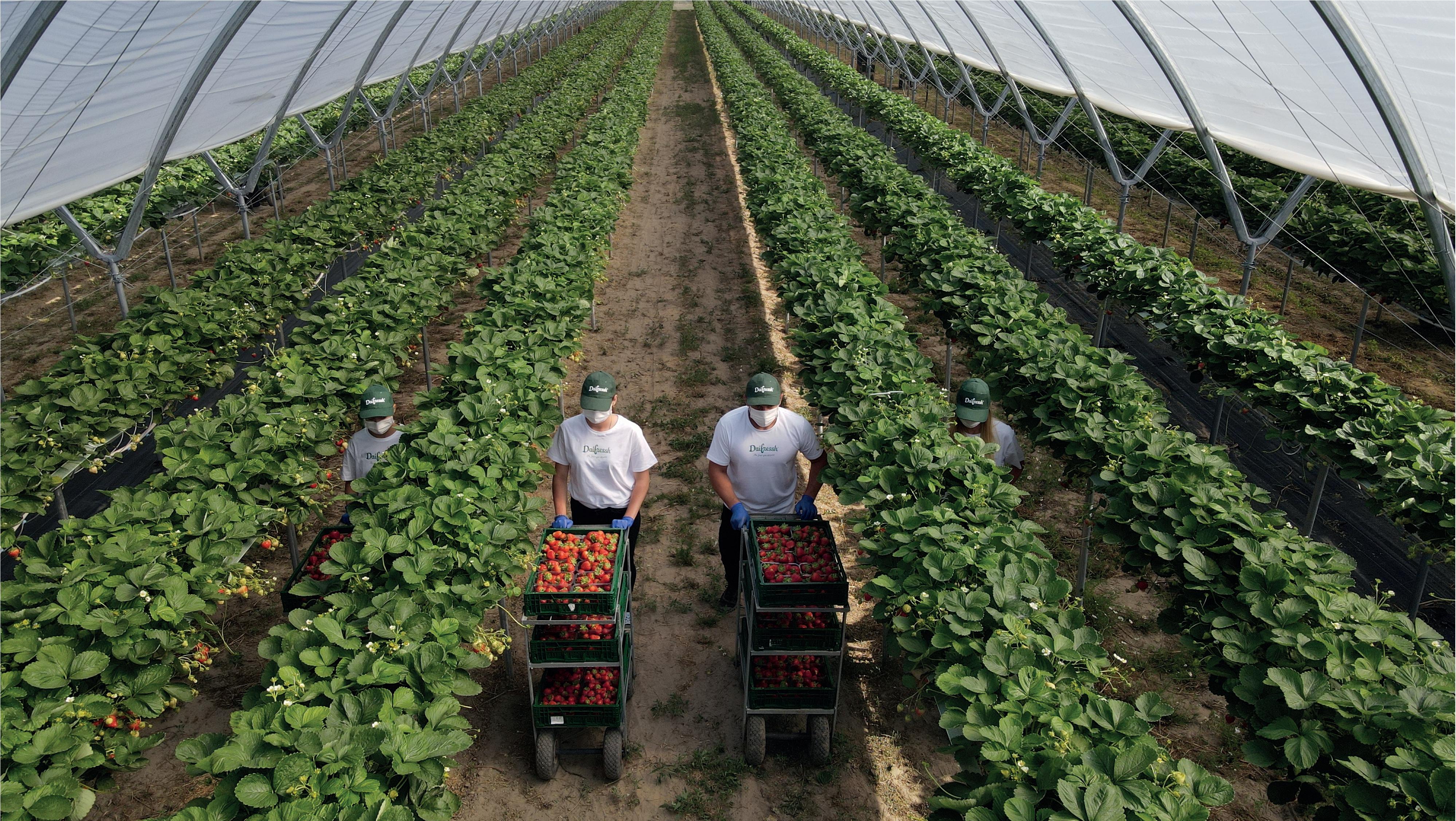
We are Berries & Citrus Specialists,
AND SUPPLY A WIDE RANGE OF FRUITS & VEGGIES
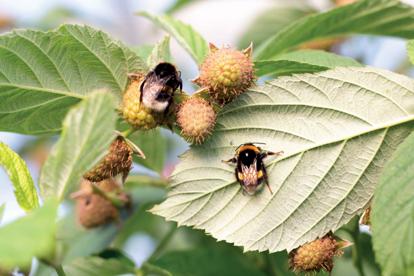
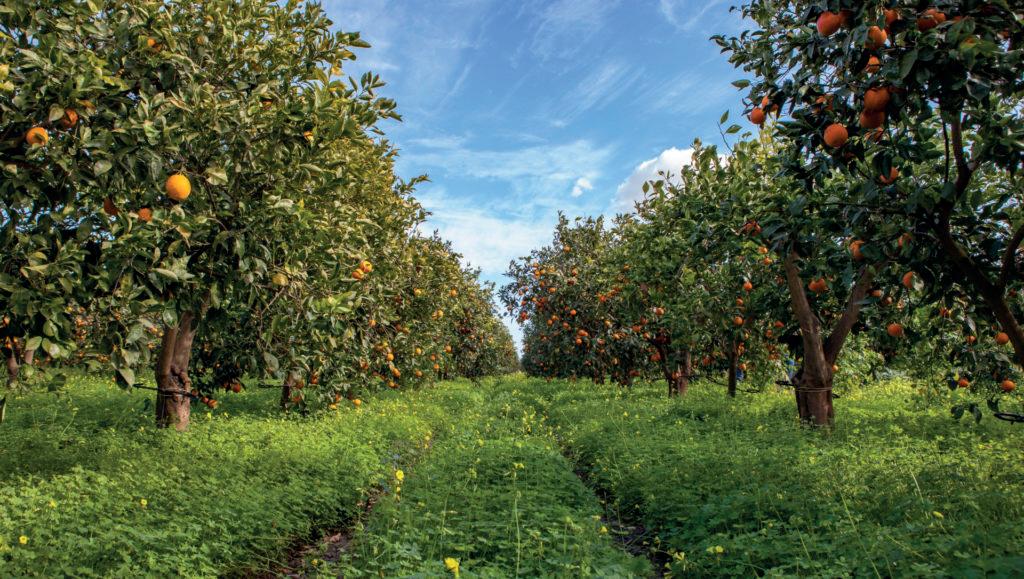
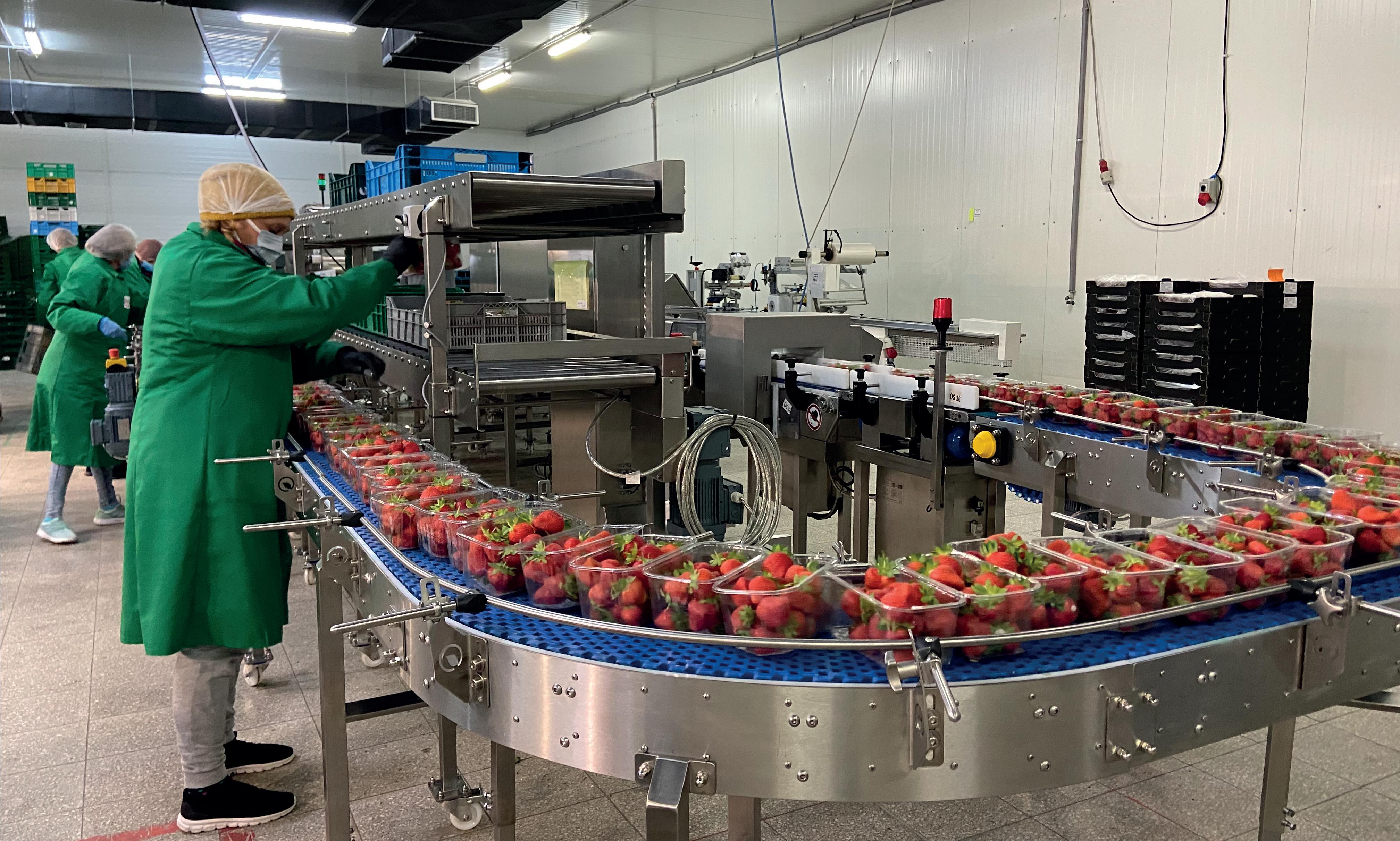
VERTICAL INTEGRATION WITH Production & Logistics TRACEABILITY AND HIGH QUALITY STANDARDS
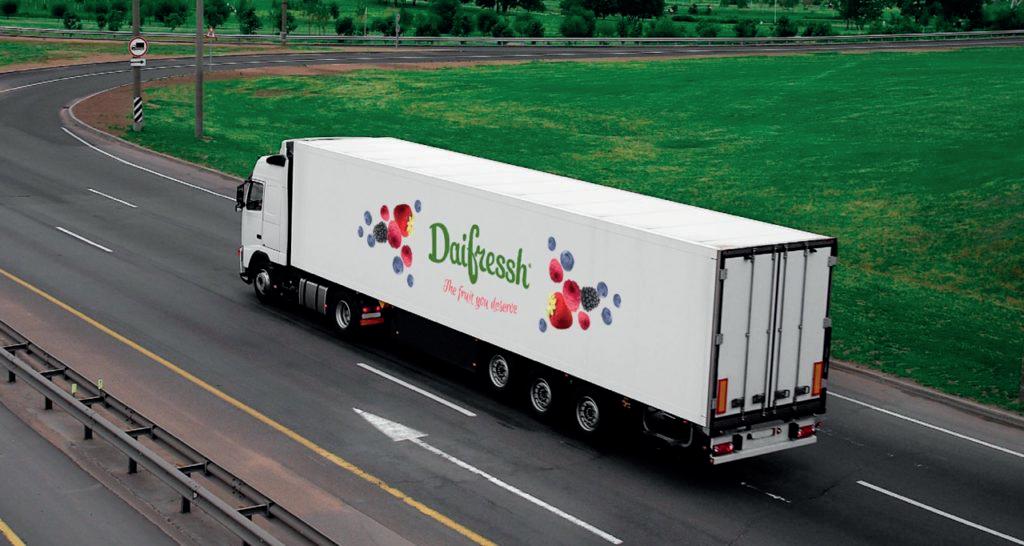
The Dutch organic company is introducing Fairtrade certification for its Kenyan avocados, as it looks to help growers build economic and ecological resilience.
by Tom JoyceFrom the summer of 2024, all Eosta’s avocados from Kenya will be Fairtradecertified, according to the Dutch organic supplier.
“Eosta’s organic avocado is unique when it comes to quality and sustainability,” the company stated. “In a challenging time when companies are taking steps to report on climate and water, we are
The company described this as a “huge step” for packhouse workers who are mostly women and mothers. “They are now moving from survival to a more dignified life, including a good education for their children,” Eosta stated.
Anthony Ngugi of Mavuno Organics Kenya commented: “We are full of many stories about how our workers’ lives and their families are been transformed by the Living Wage premiums courtesy of Eosta. It is one of a kind, an echo to sustainable efforts. Marvellous!”
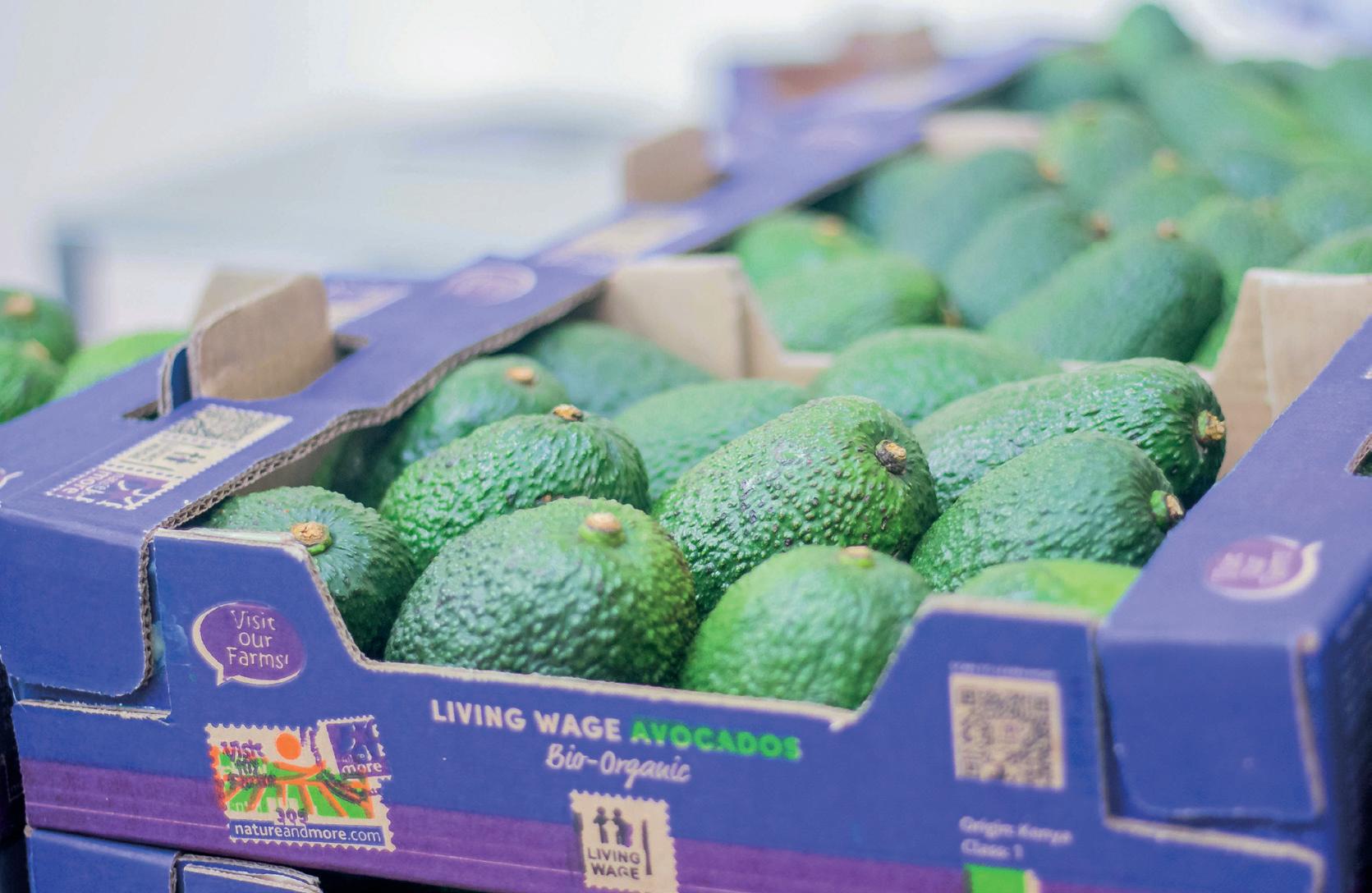
taking an extra step to offer our organic avocado also in a socially fair way.”
Four years ago, Eosta introduced living wages for its packhouse workers, with enough raised to guarantee a 40 per cent increase in the coming years, the group said, virtually closing the gap to the Living Wage benchmark.
Fairtrade certification will soon be added, according to Eosta. “Last year we worked hard to train and organise growers in the Muranga region in smallholder groups,” it revealed. “They will consider how to spend the premium obtained from the sale of Fairtrade avocado. This creates extra cohesion within the community and contributes to the organisational capacity of the smallholders.
“Our organically certified avocados are grown in Kenya by smallholders, the average area per farm is
one hectare. The cropping system is mixed. Various crops like coffee, banana, pepper, pulses etc are grown interchangeably. There is also some livestock farming, mostly a cow and some goats for milk and, of course, their dung. Native trees provide shade for the coffee. So there is a natural variation that provides an ecologically as well as financially resilient business model for the growers.”
According to Gert-Jan Lieffering, sourcing manager at Eosta, Kenyan avocados score high on the sustainability scale. “The product scores well on all fronts of the sustainability domain,” he confirmed. “Irrigation is not necessary, as two rainy seasons ensure a sufficient natural supply of water. This means that these avocados have a water footprint of zero. Quite extraordinary for a fruit that is often framed as a super water guzzler. The huge natural mulch layer full of organic matter ensures high water retention capacity.
“CO2 emissions are also low. No fertiliser is used, there is no mechanisation and no pump for water, so no fossil fuel is needed on the farms. The huge variety of crops and plants without the use of pesticides ensures biodiversity above and below ground. Birds, insects and microbiology have complete freedom.”
ABOVE—Eosta’s Kenyan avocados are now both organic and Fairtrade

The growing impact of climate change and soaring production costs mean urgent action to address unsustainable banana prices is essential, according to Fairtrade Foundation.
by Tom JoyceThe Fairtrade Foundation has issued a stark warning on the grave consequences of climate change for global banana production, calling for urgent action to deliver fair prices for producers.
“The consequences of climate change for banana production are very real,” said Anna Pierides, the Foundation’s responsible business senior manager for bananas, during this week’s World Banana Forum in Rome. “Farmers are battling
daily with unpredictable weather patterns, scorching sun, floods, hurricanes, and increased cases of plant diseases. All these are hitting producers hard.”
On top of that, she said, soaring production costs for fertiliser, pallets, plastic packaging and labour were bringing additional pressure.
“Without fair prices, banana farmers simply cannot make ends meet,” she concluded. “If banana producers are unable to cover their costs, they are unable to stay in business.”
She said that Fairtrade was committed to raising incomes and
living standards for banana producers.
“Buying Fairtrade bananas means that producers are guaranteed a Minimum Price (FTMP), which acts as a safety net against the unpredictable market, aiming to ensure farmers are paid a price that covers their average costs of production,” she explained.
Pierides said the UK, which averages imports of more than 1m tonnes of bananas a year and is one of the highest per capita consumers of the fruit in Europe, was in a position to drive change, but unsustainably low supermarket prices were devaluing the category.
“Fairtrade believes the UK banana industry has a unique opportunity to drive change within the sector at scale,” she said, “ensuring a brighter future for banana farmers and workers, and fairer, sustainable supply chains.”














This is how we live sustainability.
Our goal is to offer the best-tasting and freshest fruits and vegetables. Sustainable actions and thinking are at the core of our philosophy, “Taste in harmony with people and nature”. Therefore, for many years, we have been supporting local communities in our cultivation regions, because only when they thrive can delicious things flourish.









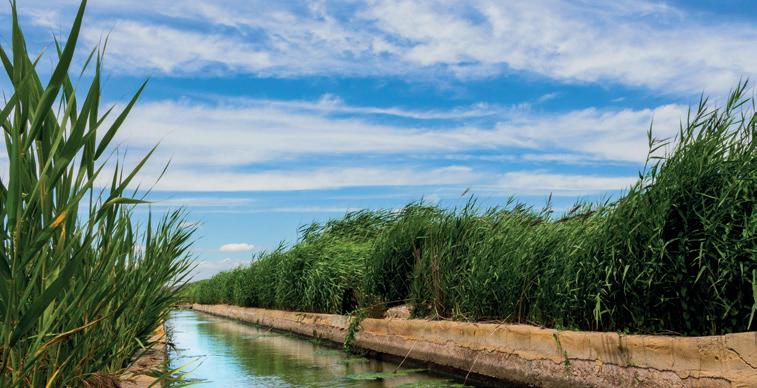

















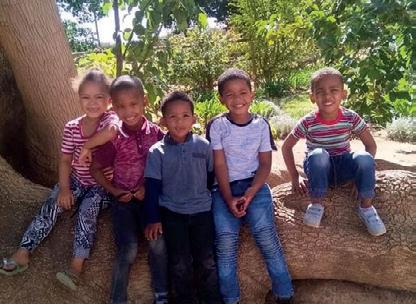
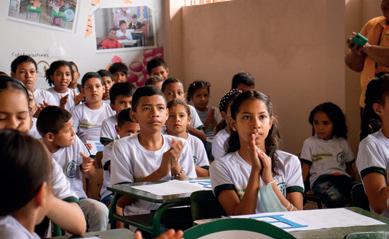












For example, in Valencia, we provide food for over 500 people daily. In Costa Rica, Ecuador, Spain and Tunisia, we offer training to improve the educational opportunities of our employees. We conserve water, control pests and reduce pesticide use. And in our “El Hamma” sun oasis, we keep the carbon footprint small by harnessing the heat from a natural source. The harmony between people and nature is indispensable to us. Always.
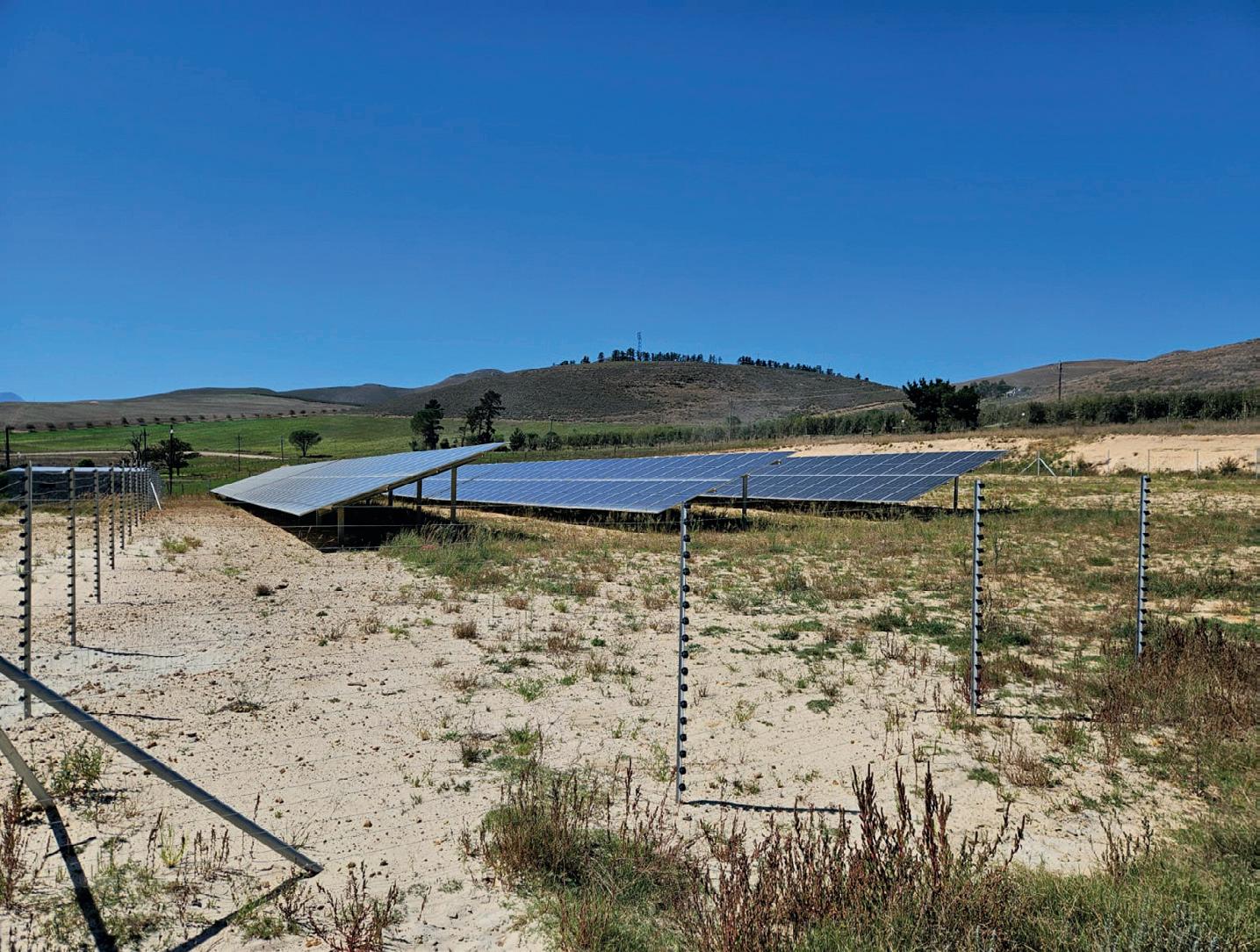
Several producers who supply leading exporter Tru-Cape say their irrigation systems now depend far less on the country’s consistently unreliable national electricity network.
by Mike KnowlesApple and pear growers in South Africa are making significant investments in solar energy systems as the country’s electricity supply continues to falter.
For over 15 years, South African producers have contended with frequent rolling blackouts known locally as load shedding. Designed to protect a national network that cannot meet demand, the outages cut electricity supply from homes and businesses in different parts of the country at different times, typically for periods of up to four hours.
For orchards and packhouses, load shedding means potentially devastating interruptions. That’s
why so many of them have invested in their own private energy supply, using generators, lithium batteries, and solar arrays.
Many of the producers that supply Tru-Cape, one of South Africa’s biggest topfruit exporters, have made significant investments in alternative energy sources. In doing so, they say they have not only secured their production and reduced their costs, but also reduced their environmental footprint.
The Van Niekerk Boerdery near Caledon, for example, says it has reduced its carbon dioxide emissions by over 32 tonnes and planted the equivalent of 45 trees since it added solar panels in October 2023.
“Although it is born out of necessity, every farmer wants to care for the environment,” says Wimpie van Niekerk, who oversees the apple and pear orchards on his family’s farm. “Solar energy is available. It benefits me, and it benefits the environment, making it a winwin situation.”
The greatest advantage of solar energy, he says,
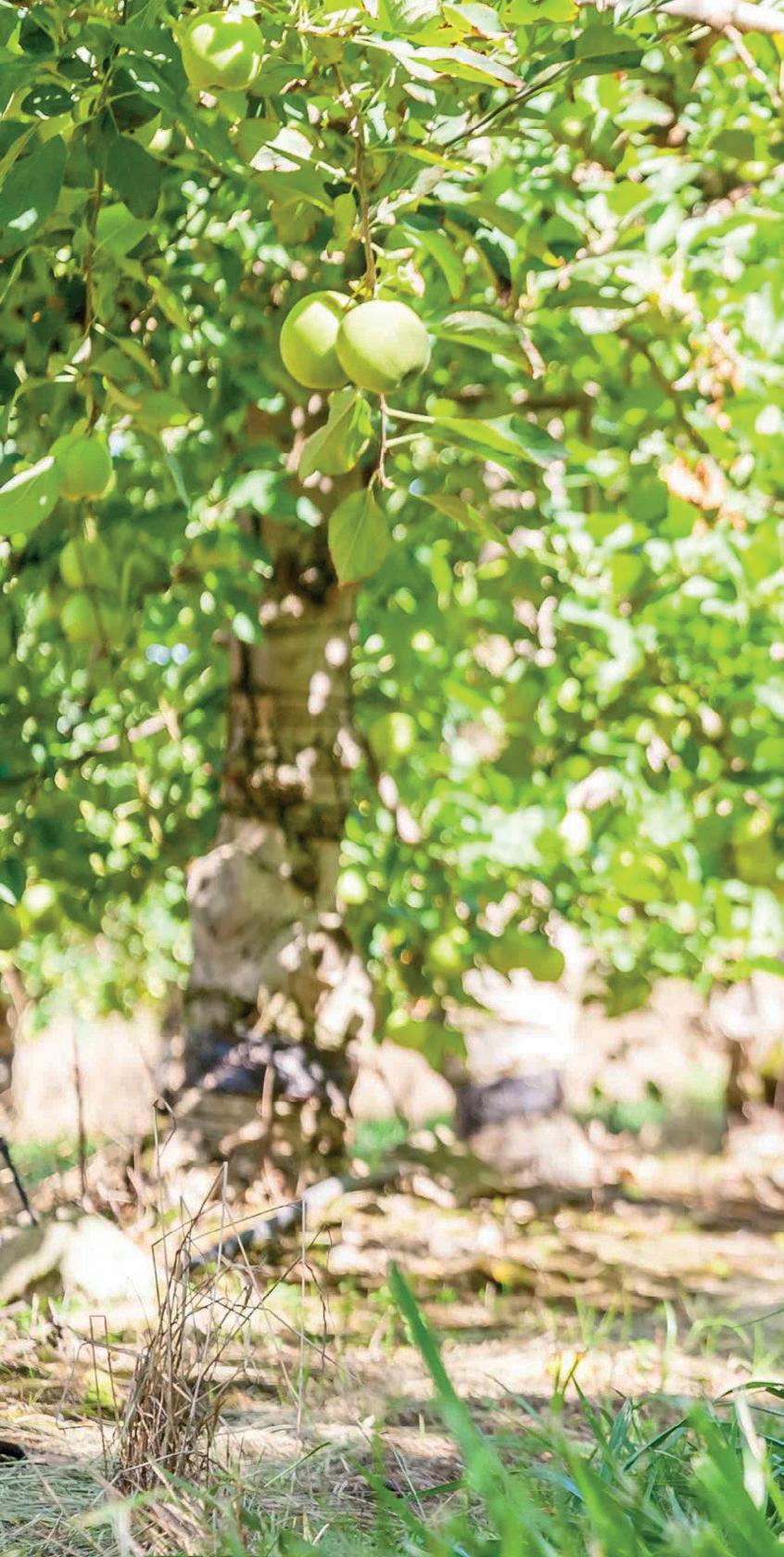
is the independence it provides. Wimpie’s cousin Niekie, who is credited as the brains behind the development, has apparently ensured the new system is part of a cost-efficient energy strategy.
“In the past, [state energy company] Eskom used to dictate when and if we could farm, but thanks to alternative energy sources, we can now farm the way we should,” Van Niekerk adds.
One of the farm’s biggest energy requirements comes from its irrigation pipelines and pumps. These have been enlarged and equipped with variable speed drive technology, which means larger orchard areas can now be irrigated in shorter periods.
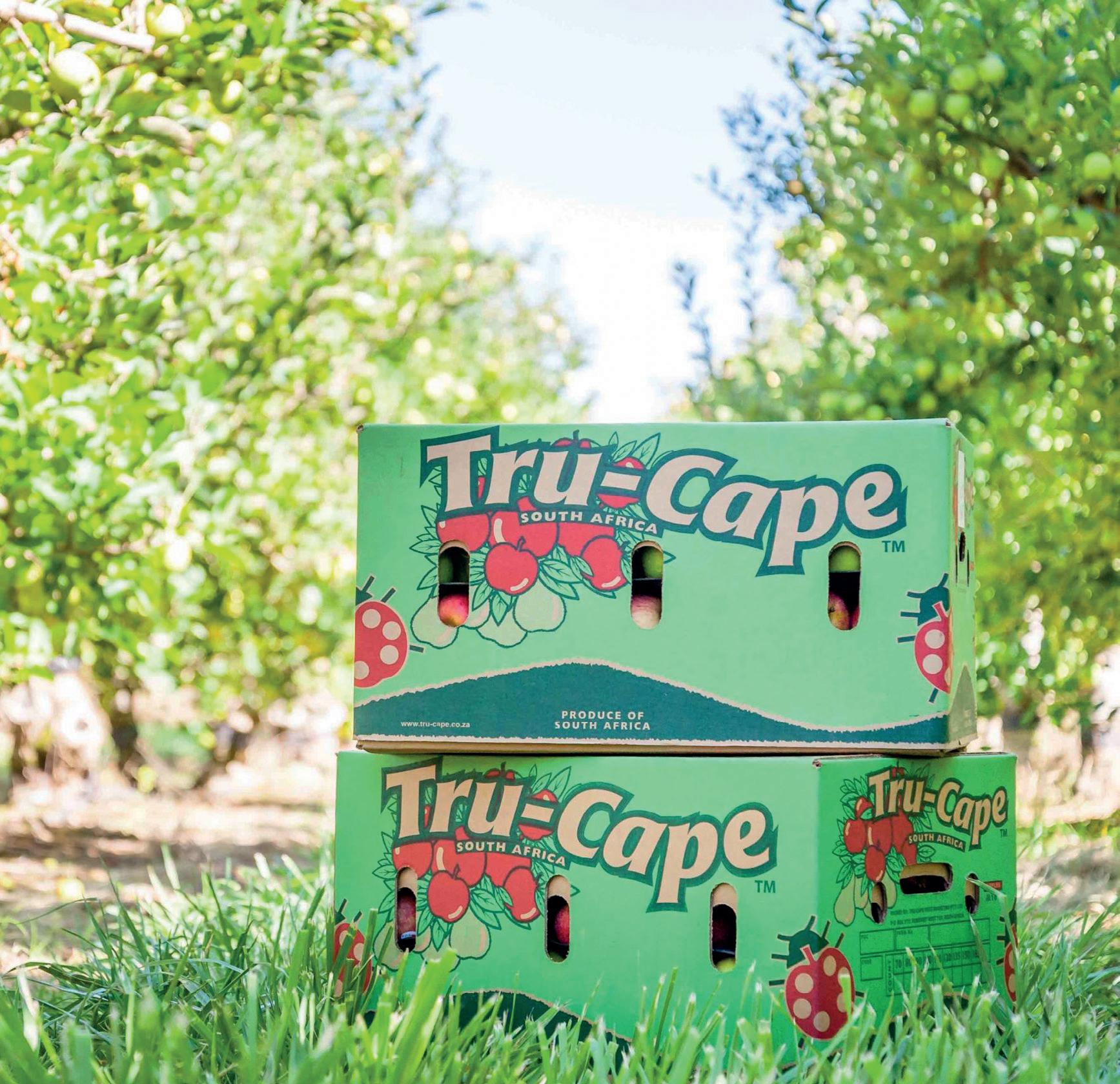
ABOVE LEFT—New solar panels at Van Niekerk Boerdery’s Spes Bona farm
ABOVE—Tru-Cape is one of South Africa’s bestknown apple export brands
The four Eskom power points on the farm have been consolidated into one larger point, which results in a further saving.
And the solar panels themselves can generate 100 kW of power and are connected to the generator, which means it can run on solar when the sun is shining.
“We are still grid-tied, but approximately a third of our energy consumption now comes from the sun,” says Van Niekerk. “Our system is much more efficient; resulting in significant cost savings, and we don’t have to worry about the availability of electricity and irrigation water.”
Rossouw Cillié, from Laastedrif Agri near Ceres, also has a strong passion for the environment and sustainable farming. Like the Van Niekerk Boerdery, his farm
is building so-called balancing dams at elevated locations, which means water for irrigation can be distributed using gravity alone.
It has also recently pioneered the recycling of effluent through a natural wetland filtration process to water its crops.
Last year, it upgraded its alternative energy system and now generates approximately 300 kW of solar energy for its packhouses, or around a third of its total usage. With a backup generator no longer using so much diesel, this has resulted in CO2 emissions falling by over 380 tonnes since January 2023.
In the Ceres region, Nico Verhoef from Witzenberg Properties believes all producers should make
“Our system is much more efficient. We don’t have to worry about the availability of electricity and irrigation water”
it their priority to protect the environment.
The company has one central distribution point from which it receives electricity to irrigate approximately 600ha on its two farms, Dennekruin and Die Eike. But it remains a challenge to complete irrigation cycles during load-shedding.
Luckily, South Africa has a lot of scope to generate solar energy. Even though sunshine hours in the Western Cape vary significantly between summer and winter, they apparently align well with Witzenberg’s irrigation requirements.
“It offered us the opportunity to set up a single solar system of about 1.4 MW,” explains Verhoef.
“At certain times on sunny days – usually between 12pm and 3pm – all our energy comes from the sun. However, when needed, we supplement it with Eskom power or diesel generators.”
The cost savings are of course welcome, but Verhoef says he is also excited about reducing carbon emissions.
“Given the fact that South Africa primarily relies on coal and now also on diesel for power generation, solar energy can have a significant impact. There is a push towards environmental audits, and it is reassuring to know that we are ahead of the curve.”
The Sustainability Initiative of South Africa has become a household name in the South African and international fresh produce sector and plays a crucial role in the pursuit of sustainability.
by Fred MeintjesIn an era of climate change, contributing to a greener planet and supporting South African producers in creating sustainable farming practices are key driving forces for Siza, the Sustainability Initiative of South Africa. Over time, Siza has grown to become a crucial part of the fruit-growing community both in South Africa and internationally, grappling with sustainability issues within the global fresh produce trade.
In addition to comprehensive social and environmental standards, Siza’s initiatives include capacity building and guidance on renewable energy integration, effective waste management in agriculture, enhanced soil management, and bringing environmental practices in line with what is practical for agriculture.
“In the global effort to combat climate change, the agricultural sector plays a significant role,” says Retha Louw, Siza’s CEO. “Farms have a unique opportunity to contribute significantly to carbon reduction by implementing sustainable practices. Reducing carbon emissions at the farm level is not only imperative for environmental sustainability but also enhances farm productivity and economic resilience.”
Siza has structured its activities in such a way that it can reach its participants daily through personal contact, workshops and farm visits. Siza is also active on various digital platforms and social media, giving members around-the-clock access to information and resources on the MySiza platform.
The South African fresh produce industry has come a long way since earlier retail demand for product and systems audits introduced them to a complex new world. Siza says that as far as audits are concerned; we must compare apples to apples.
“A social audit, environmental audit, and food
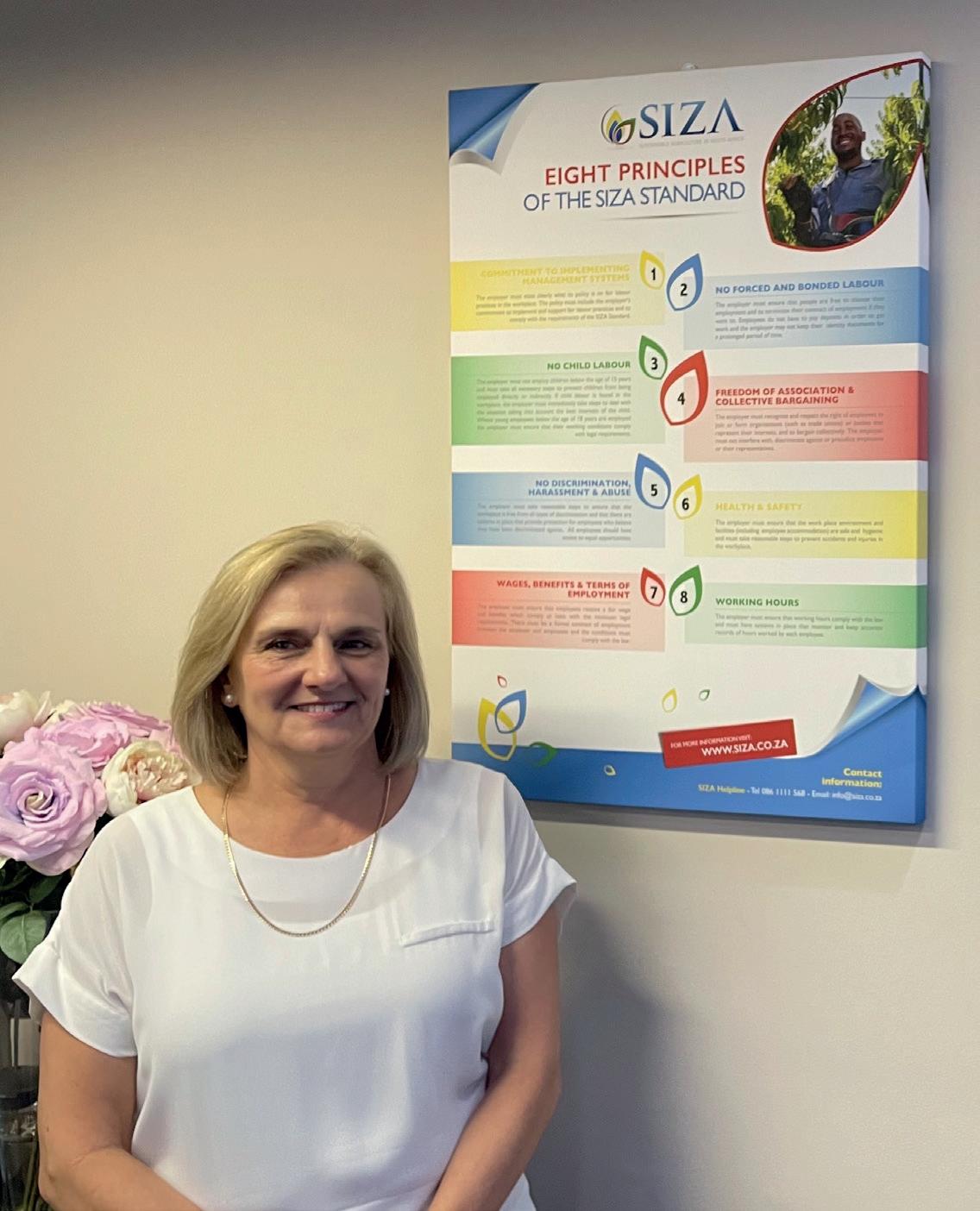
safety audit aren’t the same –one is an apple, the other a plum and the third (a social audit) perhaps a lemon,” says Louw. “These audits are about examining different aspects and although the questions perhaps seem like duplication, especially where health and safety is concerned, one measures the impact on the people, one the environment, and the other product safety. With Siza, producers enjoy extended audit validity periods, allowing them to focus on enhancing practices rather than perpetually preparing for annual audits.”
According to Louw, producers with fewer findings during audits benefit from longer validity periods, incentivising sustainable and efficient agricultural practices. By partnering with global programmes such as GlobalGAP, Leaf Marque and several others to streamline audits, Siza assists not only the supplier but the industry as well in reducing time and costs spent on farm assessments.
These initiatives also bring peace of mind to overseas trading partners, who care that the right systems underpin the products they receive. “You do not know where you are on these important issues if you do not have access to data and can compare your business practices within the fresh growing world,” Louw notes.
The Siza Digital Recordkeeping Programme aims to revolutionise record management for companies of all sizes, from small single-site farms to multinationals. It is integrated into the MySiza platform and accessible to all enterprises, both locally and globally. Siza’s Digital Recordkeeping Programme and the transparency it offers throughout the supply chain can help companies become global market suppliers, says Rouw.
ABOVE—Retha Louw, CEO at the Sustainability Initiative of South Africa






Partners in Agri Land Solutions is a relatively new initiative steering land reform in South Africa, and is making waves by creating new opportunities for people all over the country.
by Fred MeintjesSince 2014, Partners in Agri Land Solutions (Pals) has been proactively solving South Africa’s land reform challenges in a practical, merit-based and honest manner that supports economic growth, job creation, food security, custodianship and social harmony.
Pals is a private sector initiative in which black and white farmers cooperate with all spheres of government and communities. It started in the fruit region of Witzenberg in the Western Cape but has now expanded to the Free State and Mpumalanga and with listed Pals projects throughout South Africa.
“The simpler things are, the more ingenious they are,” says Gerrrit van Vuuren, Pals Strategic Advisor. “In essence, the framework of Pals’ projects adheres to this principle. Imagine a tripod. Because it’s standing on three legs, it will always stand sturdy, irrespective of the surface.”
He says the Pals framework is the same. In a farming context, there is the established commercial farmer, the new-generation farmer, and the third leg is the farming company. “It is the mentor, the learner and the business structure,” he explains.
Pals also works closely with the deciduous fruit industry body Hortgro and is supported by the Jobs Fund, a job creation initiative by the National Treasury. In 2022, with Nedbank coming on board, sustainable inclusive agricultural development expanded to all regions of South Africa.
The framework addresses key critical success factors for a sustainable enterprise, including access to land, capital to acquire land and inputs, markets to sell produce to, acquisition of inputs and services, dispute resolution mechanisms, an exit strategy and a comprehensive supportive environment. “It facilitates, enables, coordinates and monitors all aspects pertaining to training, mentorship and the sustainability of new enterprises, making a Pals centre a “one-stop-shop,” says van Vuuren.
Due to many unsuccessful land reform initiatives in South Africa since 1994, Pals represents a radical departure from these models and is based on sound business and legal principles, mentorship and training
BELOW—Inus Oosthuizen and Johnny Karolus
BOTTOM—The Pals team visits the minister of agriculture in Parliament OPPOSITE PAGE— Peter Wolfaardt and Raymond Koopstad
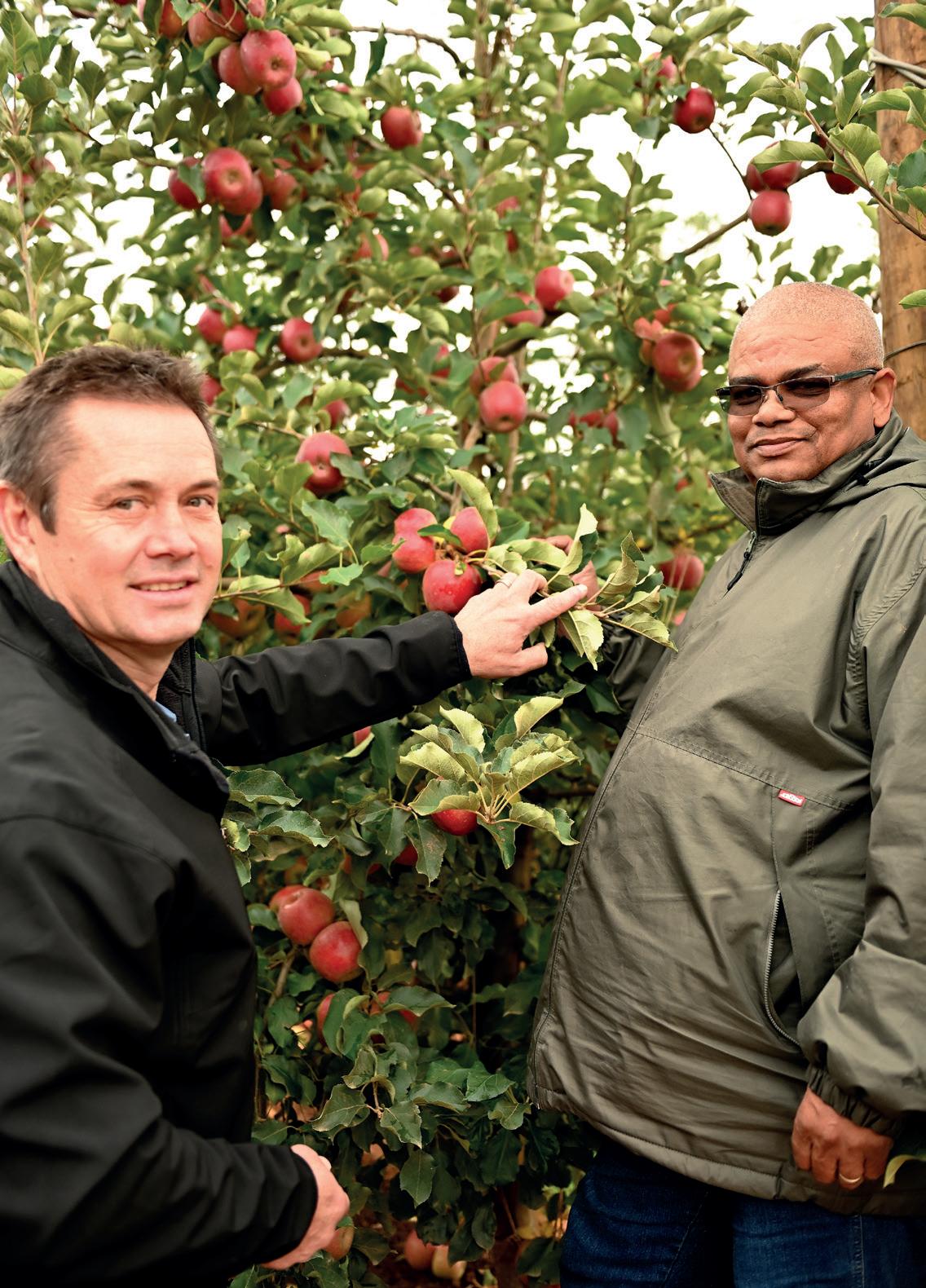
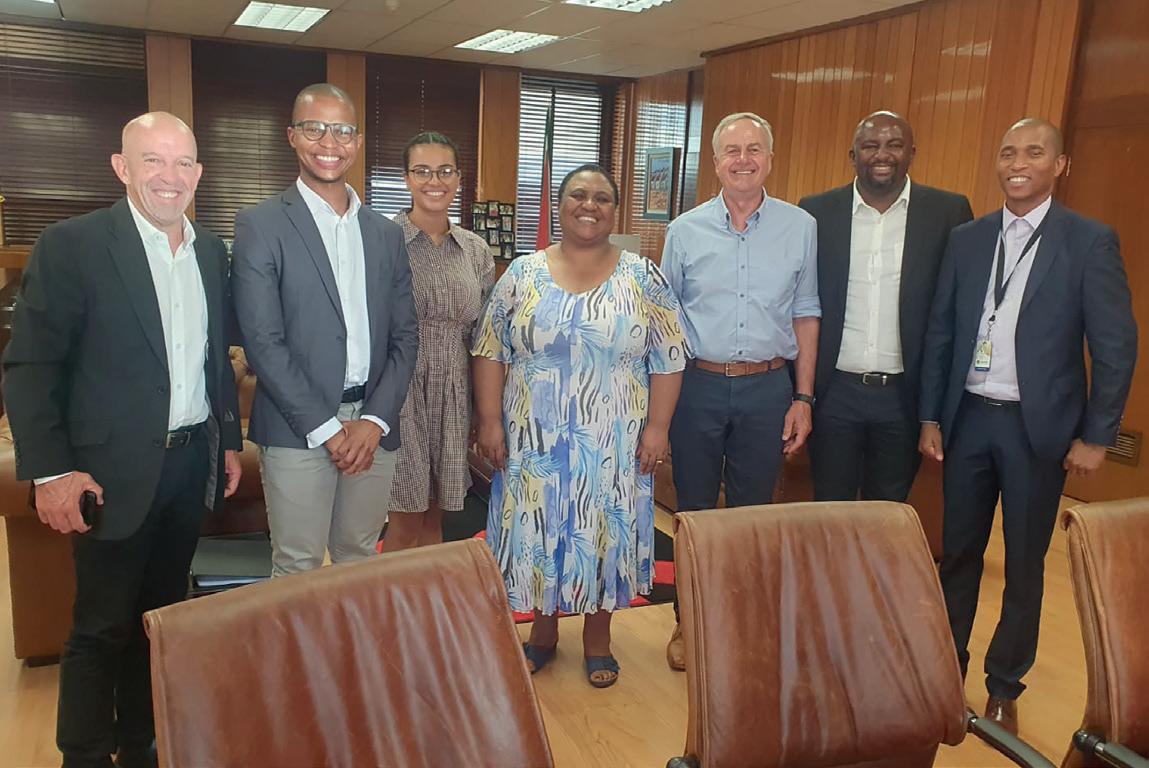

of emerging farmers. “The unique Pals framework ensures that issues of sustainability, mistrust, unequal relationships and succession planning are addressed,” notes van Vuuren.
In the words of agricultural
industry leader Pieter du Toit of the Dutoit Group, a South African Pals board member and one of the founders: “We realised that to make progress we needed established growers, new era producers, agricultural industry organisations
and the government to work together.”
Pals Regional Centres, led by their respective boards, develop strategies with defined targets and required resources. Regional programmes are developed in line with the Pals framework while remaining independent entities.
“Pals, as a non-profit company, does not only function as a legal entity, but also a living entity through the members of the organisation. It has its own energy and sense of direction, calling to manifest something in the world, creative potential and collective intelligence,” says van Vuuren.
According to national spokesperson Lennox Plaatjies, Pals is stepping out of the “waiting for others” mode, into “creating our desired future every day”. Members take pro-active steps to improve local conditions and enable economic, social and environmental sustainability in collaboration with the relevant stakeholders. “This means Pals is solution-driven to create sustainable enterprises led by dedicated farmers and value chain participants.”
Pals has now established momentum, continuously producing new success stories. “The table is set,” says van Vuuren. “Pals is ready to talk to more investment partners who can help to accelerate the process.”
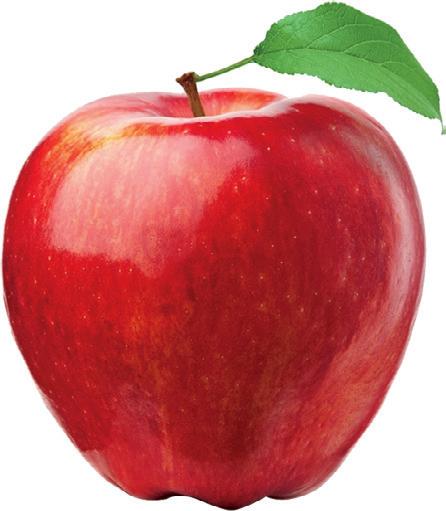
Nothing to hide does not refer to diseases like scab, collar rot, powdery mildew, sooty blotch, or fly speck No, this apple is a healthy apple
It’s health is based on integrity, honesty, respect, trust, transparency, commitment and accountability This apple is a product of

land reform and development through the cooperation and partnership formation between a new-generation and an established commercial farmer
Yes, this apple has nothing to hide Because it is a PALS apple And Partners in Agri Land Solutions has nothing to hide
To help PALS to help more new-generation farmers, get your teeth into this: GROWING TOGETHER
www sapals co za admin@sapals co za +27 23 316 1191

The cooperative has helped its growers to embark on a series of initiatives in recent years, as it looks to establish smarter, more efficient, and more sustainable production.
by Mike KnowlesRobots, insects, solar panels, and clever ways to recycle energy. Dutch supplier Growers United’s plan to achieve complete sustainability involves a compelling mixture of innovative strategies, all designed to provide millions of European consumers with the best possible tomatoes, cucumbers, aubergines and peppers every week.
With its partner growers, the group aims to create a business model that is “100 per cent circular, fair and healthy,” according to its CEO Kees de Kat. “We will do this by, for example, applying innovations, dealing smartly with residual heat, and better monitoring the biological event balance in the greenhouse.”
Those ambitions might seem like dots on a future horizon, but for Growers United they involve direct actions in the present. And as De Kat explains, those undertakings are rooted in decisions made back in 2019, when the cooperative set out its sustainability roadmap.
“We are constantly measuring where we stand, for example with the help of the HortiFootPrint,” he explains. “A standardised calculation method to measure our efforts objectively and express them clearly and unambigously in a score.”
New UV robots that can prevent mildew are a prime example. The fungal disease is a particular
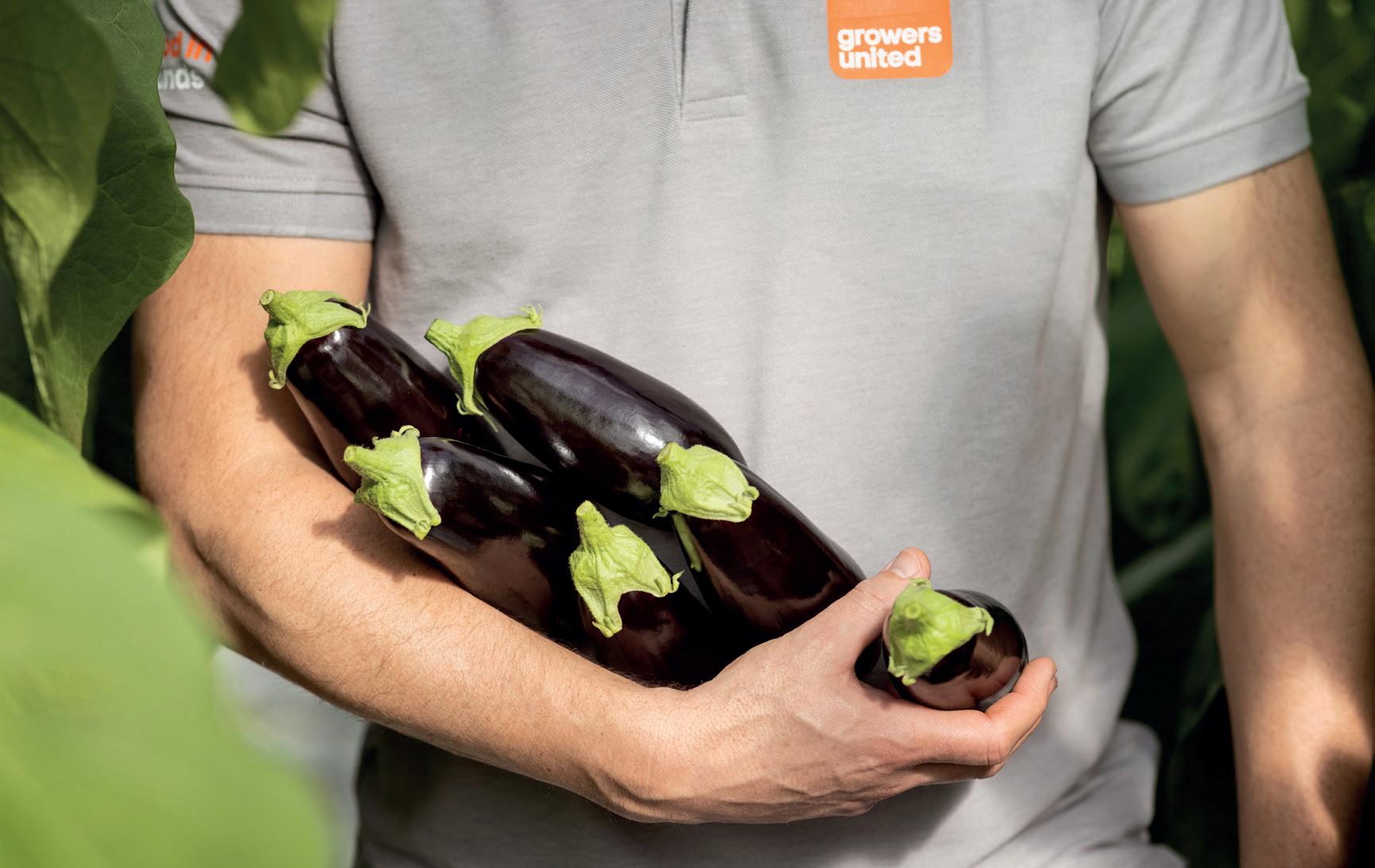
ABOVE—Some growers have made significant savings on their energy spending
challenge for cucumbers grown in greenhouses, where temperatures and humidity levels fluctuate.
“Our growers like to see their crop looking healthy. But during the season, that plant health varies quite a bit,” De Kat notes. “The use of UV lighting has been proven effective in reducing mildew infection. Reason enough for three Growers United growers to recently invest in a robot that reduces powdery mildew infections. For us as a cooperative, this is the next step in more sustainable crop protection.”
Diseases and pests are also a challenge for the cooperative’s tomato growers, but some have found ways to be greener here too.
One of them, Marcel van den Berg of The Valley in De Lier, recently ran a trial in cooperation with Koppert Biological Systems, Van
Iperen and Bayer to remove all chemicals but maintain maintain the right biological balance in his greenhouse.
Thanks to that trial, he now uses natural enemies against harmful insects, in combination with green, natural pesticides.
Elsewhere, Growers United’s members have managed to make significant savings on energy supply. In Westdorpe, 30km southeast of Vlissingen, Van Duijn De Jong Aubergines and tomato grower Van Adrichem use residual heat and CO2 from a nearby fertiliser plant.
This apparently covers 90 per cent of their production’s energy requirements. “For heat, that equates to 55 million cubic metres of natural gas,” says De Kat. “An annual saving as large as what 35,000 households use.”
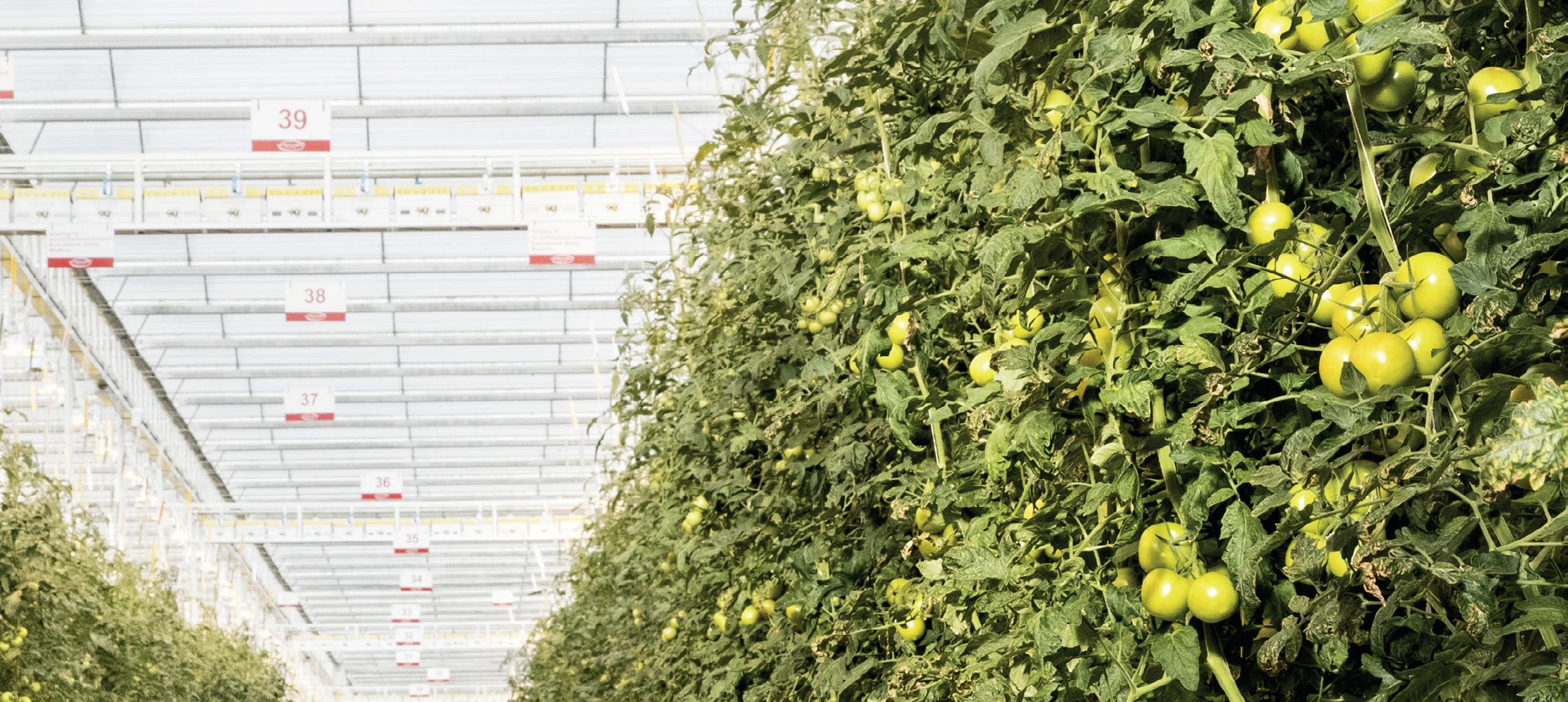


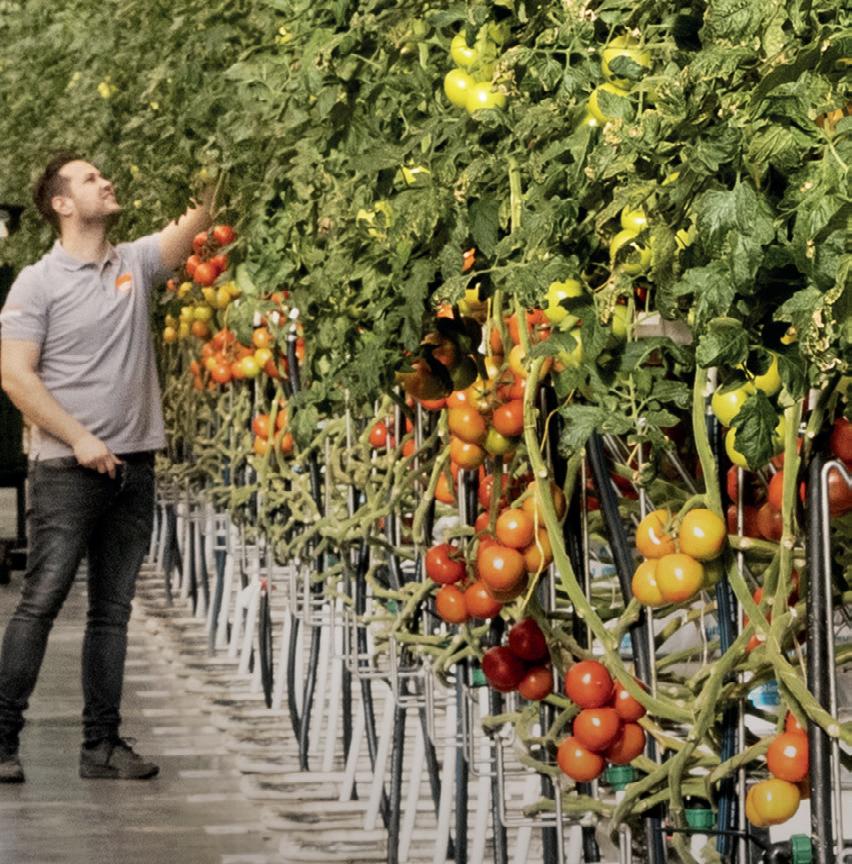
Growers United is a cooperative of more than 40 growers of tomatoes, (sweet) peppers, cucumbers and aubergines. We all work together to create a sustainable future. And not just in our packaging centre. We also monitor how much energy, water, and resources our growers use and how much waste they produce. What’s more, we are committed to reducing the carbon footprint at each of our cultivation sites. This aligns with our ambition to be 100% circular, fair and healthy by 2040. Good food for everyone.
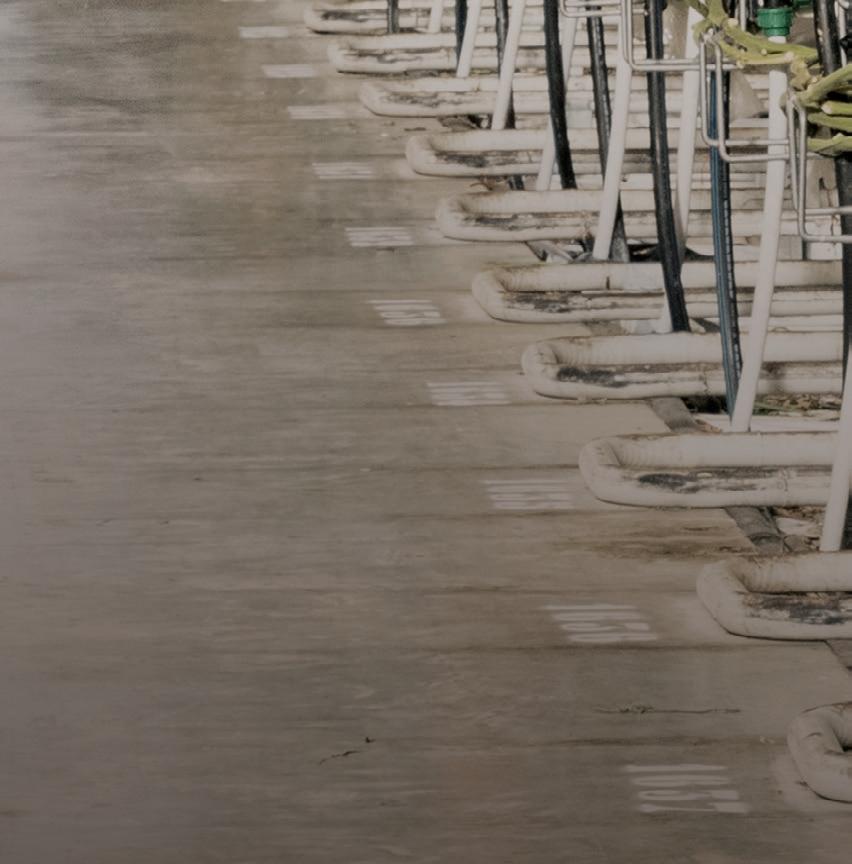

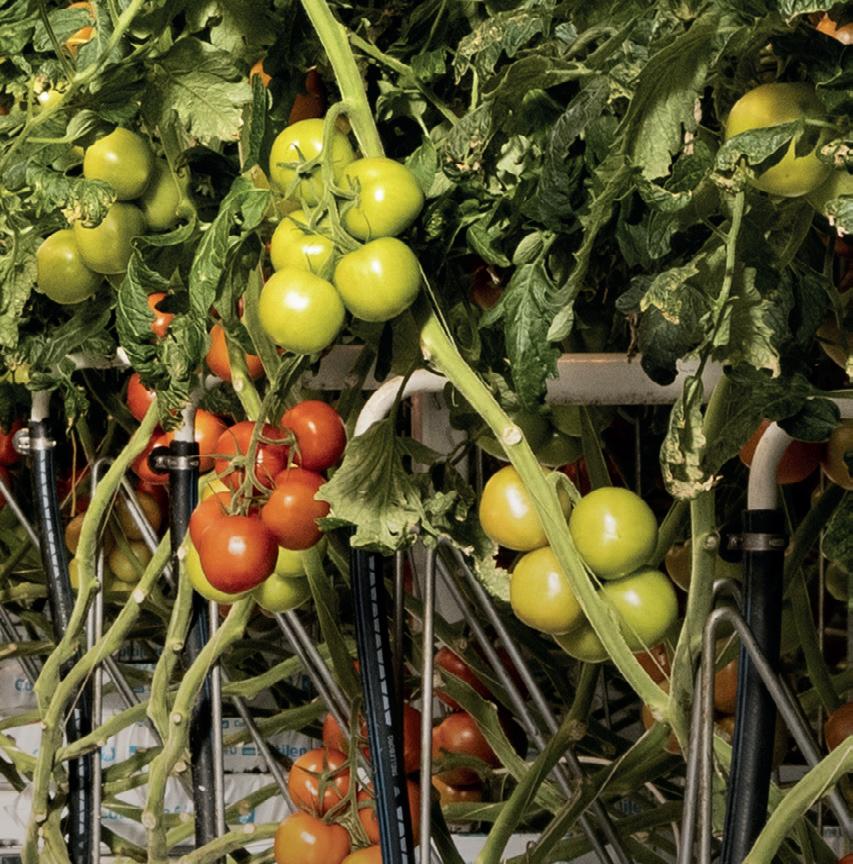
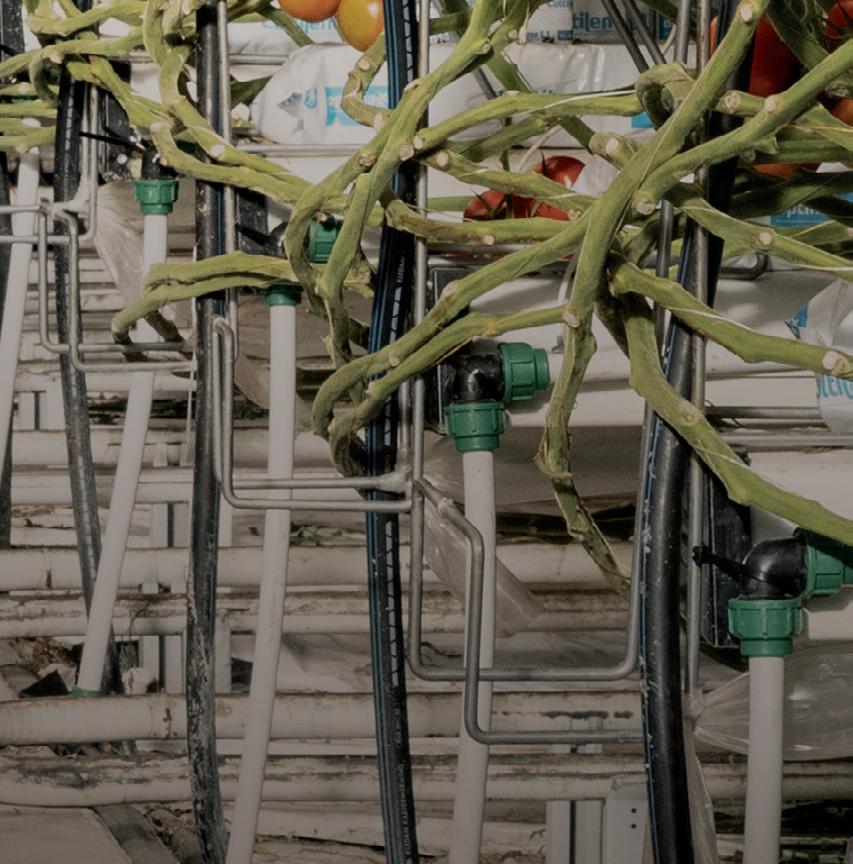
How we approach this


Suterra’s mating disruption solutions are 100 per cent natural and leave zero residue.
by Maura MaxwellBELOW—Suterra was the first company to introduce a mating disruption solution for complex pests like scales and mealybugs
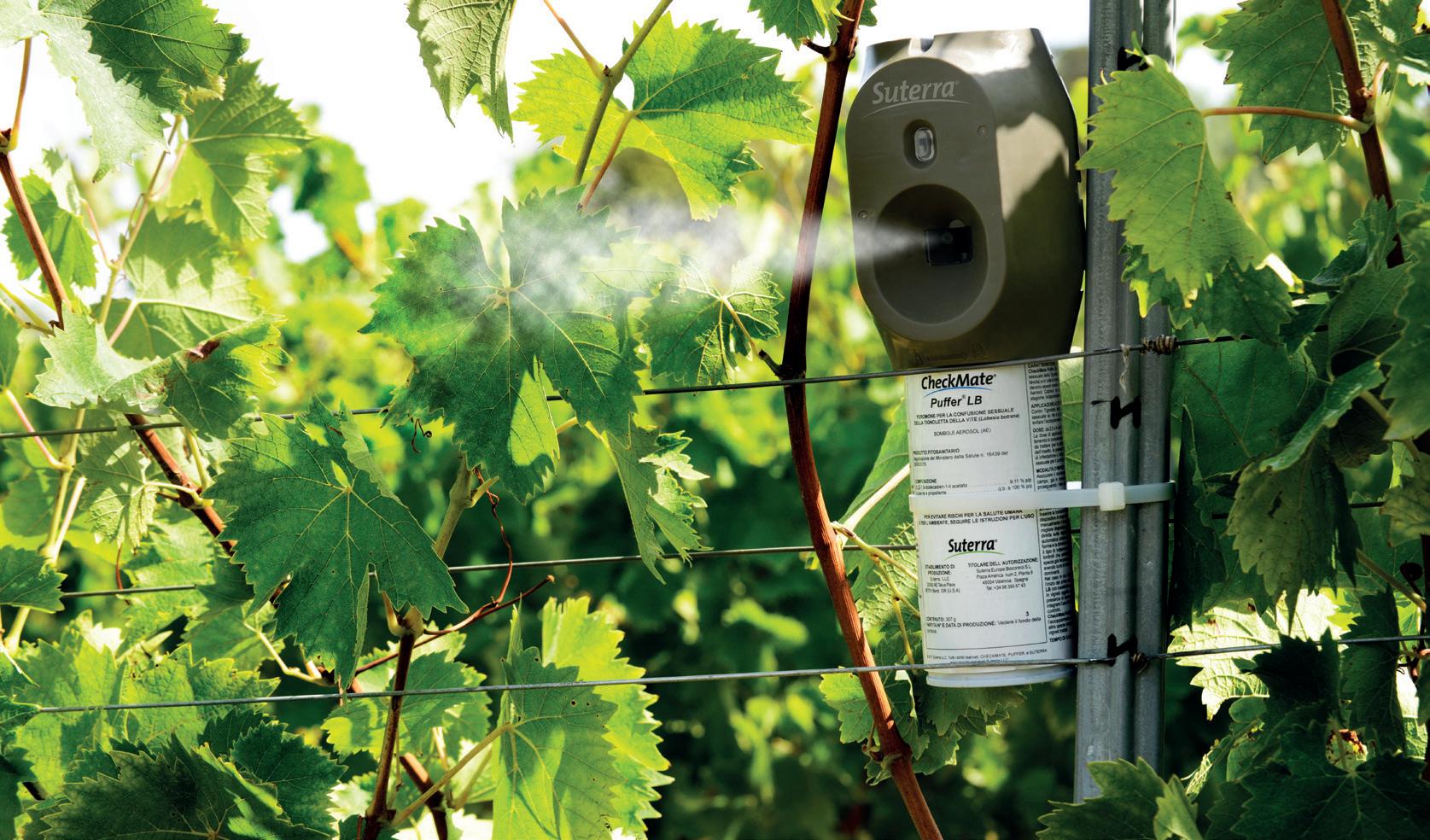
Tougher regulations on phytosanitary products and growing consumer demand for greener products are putting an increasingly onerous burden on producers. Oregon-based Suterra, a company that has been supplying biological pest control for more than 40 years, says this has sparked a growing interest in its mating disruption solutions.
As part of The Wonderful Company, its products cover pests that commonly occur within the company’s product portfolio – including pistachio and almond pests like navel orangeworm, citrus pests such as California red scale and various fruit flies, and wine grape pests European grapevine moth Lobesia botrana and vine mealybug – as well as other crops including apples, pears, stonefruit, berries, and vegetables.
“Our products are appealing to growers and exporters because they leave zero residue. Most of them are also exempt from Maximum Residue Limits (MRLs) because they use naturally occurring compounds such as pheromones,” business development manager Natalia Gamarra-Cockle tells Fresh Focus Sustainability “These ingredients have a non-toxic mode of action, leave no harmful residues on food, and do not leach into soil or groundwater the way some conventional pesticides do.”
Furthermore, since many Suterra products are installed once per season in specialised aerosol emitters, the reduction in the spray equipment operations saves on fuel and CO2 emissions.
While mating disruption has existed for many decades for relatively simple pheromone molecules like those emitted by moth pests, Suterra was the first company to introduce a mating disruption solution for more complex pests like scales and mealybugs. It also pioneered sustainable, effective biocontrol solutions for California red scale and vine mealybug, products that are amongst its most demanded even today.
The company also supplies the most widely used brand of aerosol mating disruption in the world: the Puffer. This patented technology, first registered over 25 years ago,
delivers pest control in a way that helps minimise the use of plastic, eliminate residue, and cut carbon emissions.
The latest additions to Suterra’s global portfolio are BioMagnet Oro, BioMagnet Amber, and BioMagnet Ruby, three products built on its revolutionary BioMagnet platform.
As Gamarra-Cockle explains, “our latest evolution of insecticide is an innovative ‘attract and kill’ system designed with a unique formulation and a special application method that guarantees pest control throughout the field without spraying”.
She describes BioMagnet as “one of the most innovative and sustainable methods to protect crops against fly damage” as it’s placed in the field and effective for several months. The powerful attractant brings the fly to the device, contacting the insecticide coating upon landing. The fly ingests the insecticide through its natural grooming behaviour. “The effect is not immediate – some flies fall in the same place and others fly a few yards before dying. With no need to spray and far less insecticide, our new product line increases safety for workers and consumers alike,” she says.
In the four decades since the company was founded, GamarraCockle says biological pest control has become more widely used, adopted, and understood in both conventional and organic production, particularly in central Europe, Australia and Africa.
“In fact, our company’s own growth – and the many imitators that have come to market in the last decade – are proof that mating disruption is a growing practice within IPM,” she notes. “Suterra’s products fit perfectly into IPM practices. Since they are speciesspecific, they don’t harm beneficial insects like pollinators and predators.”
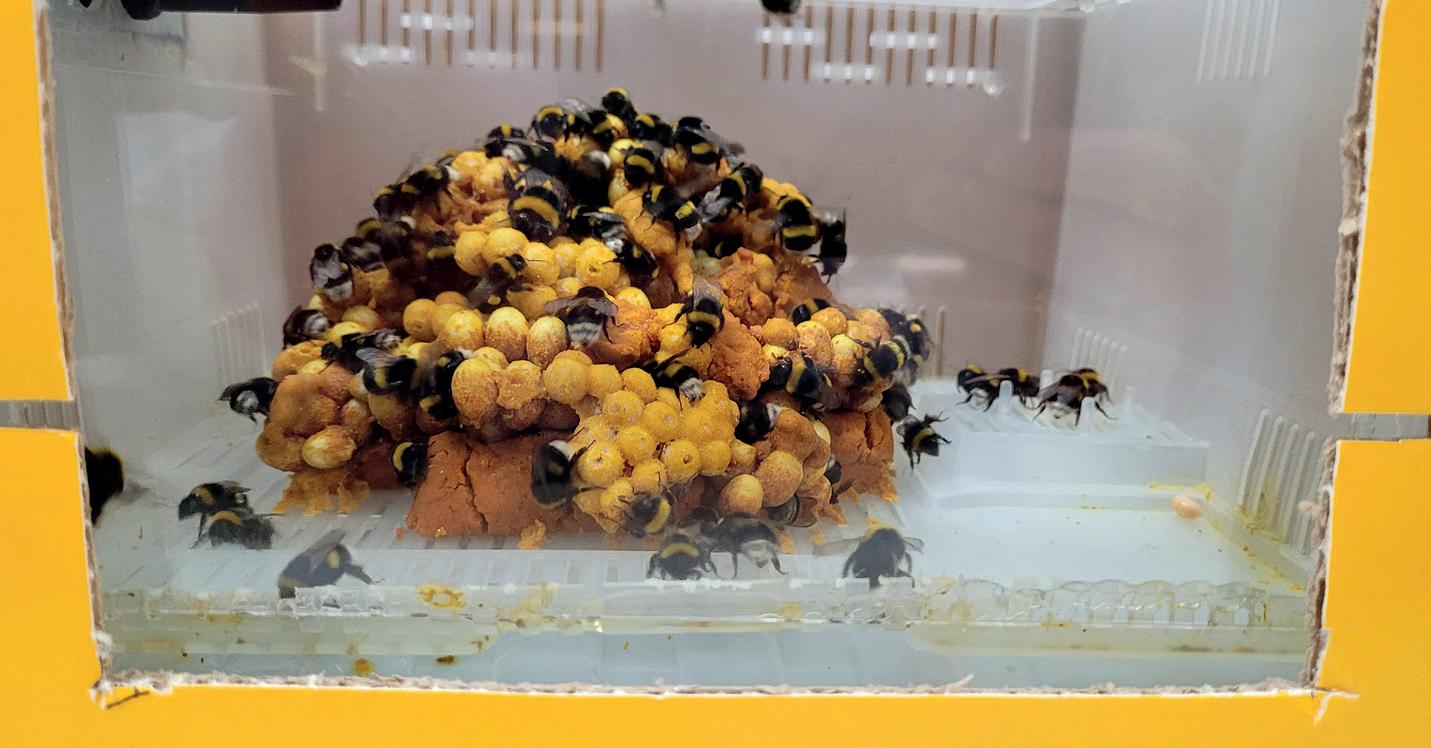
The Spanish company continues to produce bees and insects which it says can aid sustainable fruit and vegetable production in more than 40 different countries.
by Chris McCulloughWith intense pressure on the global agriculture industry to reduce its use of pesticides, greater attention is now placed on alternatives like organic pest control, especially in the fresh produce sector.
Based in one of Spain’s fruit and vegetable production heartlands, Agrobio is fast becoming a supplier not only of insects for pest control, but also bumblebees for pollination purposes. From its company headquarters in Almeria, Agrobio has pioneeed the production of bumblebee hives in Spain, which it says totally revolutionised the pollination of tomatoes in greenhouses there.
Today, the company exports bees and insects all over the world and runs subsidiaries in Turkey, Denmark, Morocco and France.
Founded in 1995, Agrobio carries out the entire production of bees in its own factory, recreating the
bumblebee’s life cycle in strictly controlled, seasonal environments.
The production system is a closed circle. All queens that begin the cycle are selected according to the highest health and quality standards.
According to Agrobio, it uses only natural nutrients to feed the bees. These include pollen, which is used to build the hive and provides proteins they need to grow; and nectar, which contains the sugar they use as a source of energy.
Every stage of the production process falls under strict quality control measures, to ensure the bees are in optimal conditions. Expert veterinarians select the best queens and hives at each stage of production.
Bees are then exported all year round in hives with 100 bees-plus inside, which are ready to pollinate the crops immediately.
Isabel Mendizabal, business coordinator at Agrobio, says the business of supplying bumblebees has become more challenging. “We produce over 700,000 hives per year and export to more than 40 countries,” she explains. “Today bumblebee numbers are suffering a lot with climate change, but they are very important to pollinate crops. It is vital we produce bees to keep numbers high.”
There are many pests that harm the growth of fruit and vegetables, including aphids, caterpillars, spider mites and thrips. However, there are also many new ones that develop each year. Agrobio produces a huge variety of beneficial insects that can naturally control the pests without harming the crop, reducing the use of chemical pesticides.
David Beltran, Agrobio’s production manager for mites, says: “We produce hundreds of varieties of mites and insects that can biologically control the pests in greenhouses and crops. Millions of mites are packaged inside sachets each week and are exported to growers all over the world.”
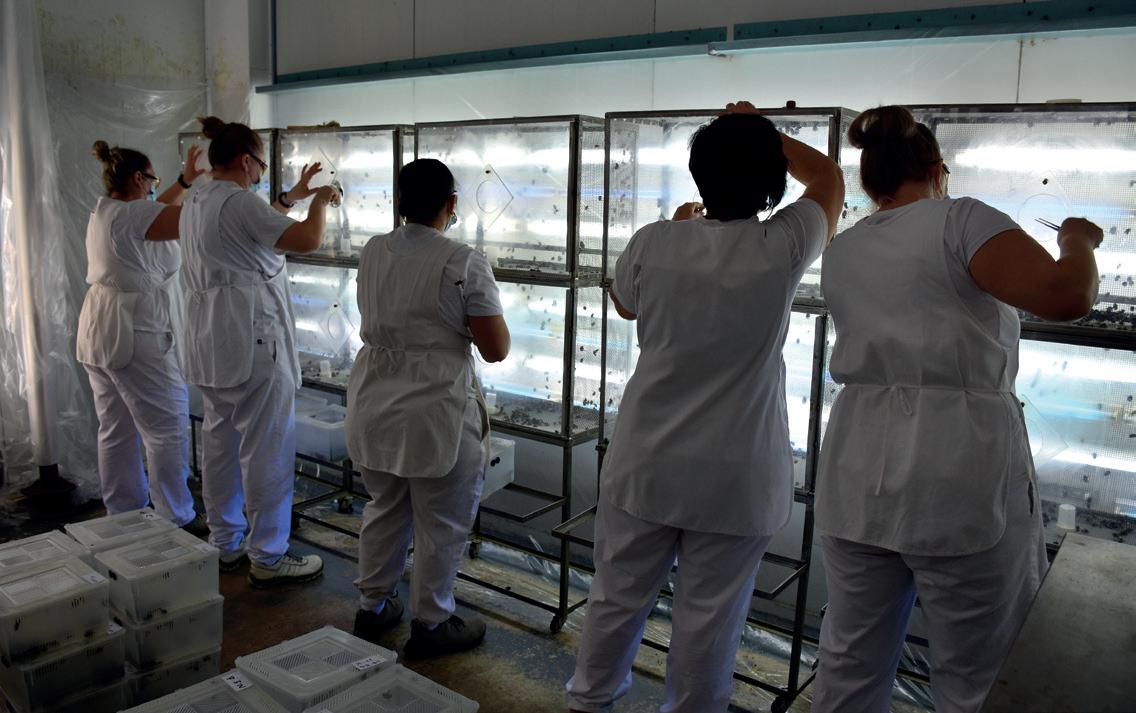
TOP—Agrobio uses only natural nutrients to feed its bee population
LEFT—Expert vets select queens and hives at each stage of production
The soil intelligence technology empowers farmers to make more informed and sustainable decisions, says Diego Moreno.
by Maura MaxwellUnderstanding soil microbiome – the diverse community of microorganisms that live and interact in the soil – plays a key role in supporting plant health and growth by helping producers understand the effects of agricultural inputs on the soil and make more informed decisions.
Biome Makers’ BeCrop technology analyses soil data intelligence to predict risks, improve yields and regenerate soil health. Powered by the world’s largest database of 24m microorganisms, BeCrop uses the soil microbiome DNA and machine learning to analyse not only which microbes are present, but also how they interact among themselves, as well as with the crop and ecosystem.
“BeCrop is an independent digital platform with actionable insights to optimise farm operations, support product development and provide agronomic recommendations rooted in science,” explains Diego Moreno, EU global accounts director at Biome Makers. “It allows you to analyse and compare data on a field-by-field level, connecting soil needs to inputs and illuminating the path toward sustainable farm management.”
Part of the company’s work is to collaborate with agricultural chemical and biological manufacturers, generating essential field data through trials
to support the development of biological products.
Data-driven insights enable it to identify product strengths, pinpoint gaps and niche opportunities, evaluate product portfolios, and empower sales and marketing teams with valuable intelligence. “Leading manufacturers leverage our soil intelligence to develop and successfully commercialise their most effective products within a competitive marketplace,” Moreno says.
To date, Biome Makers has evaluated over 400 products and management practices across more than 56 countries, spanning 201 different crops. It is used by different types of companies across the globe, with the US, Spain, Guatemala and the Netherlands amongst its biggest markets.
As Moreno explains, “These countries are known for their interest and advancement in innovative agricultural technologies, as well as their focus on optimising yields and promoting sustainability in agricultural production. The receptiveness in these regions can also be attributed to the presence of a strong agricultural community and the need for effective solutions to improve soil and crop management”.
The company has developed a suite of services, powered by its BeCrop technology, to support retailers and agricultural

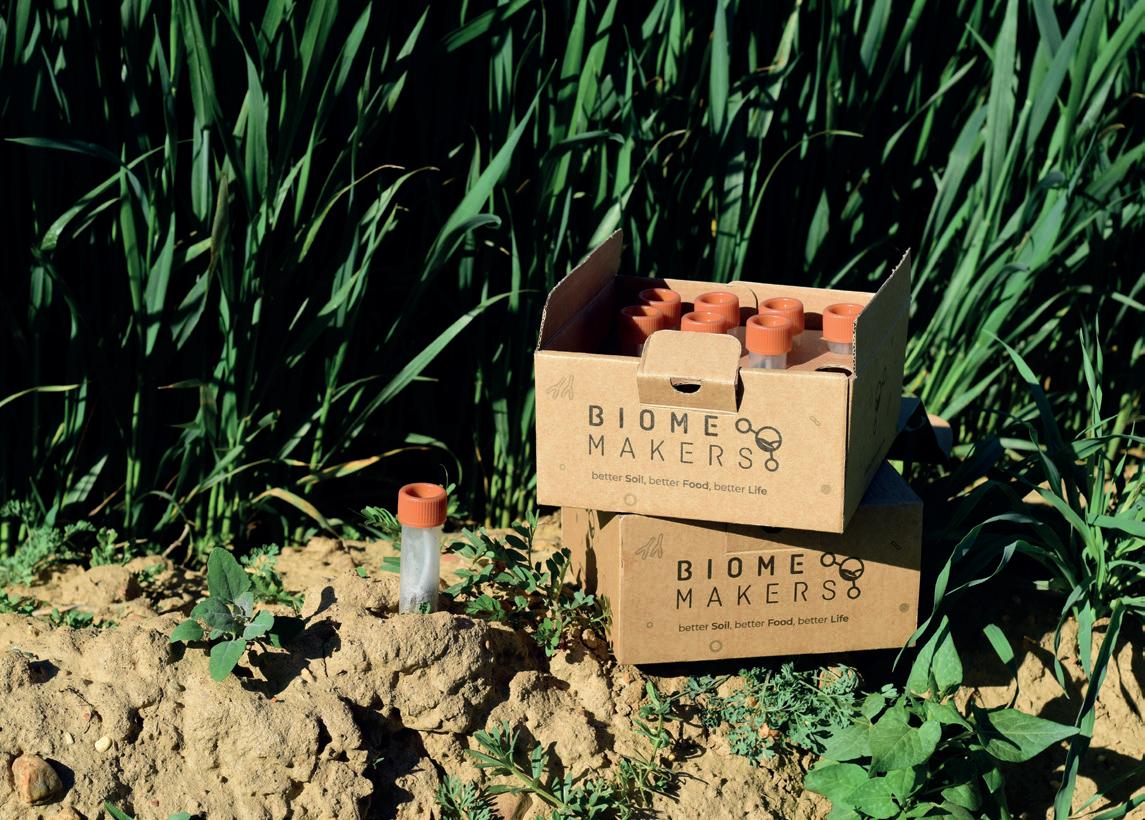
manufacturers who want to understand the impact of inputs or agricultural practices on soil. BeCrop Trials, for example, can monitor the most notable effects, trends, and major changes in the soil microbiome over time through a series of soil tests from multiple time points and locations.
BeCrop Test, meanwhile, offers real-time information about soil conditions, including disease presence, nutritional status, and biodiversity. Lastly, BeCrop Rate, the latest addition to the range, assesses the sustainability of individual plots or groups of plots. “This analysis verifies the positive effects of agricultural practices and enables companies to identify high-performing plots and pinpoint areas for improvement, facilitating broader adoption of the best management practices,” Moreno says.
To date, the company has evaluated over 400 products and management practices spanning 201 different crops
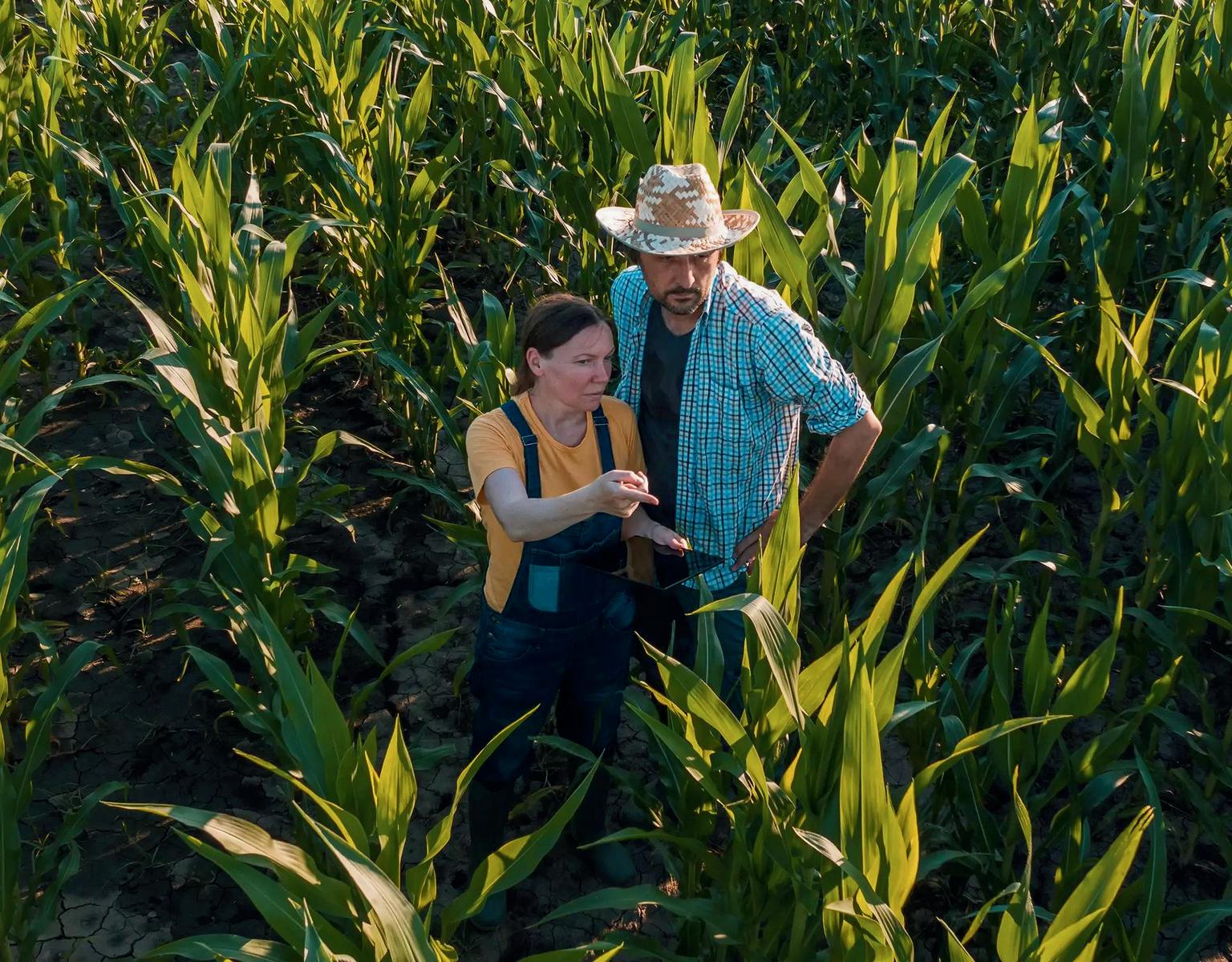


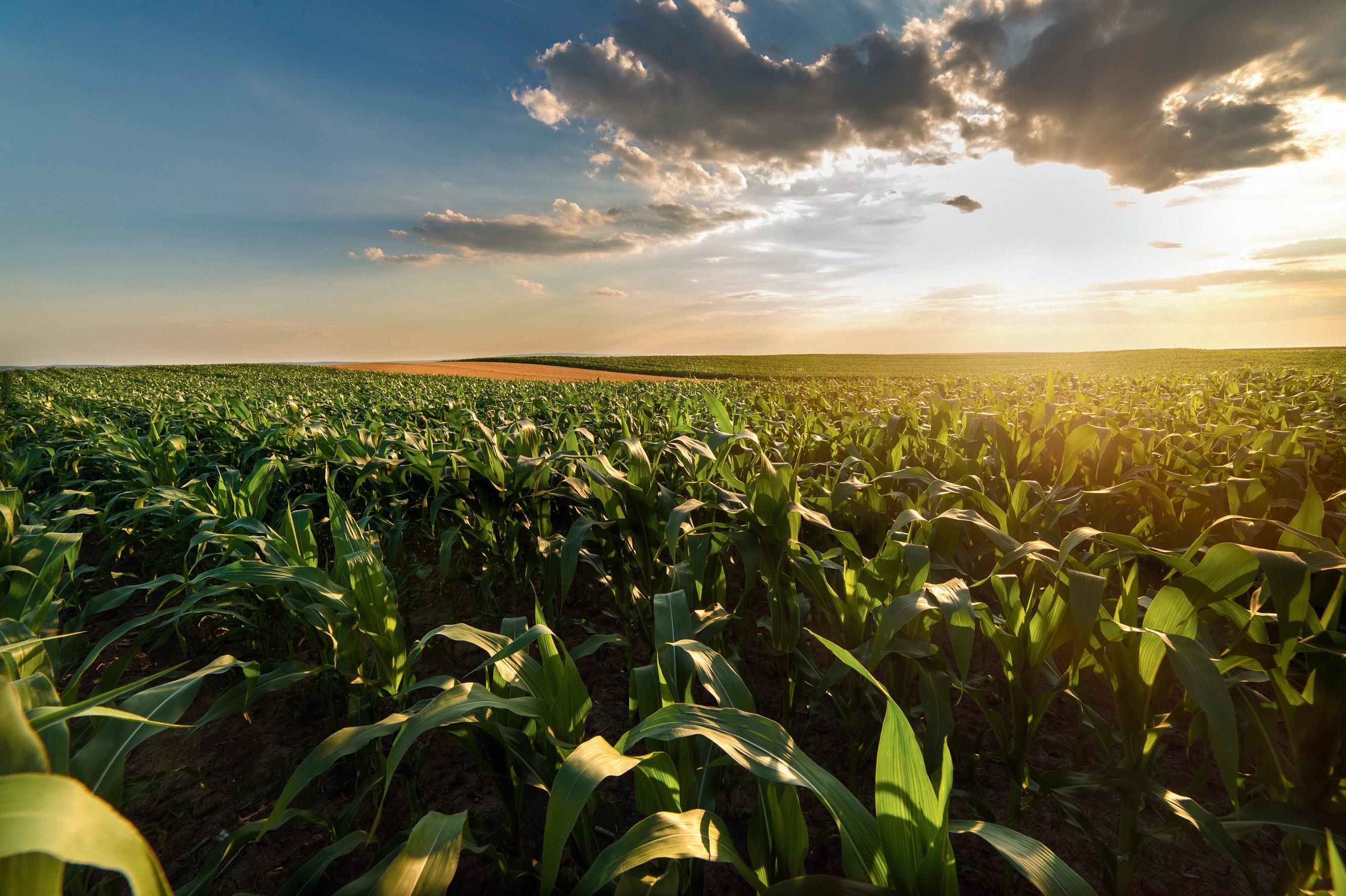

BeCrop® Rate is a soil health metric that validates your land’s sustainability and informs the transition to regenerative agriculture.
Increase profitability, measure, report, and verify regenerative agriculture programs, improve soil health & biodiversity
Communicate sustainability efforts through reliable transparency and traceability data
Enhance your farm sustainability, discover the Power of BeCrop Rate Visit www.biomemakers.com
Accelerate supply chain resilience and product marketability through actionable Scope 3 Reporting

Unless
the supply of bananas into European markets can be managed somehow,
shippers in Latin America, Africa and the Caribbean will always be at the mercy of retailers.
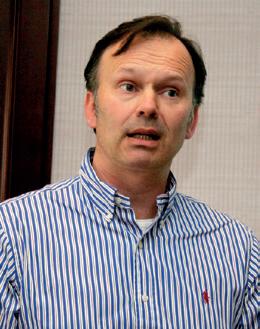 BRICHARD BRIGHT Editor Reefer Trends
BRICHARD BRIGHT Editor Reefer Trends
anana Link’s Alistair Smith says the prices retailers pay suppliers for bananas must go up, and that the era of super-cheap consumer prices must end, because they are nowhere near sustainable.
More controversially, he adds: “The latest message from the World Banana Forum is not an appeal to the good ethics of major buyers but can be taken as a warning that if price increases are not agreed, they will be imposed.”
Smith doesn’t detail who might impose such an increase, but argues climate change will make banana exports unviable in many countries of origin.
There is a significant difference between political intervention and market forces when it comes to retail pricing. If Smith is suggesting the former, it is an empty threat because the EU cannot dictate to the market.
The supply vs demand example is more compelling. If supply shortens, market forces will dictate the price. If production is unsustainable as a result of climate change-related alterations to weather patterns, so prices will indeed rise.
But macro events are just one variable. With bananas, the important relationship is not between producer and consumer, it is between distributor and retailer. It is too simplistic to think the price at the checkout accurately reflects the value received by producers.
If retailers use bananas as a loss leader, why should they be prevented from losing money? And even if they pay more, there is no guarantee this increase won’t be pocketed by the distributor.
There is another important point to make here. Until, or unless, the retailer establishes a direct sourcing relationship with the producer, it is not the retailer’s primary concern to ensure the head of the chain is paid a fair wage.
“With the exception of kiwifruit marketer Zespri, fruit shippers into the EU make it far too easy for retailers and consumers”
They will argue it is good enough for other links in the chain to to be certified. Given that there is no incentive for retailers to integrate backwards along the chain into ripening rooms, terminal handling and shipping, this is unlikely to change.
How then to reverse the chronicle of a banana supply crisis foretold? The salient question is why should the market take responsibility for something it cannot manage or control?
With the exception of kiwifruit marketer Zespri, fruit shippers into the EU make it far too easy for
retailers and consumers because they supply more than the market needs. This is almost guaranteed to generate sub-economic returns for the smallest and least efficient. If producer-exporter delegations in Latin America, Africa and the Caribbean want to restore balance and influence, they need look no further than their own borders. Find a way to manage supply. Instead of repeatedly calling for the retailers to act fairly, they themselves should take responsibility.
BELOW—Retail pricing for bananas remains a highly contentious issue
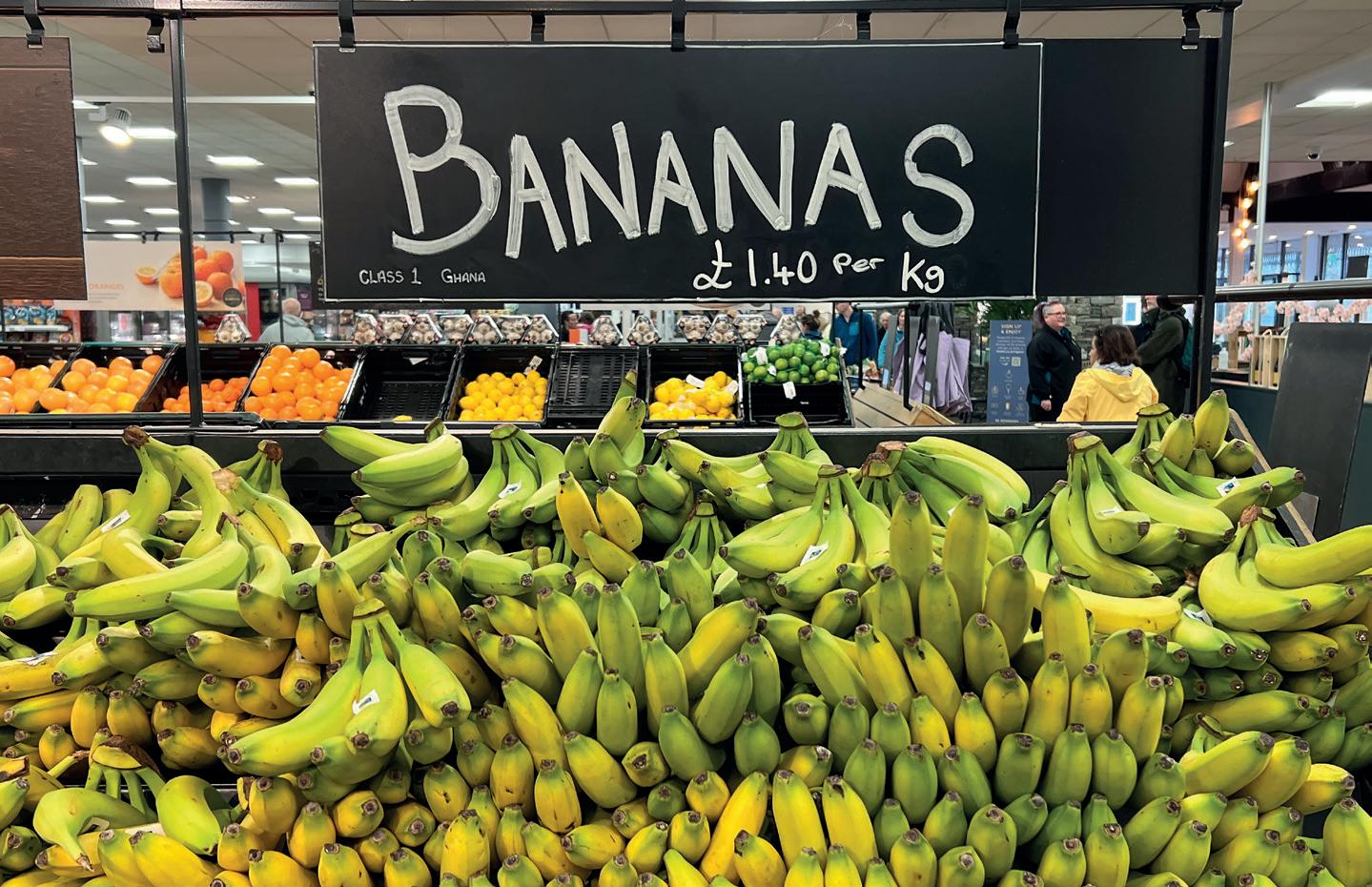
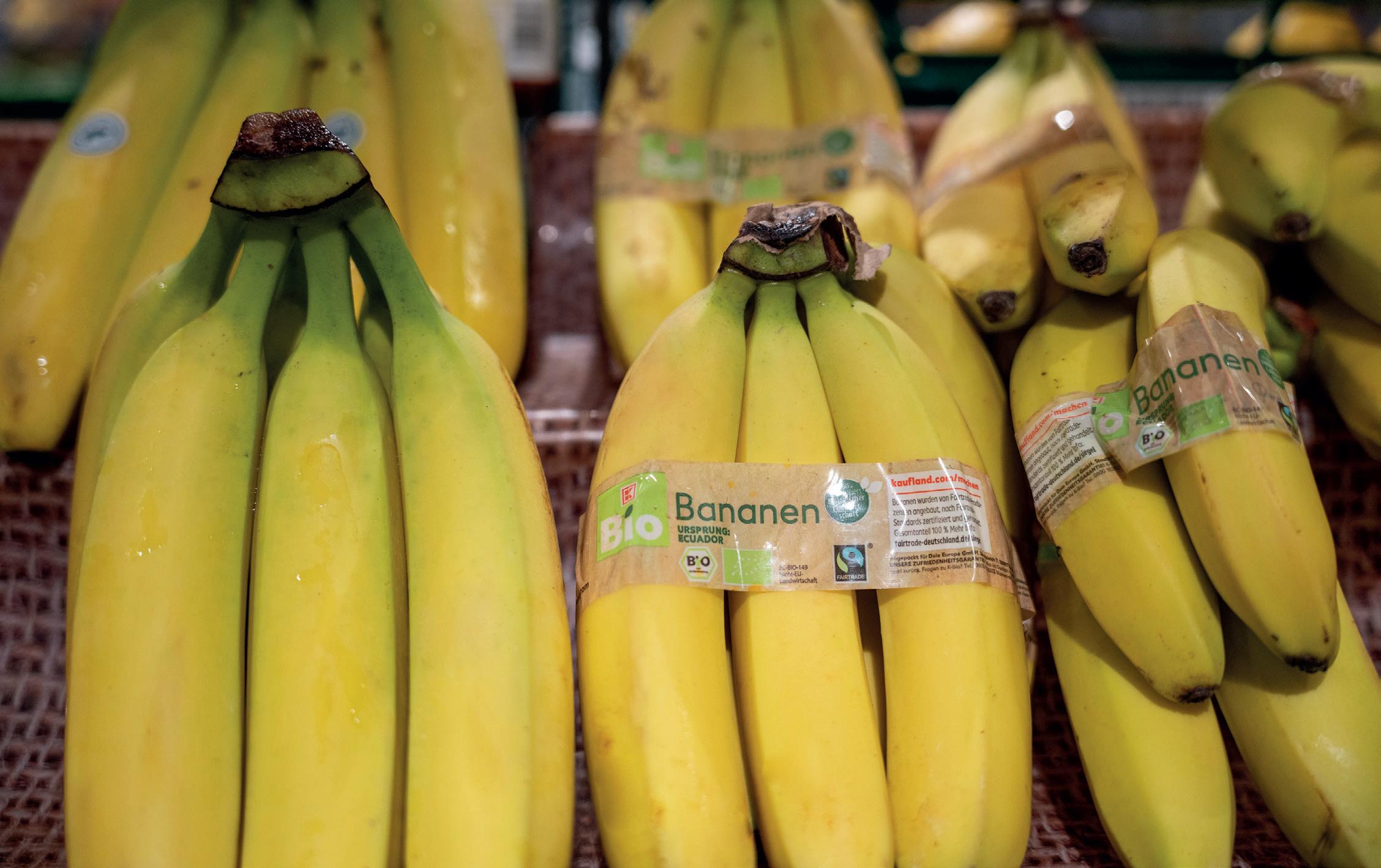
Retailer responds to criticism from Latin American industry groups and argues sales price does not always reflect the amount paid to suppliers.
by Mike KnowlesGerman hypermarket chain
Kaufland has rejected the suggestion made in April by producers and exporters in Latin America that its banana pricing strategy is unfair and exploitative.
“A temporary, low promotional price, such as for bananas, is not automatically indicative of the producer price that producers receive,” a spokesperson told Fruitnet. “When it comes to bananas, we are very sensitive to the fair payment of our suppliers
and the production conditions.”
On 8 April, banana suppliers from Colombia, Costa Rica, Ecuador, Guatemala, Peru and the Dominican Republic accused Kaufland of “predatory pricing practices and failing… to properly inform end-consumers”.
At the time of publication, the Kaufland website showed a kilo of bananas from Ecuador or Colombia on offer for €0.88. The Latin American suppliers argued that such a low price was basically a dereliction of duty on the part of
the retailer towards the countries of origin.
But the retailer insisted it did take responsibility for people, animals, and the environment across its product range. “The formation of the sales price is always subject to several influences,” the spokesperson continued. “Factors include the size of the farms, logistics costs, distribution channels and pricing on the market. In addition, supply and demand regulate the price.
They added: “We attach great importance to paying our suppliers fairly and maintaining fair and trusting relationships.”
Kaufland, which operates more than 1,5000 stores in Germany, Poland, Romania, Czech Republic, Slovakia, Bulgaria, Croatia and Moldova, has stocked Rainforest Alliance and Fairtrade-certified products for several years.
“These stand for better working conditions on plantations, which include not only fair wages but also fixed contracts for the workers,” the spokesperson pointed out.
ABOVE—Kaufland’s banana price in April 2024 was €0.88 per kg
OPPOSITE TOP—The retailer insists it operates a responsible, fair sourcing programme when it comes banana procurement OPPOSITE BOTTOM—Latin American exporters argue that low prices undermine efforts to educate consumers
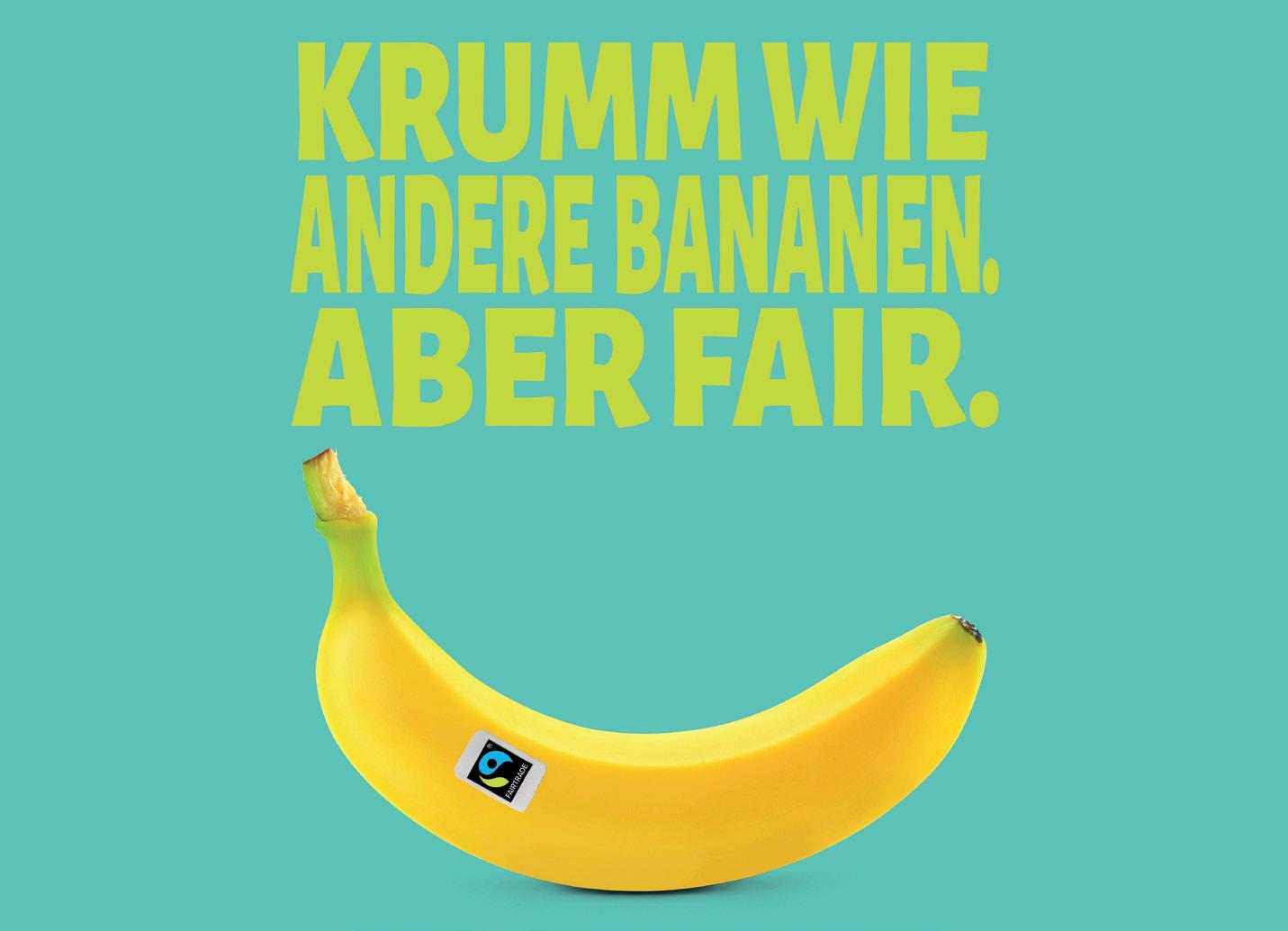
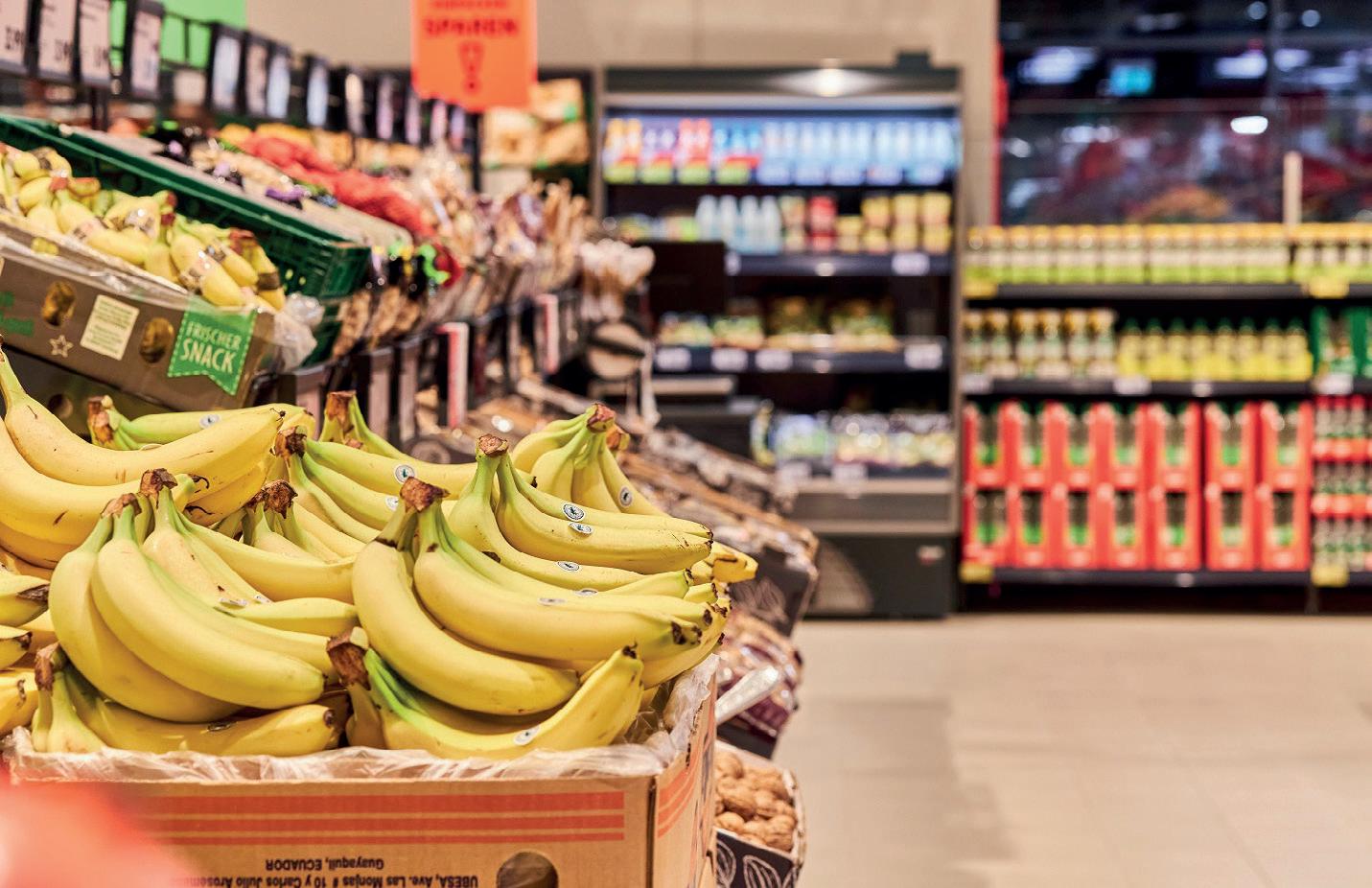
“We are also involved in the German retail trade’s working group on living incomes and wages and are now also a member of the World Banana Forum. There, we also participate in the Living Income Working Group, which campaigns for living wages and incomes in the banana sector.”
Banana suppliers from a total of six Latin American countries had accused Kaufland, one of Germany’s largest retail chains, of failing to meet its commitments on fair pricing. They did so in a joint
“Unfortunately, supermarket programmes divert from the real problem, the lack of shared responsibility”
statement issued by producers and exporters from Colombia, Costa Rica, Ecuador, Guatemala, Peru and the Dominican Republic.
In the statement, the suppliers suggested that the retailer’s low banana price amounted to a dereliction of duty on the part of supermarkets and discount stores.
“Supermarkets and discount stores must contribute to properly inform end-consumers about the efforts that banana producers undertake to bring them a
sustainable fruit that respects the certification standards and strict regulations of the destination market, by advertising bananas at a fair price,” the letter stated.
The group noted that Kaufland is one of several supermarket operators in Germany that are part of GIZ’s sustainable supply chains project, which seeks to promote environmentally friendly and ethical practices in the grocery business.
“However, in this case, Kaufland contradicts these intentions by demonstrating the lack of a real commitment, not considering mechanisms to guarantee the payment of a fair price, promoting predatory pricing practices and failing to contribute to properly inform end-consumers,” the group’s statement continued.
It added: “Within the framework of the Fourth Global Conference of the World Banana Forum, representatives of banana producers and exporters required urgent actions and a concrete commitment from supermarkets to achieve the sustainability of the industry.
“However, unfortunately, we observe once again how a supermarket participates in projects and programmes that divert its objectives from the real problem – the lack of shared responsibility – and in its practices adopts mechanisms that harm the sustainability of Latin American banana production.”
According to the suppliers, other retailers sell Latin American bananas for €1.19 per kilo, a price they say also undermines industry efforts toward sustainability. “The retail price of bananas has remained static for decades, making it the cheapest fruit on supermarket shelves,” they noted. “These retailers aggressively compete on promotions for the cheapest fruit, disregarding sustainable production efforts.”
The German discounter has worked with Ifco and importer Biofrusan to eliminate nonreturnable packaging used to bring fruit in from the Dominican Republic.
by Mike KnowlesGerman discount chain
Penny says it has become the first retailer in the world to eliminate single-use packaging from its organic banana supply chain.
Instead, all of the bananas it sells under the BioHelden brand are shipped in a reusable container called the Banana Lift Lock, developed by returnable plastic crate (RPC) specialist Ifco.
According to the retailer, other banana categories are likely to follow in the future. “Just because something has been done the same way for decades, that doesn’t mean it can’t be improved,” says Nico Wittlich, the chain’s head of ultrafresh category management.
Replacing one-way containers for its organic bananas apparently saves almost 155,00 tonnes of carbon dioxide equivalent emissions.
“This is a win for the environment, our customers and our operations,” says Wittlich. “Switching to reusable packaging will generate significantly less carbon dioxide and radically reduce packaging waste.”
Penny’s organic bananas are sourced by an importer called Biofrusan from Plantaciones del Norte, the largest producer of organically grown bananas in the Dominican Republic. Mariesa Hundt, managing director of Biofrusan, says her company takes
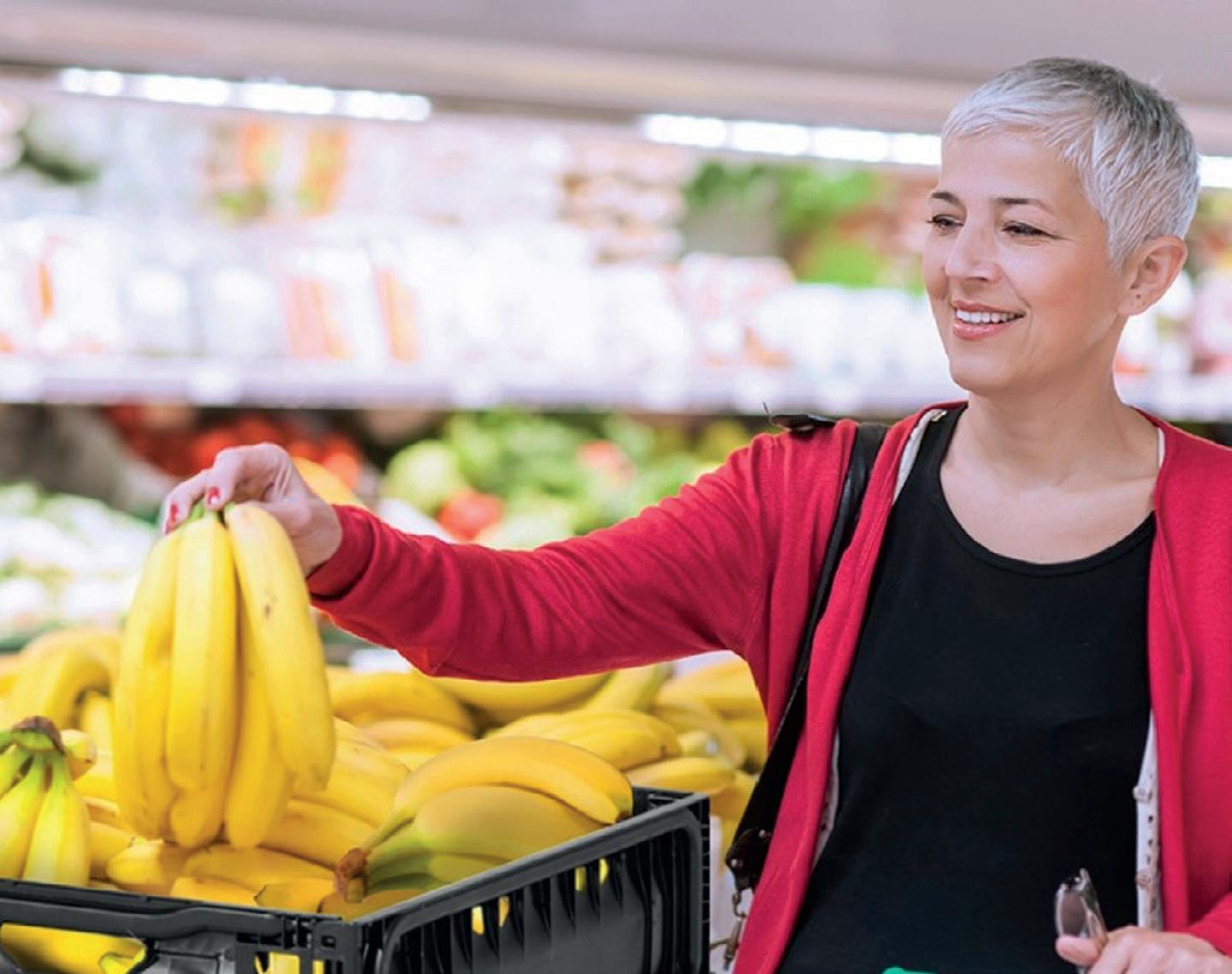
a “planet-friendly” approach to its supply chain operations.
“For me, it’s not only a matter of offering customers a healthier product with our organic range,” she says. “Conventional distributors aspire to do this too. It’s more about keeping the total overall environmental footprint of our company as low as possible. This is the main driver for us.”
The Banana Lift Lock crates are designed to align perfectly when shipped, with up to 55 of them on a pallet. Each of the crates weighs an average of 18.14kg, which apparently means each individual container can carry an extra 363kg of bananas.
Penny says Ifco’s closed-loop RPC system and its circular business model SmartCycle mean less energy and water are used over the crate’s lifespan compared with single-use packaging. The crates are said to last for up to a decade, and completely recycled into new Ifco RPCs when they can no longer be repaired.
“What sounds like a dramatic shift, was in fact simple to implement,” explains a spokesperson for Ifco. “This is because our development team follows a customer-centric and purposeful innovation process. This approach ensured the Banana Lift Lock was designed with the specific challenges of the banana supply chain in mind.”
Bananas are not the only items of fresh produce sold by Penny that are transported in returnable crates. As far back as 2015, it started to use another model called the Black Lift Lock to transport fresh fruit and vegetables from suppliers to stores.

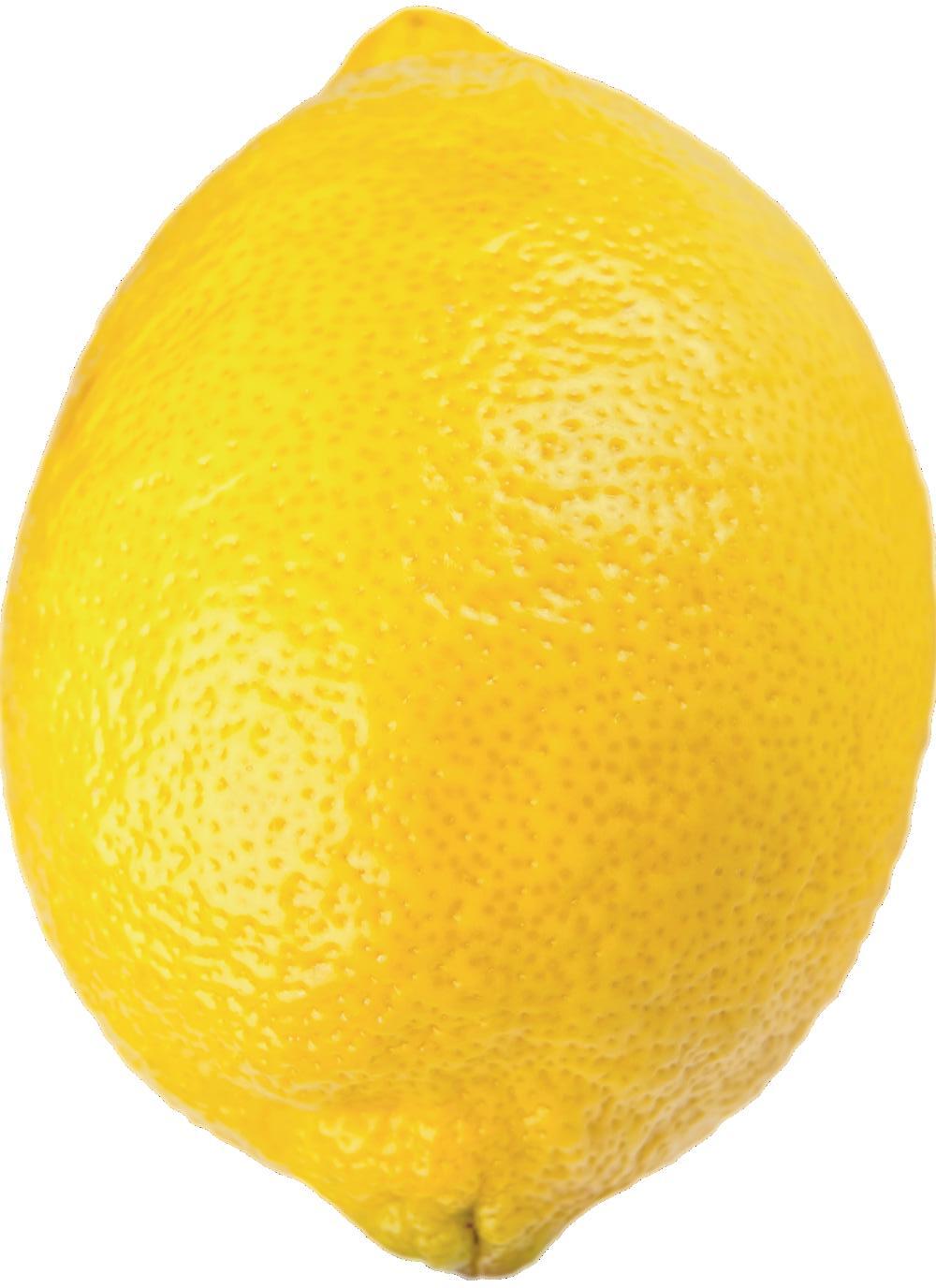


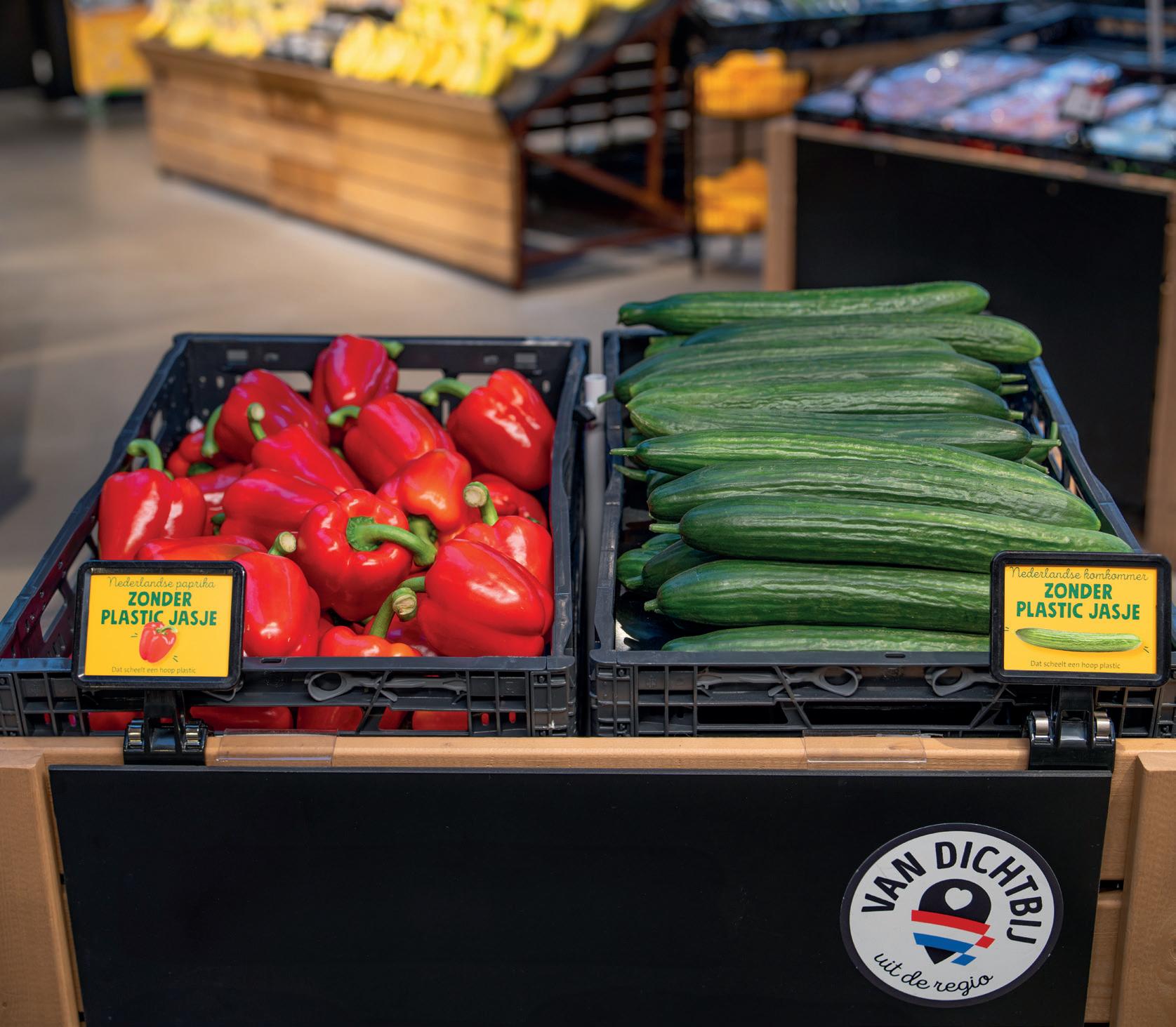
Cucumbers, leeks and peppers sourced from the Netherlands will no longer be sold in plastic packaging, says retailer.
by Mike Knowles & Michael BarkerDutch supermarket chain Jumbo has announced that all of the loose red peppers and cucumbers it sources from within the Netherlands will be sold without plastic packaging from now on.
By the summer of 2024, it also plans to remove all plastic wrapping from its Dutch leeks. The move applies across its more than 700 stores, and also to its online business.
According to the company, the move will remove more than 50 tonnes of plastic per year from its business, and eliminate over 140 tonnes of CO2e emissions.
This follows an earlier decision by the retailer to stop using airfreight to procure all of its fresh produce. The group aims to use 20 per cent less packaging in 2025 compared with 2020. It says it plans to achieve this by using more reusable, recyclable and recycled materials.
It says its decision to replace plastic disposable bags for fruit and vegetables with reusable ones has already saved 35m plastic bags per year.
In early 2024, UK supermarket chain Sainsbury’s announced it was switching its own-brand mushroom punnets from plastic to cardboard.
The retailer said the move, which represented Sainsbury’s biggest-ever single plastics removal, would save over 775 tonnes, or over 52m pieces, of plastic a year.
The change was applied to all 13 own-brand lines, including top sellers such as whole baby button, closed cup, organic and chestnut mushrooms from February onwards.
Sainsbury’s claims to be the first UK retailer to roll out cardboard punnets for all mushrooms across all stores, a move it says helps customers to recycle the packaging more easily at home.
Claire Hughes, director of product and innovation, said: “As part of our Plan for Better commitments, we are trying to reduce plastic packaging across our own-brand ranges. We are delighted to introduce cardboard punnets for our own-brand mushrooms.
“Making a collective effort with suppliers to increase recycled content and recyclability for all customers has helped achieve our biggest-ever plastics removal so far. The initiative reflects our commitment towards a healthier and more sustainable future as we continue to look at ways to innovate our packaging and reduce and replace plastic where possible.”
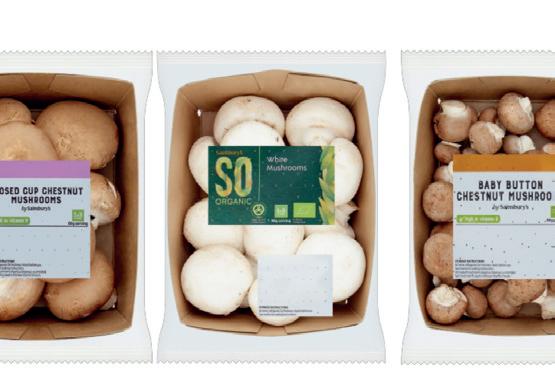
Jumbo has removed plastic from red peppers and cucumbers

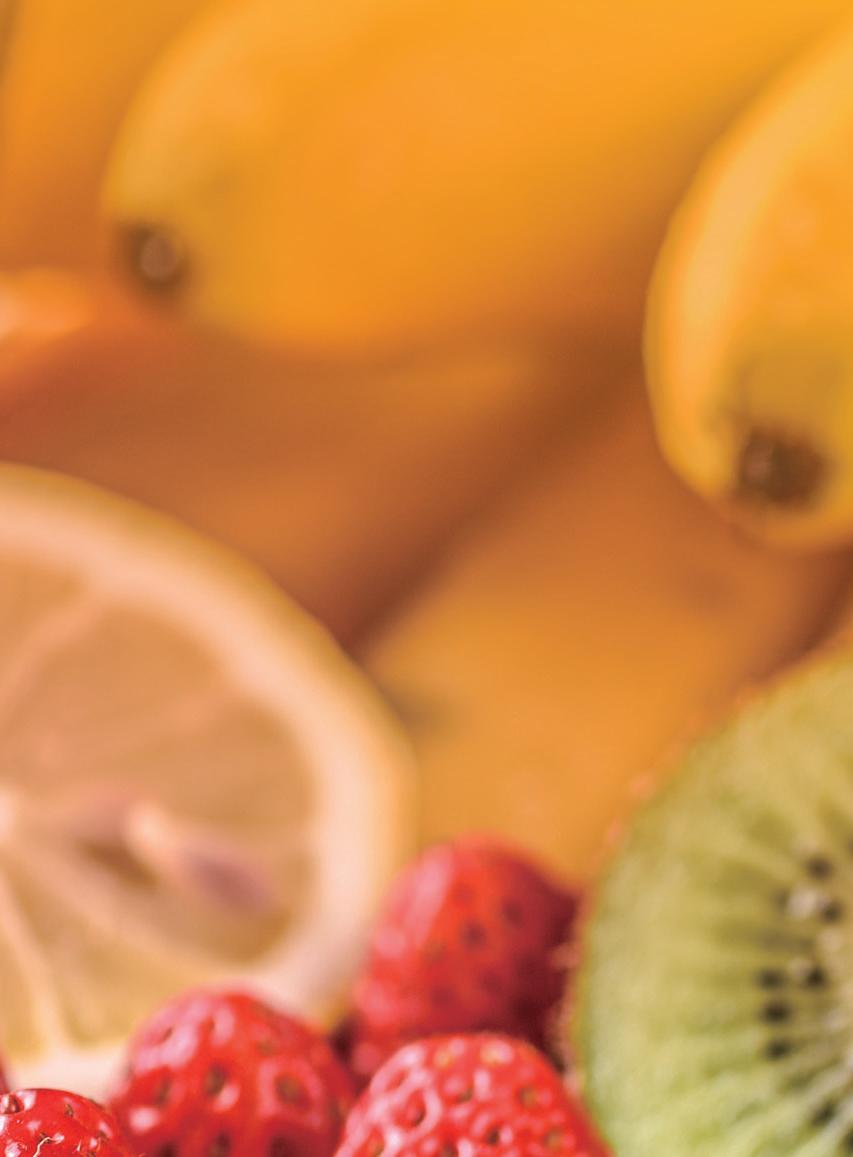





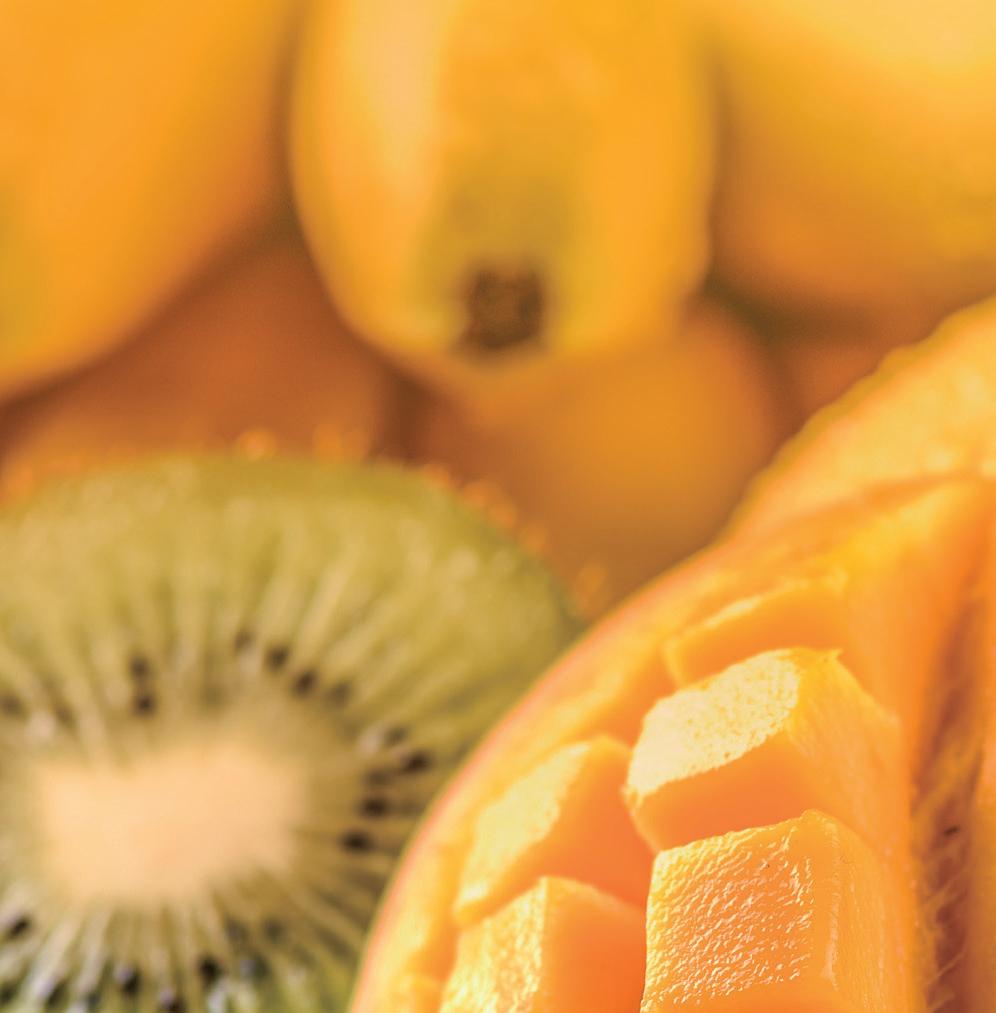



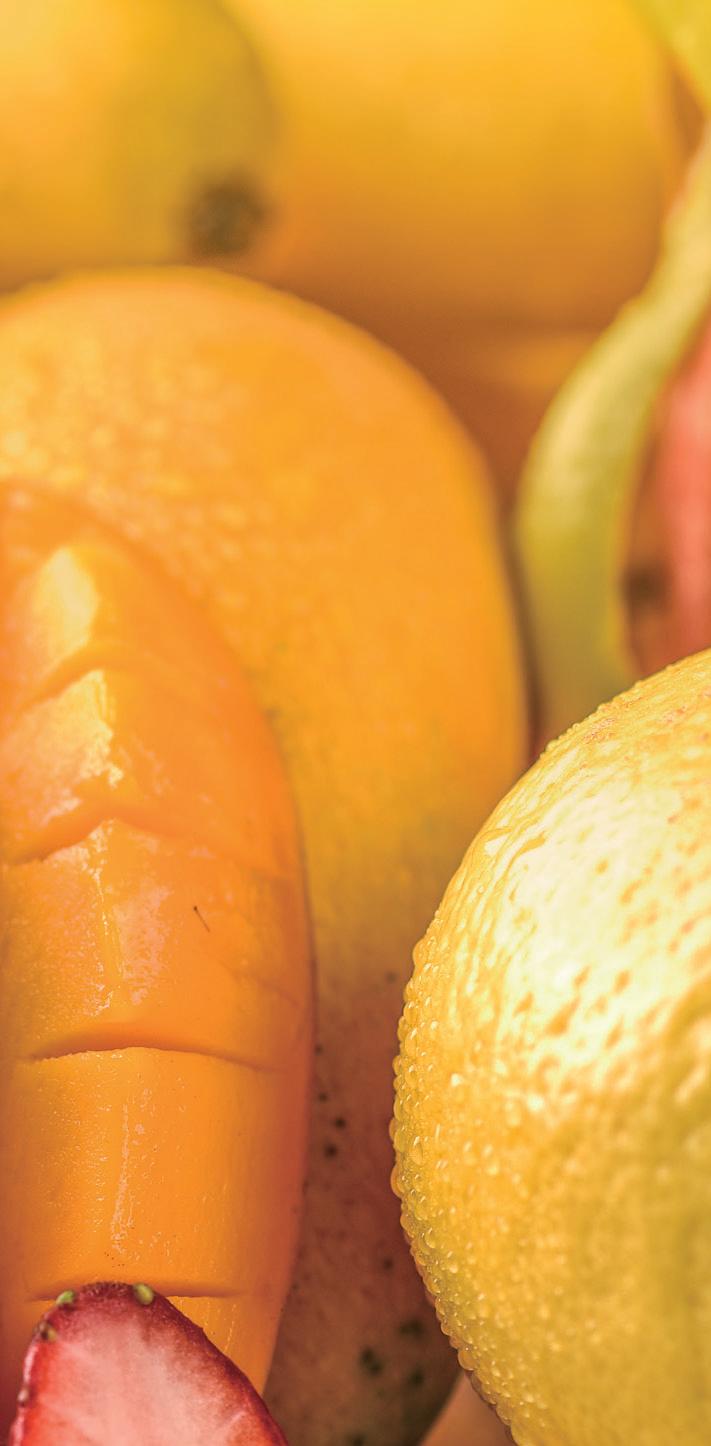
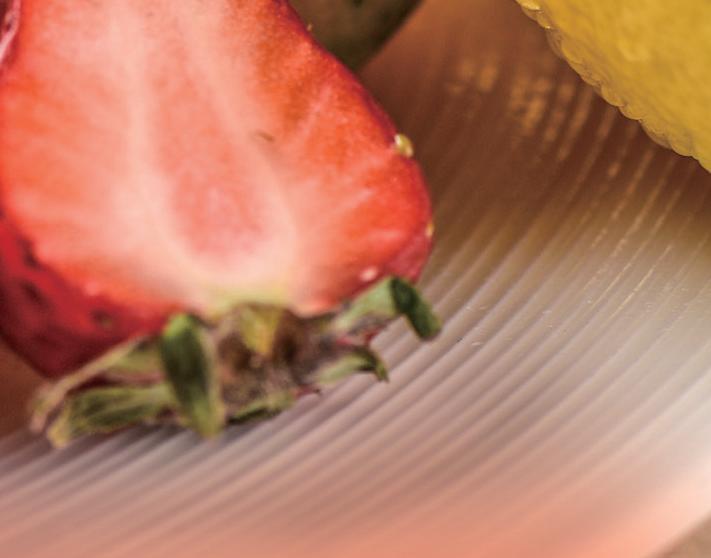


Italy’s leading organic apple marketer says it has seen strong demand for its fruit in recent months across Europe.
by Mike KnowlesItalian marketing consortium Vip has continued to roll out a new 100 per cent paper pack for its organic apples in recent months, as it enjoys what it describes as a “very strong” commercial campaign.
The packs, which were originally launched in the spring of 2023 and have been distributed again from the beginning of March, feature a special net window made from linen that ensures the product itself remains visible to shoppers.
Vip promoted the new packaging for its Bio Val Venosta range at the organic trade event BioFach in Nuremberg, where it underlined its commitment to the business as a leading supplier of organic apples in terms of fruit quality, volume and market coverage.
The company currently enjoys a strong position in the market. In the autumn, its crop was up 20 per cent compared with 2022, whereas its major competitors
LEFT—The Vip team pictured earlier this year at BioFach in Germany
BELOW—Vip’s BioGraphy packs feature a product window made from a paper net
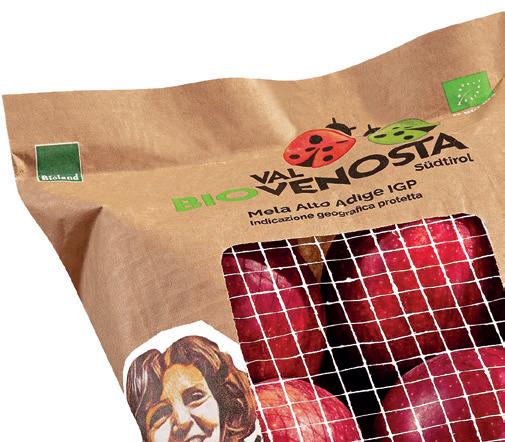



in Italy and elsewhere in Europe saw their harvests contract. “This creates very favourable conditions for us,” explained Gerhard Eberhöfer, Vip’s organic product manager, who suggested sales were going very well too. Five months into its latest campaign, at the end of January, its sales were reportedly 25 per cent up on the previous season.







“We got off to a very good start in November,” he continued. “After a slight decline in December, sales picked up again from the third week of January 2024, as the consumption of organic fruit has picked up again.”
A wide range of varieties and brands to boost consumption in the organic segment.
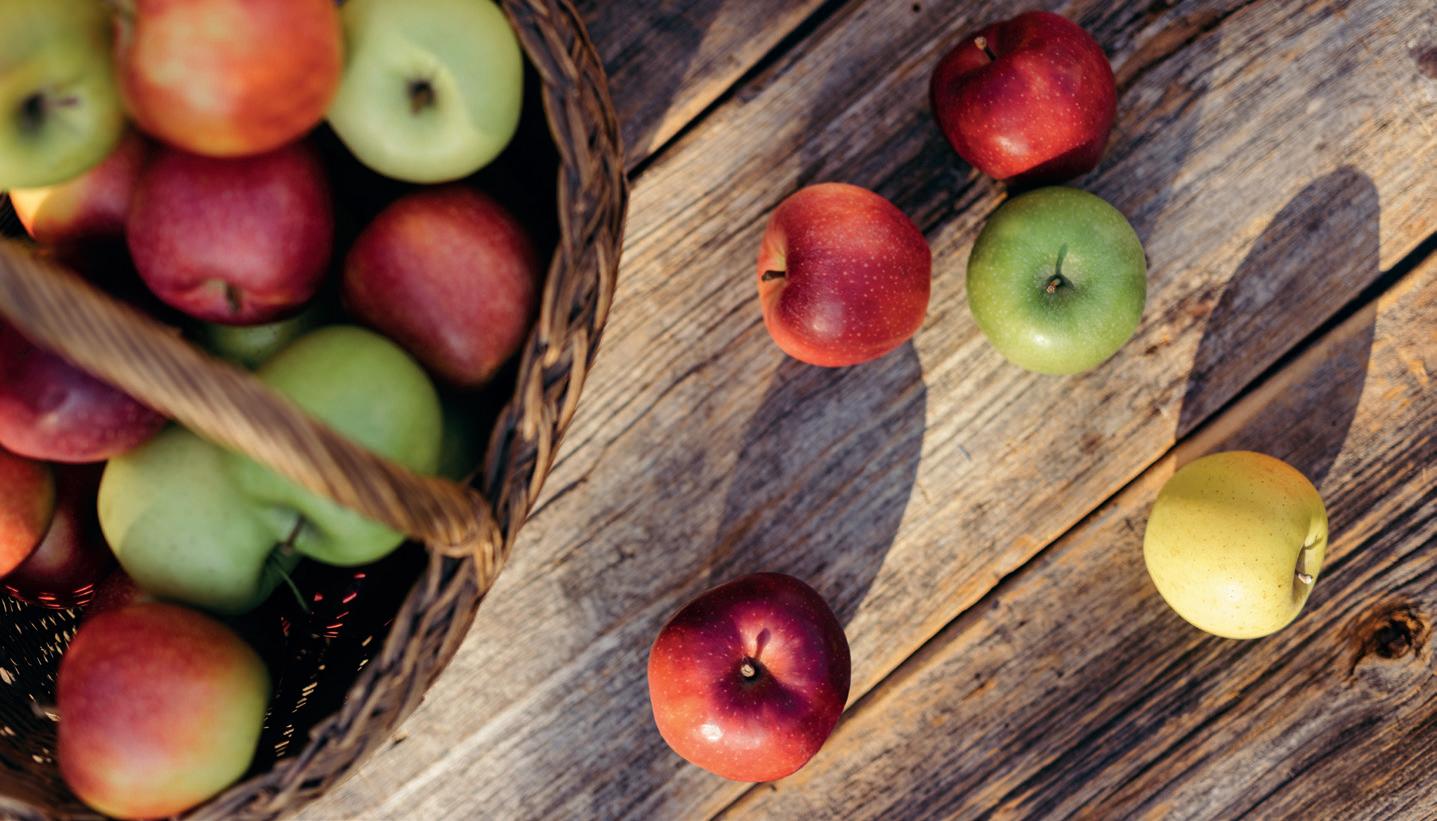
With the right apple for every need all year round, including organic, VOG – Home of Apples is an international benchmark for the apple category. At VOG, origin, expertise and sustainability result in a broad and innovative assortment of varieties and brands in which each consumer can find the right apple for every need.
This also applies to the organic segment, which has annual production of 30,000 tonnes of apples, tended by the expert hands of 350 apple farmers. Apple cultivation takes place in dedicated areas of South Tyrol – Südtirol, in the Italian Alps where the Alpine and Mediterranean climates intersect. The result is 300 days of sunshine a year, warm days and cool nights: ideal conditions for growing juicy, crisp apples of the highest quality. Altitudes from 200 to 1,000 metres, with their rich soils and microclimates, also ensure that each variety has the ideal soil for excellent growth.
As with its assortment from integrated production, VOG – Home of Apples brings to the markets a diverse and comprehensive range also for the organic sector, available all year round. The brands dedicated to the traditional varieties are Biosüdtirol and Marlene Bio - daughter of the Alps, a brand appreciated by many consumers around the world.
The range also includes successful brands such as Pink Lady Bio, Kanzi Bio, Evelina Bio and Envy Bio, and the more recent Giga Bio, RedPop Bio and Cosmic Crisp Bio, three next-generation apples suitable for organic cultivation and ideal for the second half of the season. The Consortium’s range includes well-known brands and exclusively organic varieties such as Natyra, Topaz, Pilot, GoldRush and Bonita.
The organic apples of VOG –Home of Apples are distributed
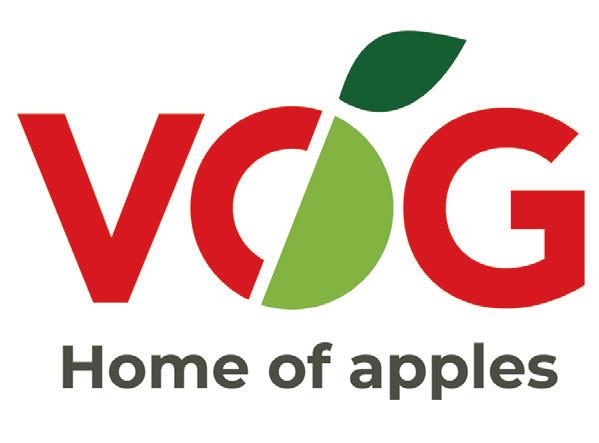
in more than 40 countries thanks to an efficient and competent organisational structure and the ability to respond to the specific needs of the most diverse markets.
One example of the innovative spirit of VOG – Home of Apples is the Marlene, Daughter of the Alps, brand. The brand’s organic variant, Marlene Bio, has recently undergone a restyling in which the brand has become a distinctive and driving element at the point of sale.
On the visuals and packaging, alongside the mountain – the father of Marlene – and the Mediterranean sun –her mother – there are lots of useful insects: the friends of the apple that make this kind of agriculture possible. Bees, dragonflies and butterflies occupy the foreground of the visuals to underline their role as pollinators and protectors of the orchards.
The brand’s specific characteristics are therefore combined with organic consumers’ most sought-after and appreciated values, fully enhancing the products and the purchasing and consumption experience.
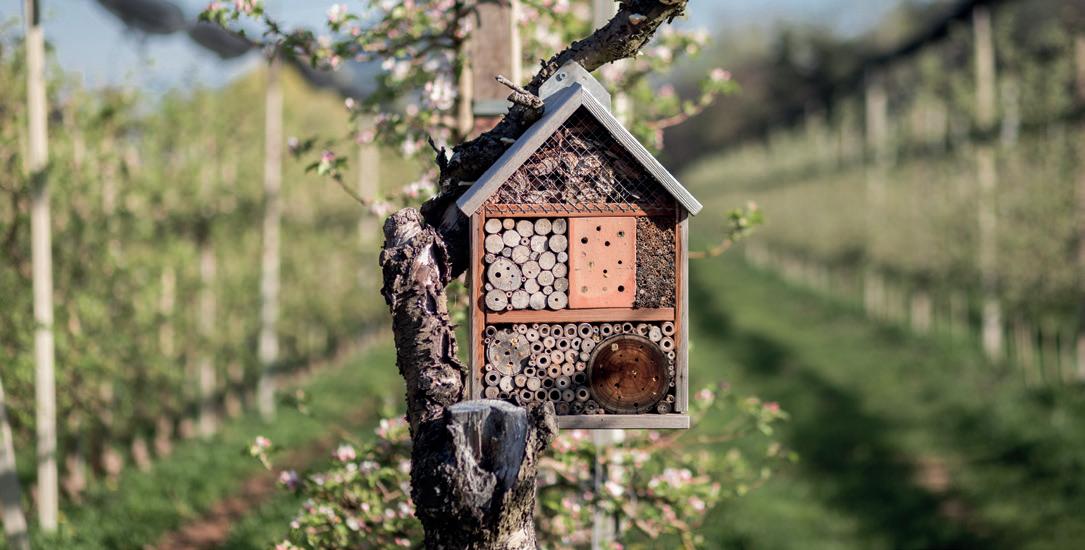
ABOVE—VOG –Home of Apples offers a wide range of organic varieties
ABOVE—Insects protect the orchards
RIGHT—VOG’s organic apples are sold in over 40 countries

With the EU’s Corporate Social Responsibility Directive, considering your business’s environmental and social impact is becoming legislation, and it will be in companies’ financial and strategic interest to come together and embrace the change.
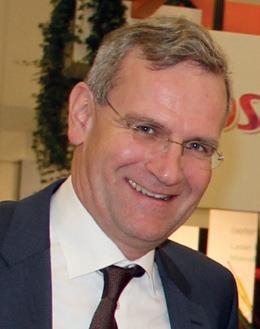 CVOLKERT ENGELSMAN Robin Food Coalition Co-founder
CVOLKERT ENGELSMAN Robin Food Coalition Co-founder
ast your mind back just three years, and you can only conclude that the level of uncertainty in the world is increasing. It’s war-related. It’s climate-related. It’s waterrelated. It’s health-related. Politically, we appear to be shifting further and further toward the right, not just in the US, but all over Europe too.
So the key question regarding sustainability is, what is within my circle of influence as a company and as a sector?
In the past, sustainability, whether concerning the environmental or social impact, was something for the idealists and frontrunners. That’s no longer the case. Now, with the CSRD, it’s becoming legislation.
The Corporate Social Responsibility Directive is effectively a Trojan horse. When you open it up, you find all the elements of the new economy, as we shift from a short-term profit, shareholder-first, neoliberal approach to a stakeholder-driven economy.
Through a materiality analysis, your company will have to define what the impact of its economic activities is, not just for shareholders, but also for people and planet. Then you have to start measuring and collecting data to find the gap between where you are and where you need to be.
In the future, if you don’t have a good plan, and if you’re not transparent about your impact, then you won’t get assurance from your financial auditor and hence risk bankability. That includes a management plan on what you’re going to do about this gap and how you are going to reduce your impact, how you are going to future-proof your supply chains, so they become less vulnerable to climate-related disruptions and water stress.
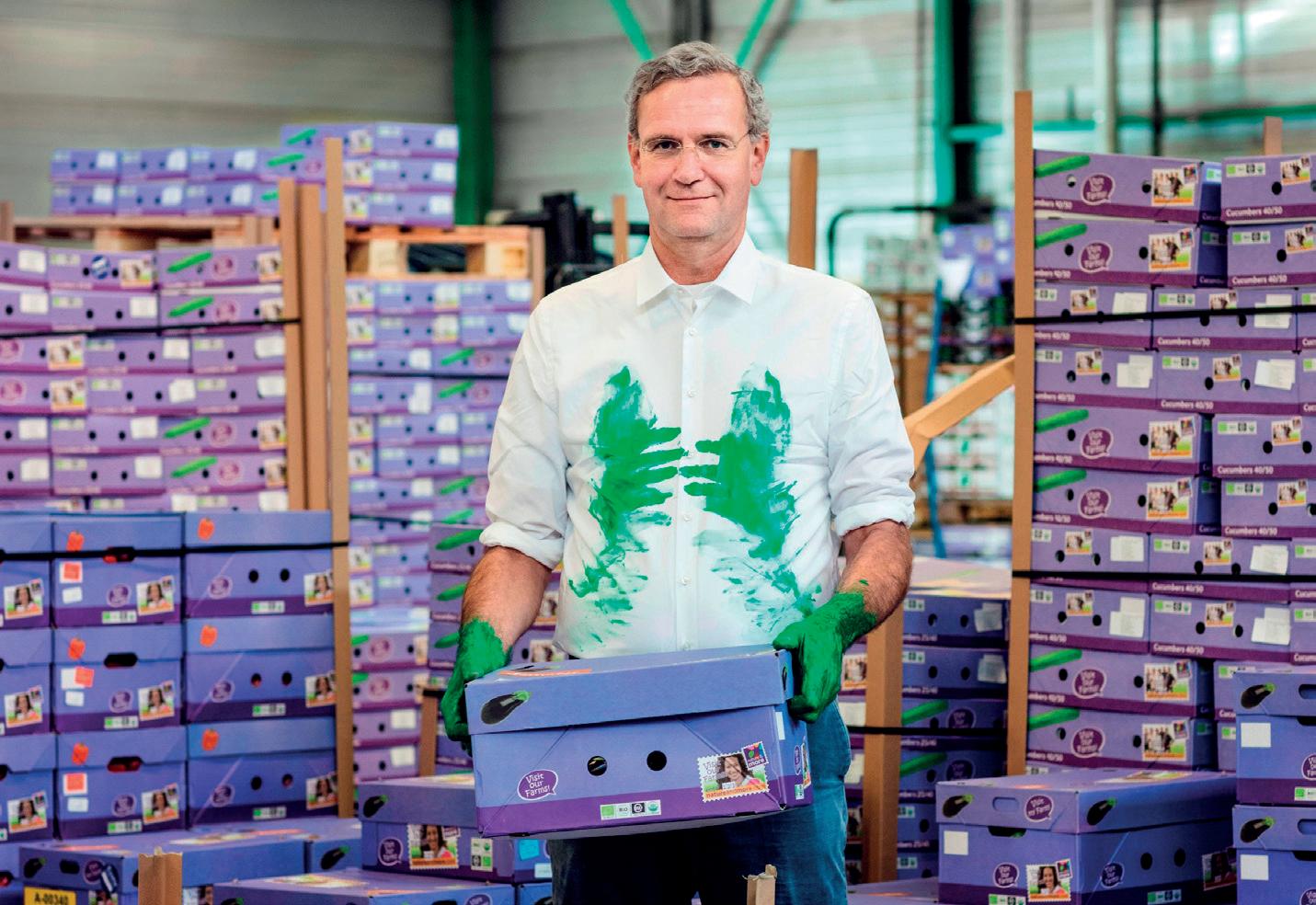
And that’s not all. What are you going to do to make sure that there is a fair distribution of wealth throughout the supply chain? What are you going to do about child labour? What about living wages? Since you can’t achieve all this overnight, you will have to implement some sort of plan.
Of course, there are other risks if you don’t address these issues. Your customers and environmental groups will increasingly ask questions. Your supply chains will become more and more vulnerable. If you don’t invest in soil fertility and the water-holding capacity of your soils, you risk flooding and drought, which will affect your profit and loss. So by investing in sustainability, you’re not only de-risking, you’re future-proofing your business at the same time.
The whole idea behind our Robin Food Coalition is to encourage small and medium-size companies to unite for impact. By collectively employing the services of an accounting firm, for example, companies can get a huge discount, and all of a sudden the process can become very affordable.
In addition to the financial advantage of uniting for impact, you also unlock the collective intelligence of all these companies. There are quite a few data collection aspects that not only apply to individual companies but to the entire sector. So it’s time for sector initiatives that unite powers, not just to become compliant and to de-risk and future-proof businesses, but also to storm ahead and use this new impact transparency as a unique selling point.


